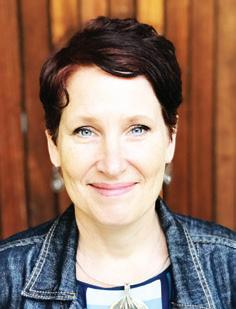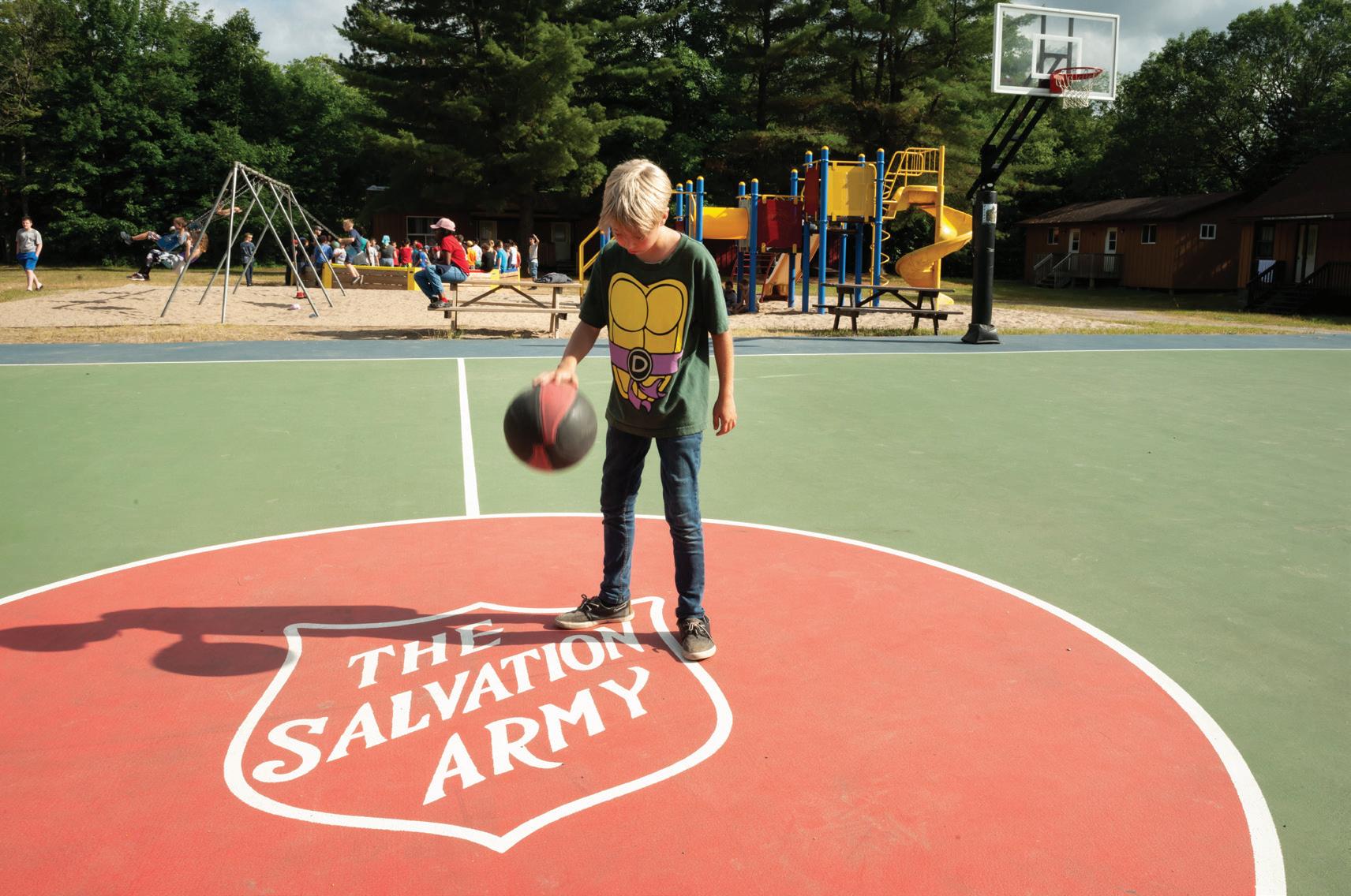Tech Talk: Practical Tips for Better Worship Services
Yorkwoods Sports Program Connects With At-Risk Youth
Mental Illness and MAiD: What Is a “Good Death”?
THE VOICE OF THE ARMY
The Next
General
elected 22nd leader of The Salvation Army


Tech Talk: Practical Tips for Better Worship Services
Yorkwoods Sports Program Connects With At-Risk Youth
Mental Illness and MAiD: What Is a “Good Death”?
THE VOICE OF THE ARMY
General
elected 22nd leader of The Salvation Army

H o n o u r i n g t h e S a c r e d

S E P T E M B E R 1 - 3 , 2 0 2 3
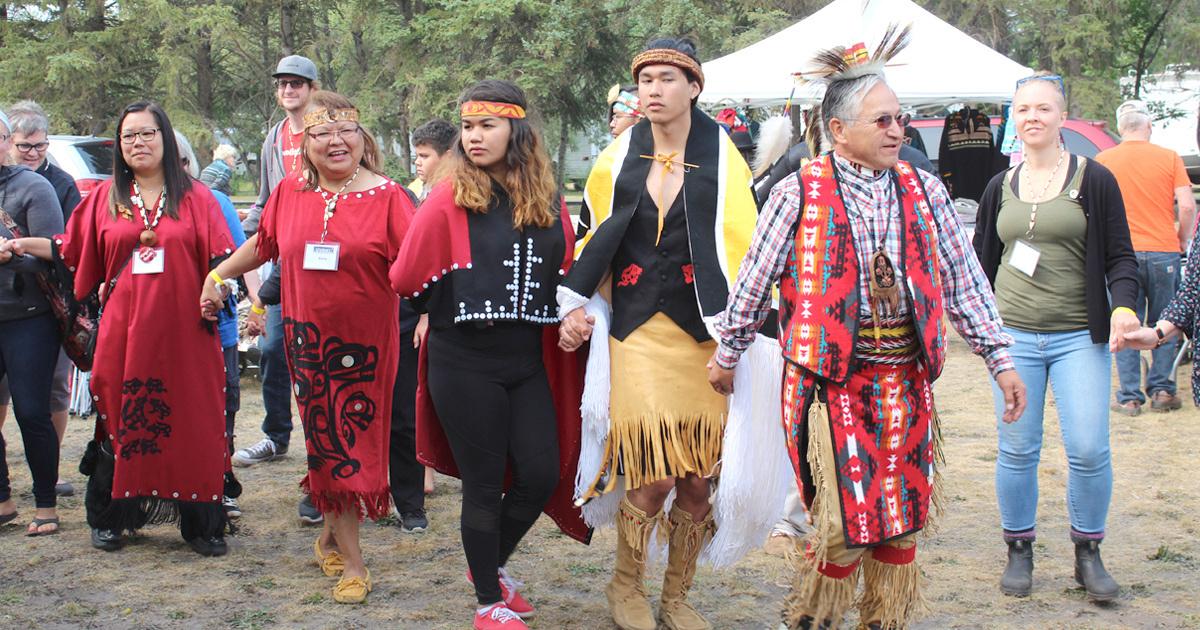
R E G I S T R A T I O N $ 2 0 0


R E G I S T E R : W W W . S A L V A T I O N I S T . C A / C O C 2 3
J o i n u s i n c r e a t i n g s a c r e d s p a c e s t o l e a r n a n d l i s t e n f r o m e a c h o t h e r o n t h i s j o u r n e y t o r e c o n c i l i a t i o n .

S U P P O R T E D B Y :
P i n e L a k e C a m p , R e d D e e r , A l b e r t a
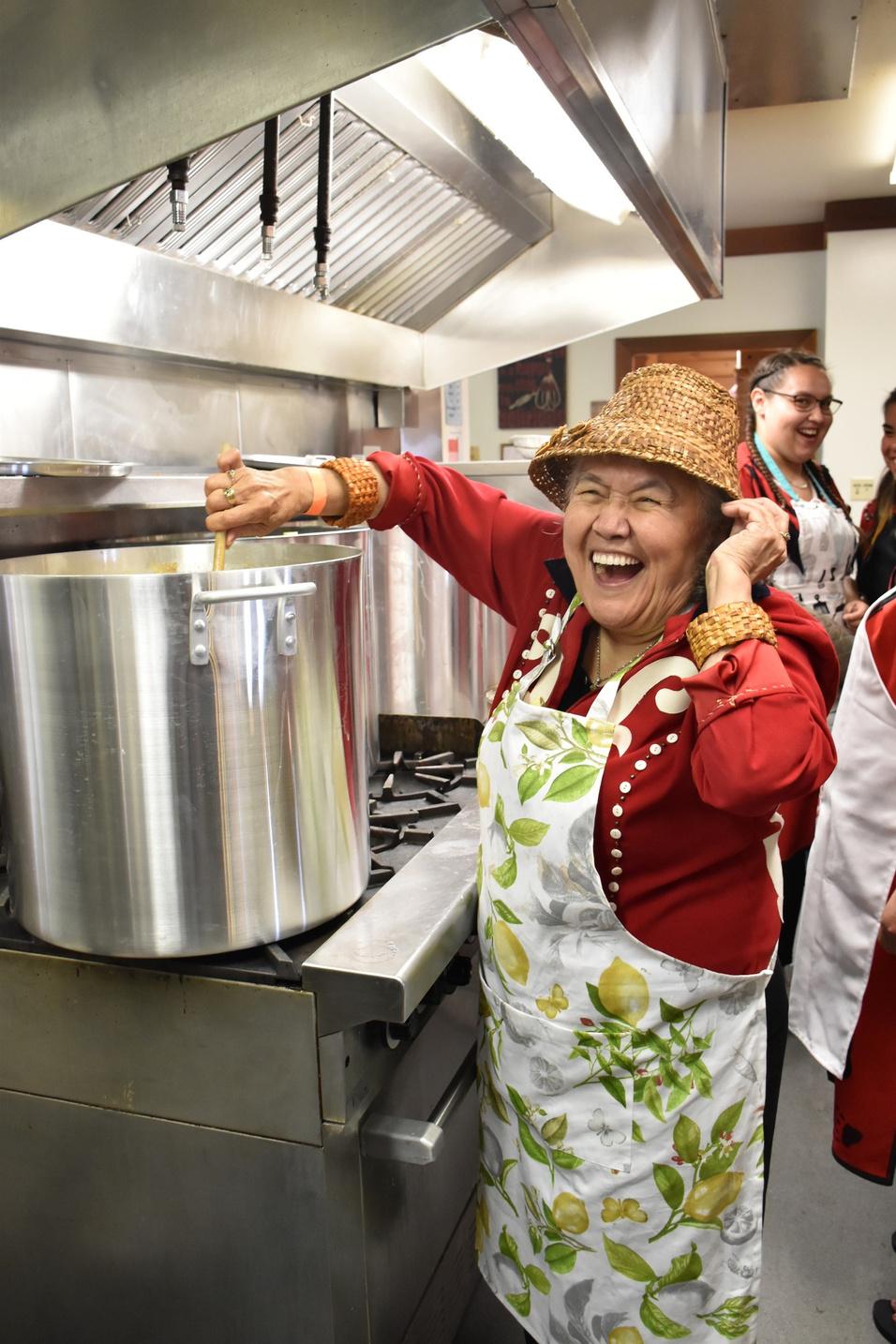
5 Frontlines
22 Talking It Over On Pain of Death by James Read and Roland Stettler

8 To Serve and Save Souls
27 Cross Culture 28 People & Places
Lt-Colonels John and Lani Chamness take up appointments as chief secretary and territorial secretary for women’s ministries. Interview by Abbigail Oliver


10 Commissioner Lyndon Buckingham
Elected 22nd General
Chief of the Staff and Commissioner Bronwyn Buckingham to lead The Salvation Army. by Lt-Colonel Jennifer Groves and Pamela Richardson
12 A Lifetime of Service
From Newfoundland and Labrador to the world, General Brian Peddle and Commissioner Rosalie Peddle leave a legacy of mission-minded ministry.
14 A Wholehearted Commitment
What I learned as I cared for my parents at the end of their lives.
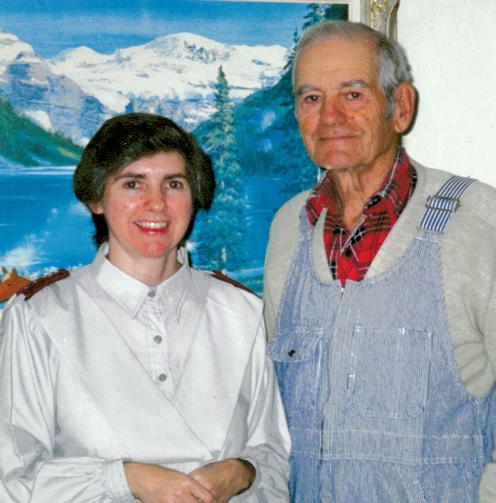
by Major Gloria Hammond
16 More Than a Team
A sports program at Toronto’s Yorkwoods Community Church provides hope and connection for youth. by Abbigail Oliver
18 Tech Talk
William Chinnery, multimedia specialist for the Canadian Staff Band, offers tips to improve the audio/visual production at your corps. Interview by Sean Van Gulik
20 A Theology of Welcome
St. John’s Citadel, N.L., reaches out to the community with accessible programming. by Abbigail Oliver
We’ve refreshed our website to better serve Salvationists in Canada and Bermuda:
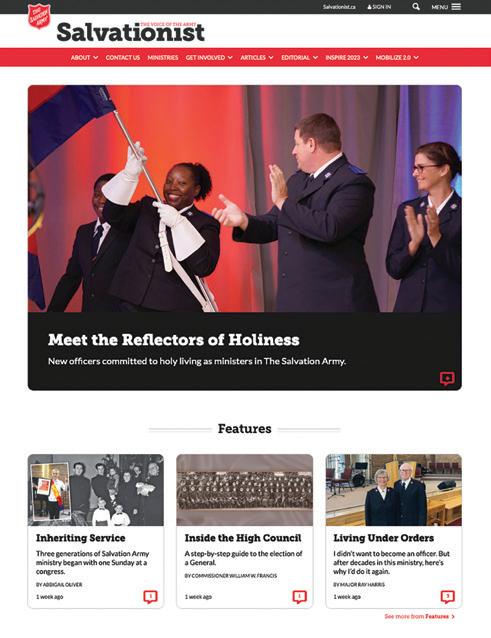
• Bright, modern design
• Easier to navigate and find what you’re looking for
• Improved mobile experience
Visit the new site today.
Cover photo: IHQ Communications
Congratulations to Commissioner Lyndon Buckingham, who on May 27 was voted the 22nd General of The Salvation Army. The commissioner will assume his duties as General as of midnight August 2, together with his wife, Commissioner Bronwyn Buckingham, who will be World President of Women’s Ministries.
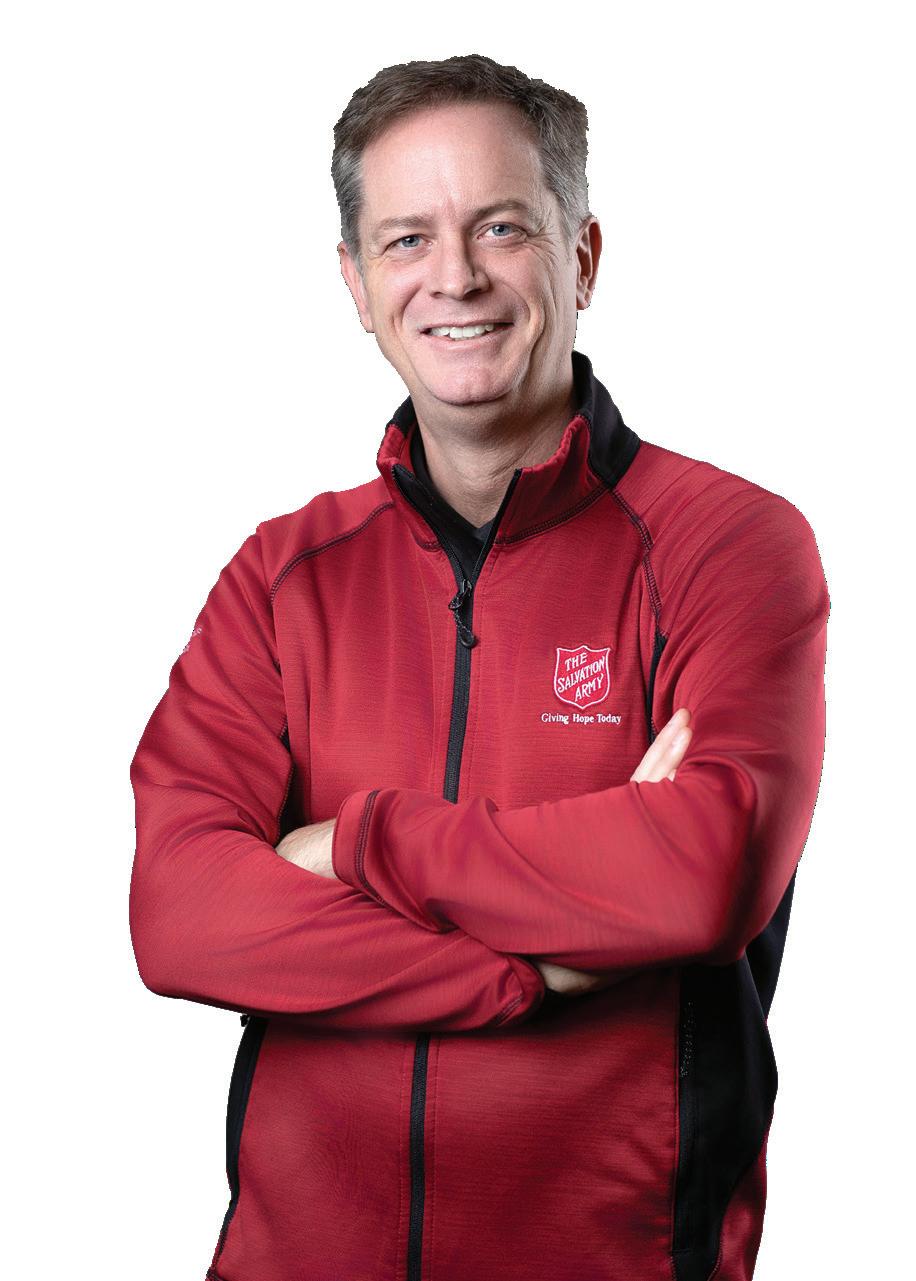
Commissioners Floyd and Tracey Tidd, territorial leaders, note, “We affirm the High Council’s selection and the strength of spiritual leadership that General-Elect, Commissioner Lyndon Buckingham, and Commissioner Bronwyn Buckingham will bring to The Salvation Army for this next and significant chapter in the life of our movement.” Read the High Council report on page 10.
Elsewhere in the issue, we say a huge thank you to General Brian Peddle and Commissioner Rosalie Peddle as they prepare for retirement. They have been with us at INSPIRE, which is an amazing way to finish their tenure as international leaders and proud Canadians. A photo essay looking back on their ministry can be found on page 12.
Even as we celebrated this transition, we received the news of retired General Shaw Clifton’s promotion to glory. Our hearts remain with Commissioner Birgitte Brekke-Clifton and the Clifton family, as we remember General Clifton’s legacy. Visit Salvationist.ca for a tribute to his life and ministry.
Salvationist is a bimonthly publication of The Salvation Army Canada and Bermuda Territory
Brian Peddle
General
Commissioner Floyd Tidd
Territorial Commander
Lt-Colonel John P. Murray
Secretary for Communications
Geoff Moulton
Director of Internal Communications, Editor-in-Chief and Literary Secretary
Pamela Richardson
Assistant Editor-in-Chief
Kristin Ostensen
Managing Editor of Salvationist and Salvationist.ca
Giselle Randall
Features Editor
Abbigail Oliver Staff Writer
When queried in an interview with Captain Jo Moir, territorial communications officer, United Kingdom and Ireland Territory, about what he shared with the High Council, Commissioner Buckingham expressed his love for “what I call the three big ideas of the movement.” In his own words, here they are:
1. We are a people who love to talk about Jesus. We want people to know that God loves them, and that Jesus is the ultimate proof of that love. The Salvation Army has always been about recognizing our responsibility to share the good news of the gospel. We want people to know that there is life, purpose, hope and eternity through faith in Jesus Christ.
2. We think that practical demonstrations of the values of the kingdom of God are as impactful as talking about them. The “sleeves rolled up,” the caring for the needy, the helping the vulnerable, the being the voice for the voiceless, the advocating for justice … we don’t just want
Lisa Suroso Graphic Design Specialist
Rivonny Luchas Digital Media Specialist
Emily Pedlar Junior Graphic Designer
Ada Leung
Circulation Co-ordinator
Ken Ramstead Contributor
Agreement No. 40064794, ISSN 1718-5769.
Member, The Canadian Christian Communicators Association. All Scripture references from the Holy Bible, New International Version ( NIV ) © 2011.
All articles are copyright The Salvation Army Canada and Bermuda Territory and can be reprinted only with written permission.
to talk about God’s love, we want to show you God’s love. Soup, soap and salvation has been our history.
3. We are a holiness movement. We think there is value to being salt and light in the world. We value the indwelling Spirit that makes us clean, free, whole and joyful. When we are walking in the Spirit in such a way that it’s the love of God that’s bearing fruit in our lives, we underestimate the value and impact of that in the world.
Dare I say, these are some excellent “General rules” when thinking about our movement. When asked what we can pray for him and Commissioner Bronwyn, the new General-Elect said succinctly, “Grace, peace, wisdom and courage.”
Let’s keep our international and territorial leaders in prayer in these days.
GEOFF MOULTON EDITOR-IN-CHIEFAnnual: Canada $30 (includes GST/ HST); U.S. $36; foreign $41. Available from: The Salvation Army, 2 Overlea Blvd, Toronto ON M4H 1P4. Phone: 416-422-6119; fax: 416-422-6217; email: circulation@salvationarmy.ca.
Advertising
Inquire by email for rates at salvationist@salvationarmy.ca.
News, Events and Submissions
Editorial lead time is seven weeks prior to an issue’s publication date. No responsibility is assumed to publish, preserve or return unsolicited material. Write to salvationist@salvationarmy.ca or Salvationist, 2 Overlea Blvd, Toronto ON M4H 1P4.
The Salvation Army exists to share the love of Jesus Christ, meet human needs and be a transforming influence in the communities of our world. Salvationist informs readers about the mission and ministry of The Salvation Army in Canada and Bermuda.
salvationist.ca
facebook.com/salvationistmagazine
twitter.com/salvationist
youtube.com/salvationistmagazine
instagram.com/salvationistmagazine
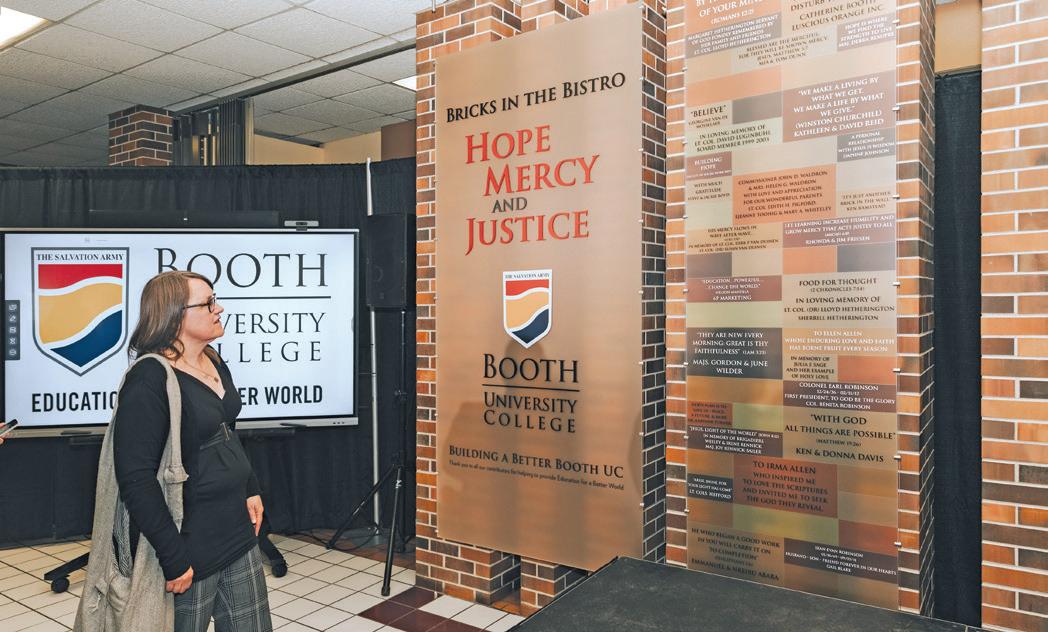

Onthe last Sunday in April, friends, family, staff and professors gathered at Knox United Church in Winnipeg for the first in-person Booth University College convocation ceremony since the start of the pandemic. With members of the board of trustees and representatives from divisional and territorial headquarters looking on, 101 students graduated and received their certificate or degree. The celebrations started the day before as members of the Booth UC community gathered to mark Booth UC’s 40th anniversary and observe the official unveiling
of the Bricks in the Bistro fundraising wall. Those donors in attendance received a bouquet of tulips from a grateful school.
On Sunday, the focus shifted to the convocation. “Graduating class, congratulations! You’ve done it,” said Lt-Colonel (Dr.) Susan van Duinen, president of Booth UC, as she welcomed everyone to the ceremony. “A convocation is a very celebratory time. It’s a milestone. It marks the moment that you cross the line from student to alumni. Crossing the line between one phase of your life that leads to the next, between what lies behind and what lies ahead.”
After introductory remarks by two Winnipeg MLAs and Colonel (Dr.) Wendy F. Swan, director of the International Social Justice Commission, Commissioner Floyd Tidd, territorial commander and chancellor of Booth UC, handed out the diplomas and certificates.
Commissioner Tidd presented the
Chancellor’s Medal to Marla Warkentin, bachelor of social work graduate and valedictorian. Bachelor of arts graduate Captain Alexander MacDonald, corps officer at Bay Roberts, N.L., was awarded the General’s Medal.
“Why am I here?” asked Warkentin in her valedictorian speech. “To be a representative of my peers and our school. I am standing up here today because I am a culmination of all of you. And I am so honoured to represent you.”
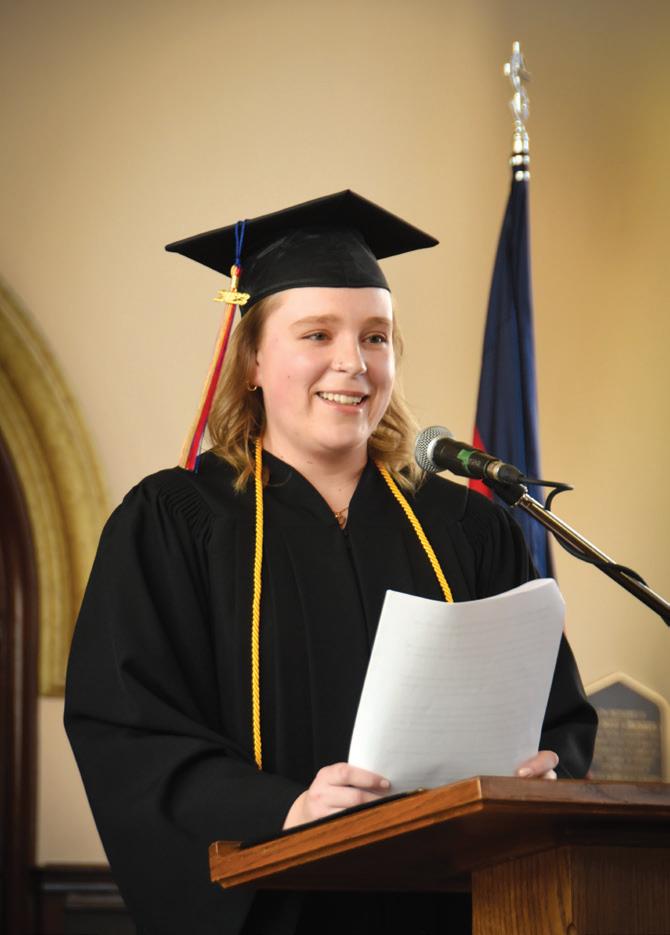
Warkentin shared a quote from a 2022 convocation address at New York University by singer-songwriter Taylor Swift: “Scary news is: you’re on your own now, but the cool news is: you’re on your own now.”
“The cool news is,” Warkentin concluded, “that now we get to take our newformed identities out into the world, and though we will be on our own, we will not be alone.”
TheItaly and Greece Territory, under the leadership of Canadian officers Lt-Colonels Andrew and Darlene Morgan, recently invited the Canada and Bermuda Territory to partner with them in co-creating a formal public relations, development and public affairs program.
“The opportunity to learn more about the work in the Italy and Greece Territory and help create a formal development program to support the mission in Italy is exciting,” says Lt-Colonel John Murray, territorial secretary for communications.
Chip Grizzard of Grizzard Communications Group, an expert in global fundraising trends and mission partner of The Salvation Army, was asked to identify and recruit a group of non-profit fundraising leaders in Italy to meet to discuss fundraising strategy.
“The Salvation Army is a deeply respected charity and brand across the world, and it was a joy to partner and to bring together a group of development thought leaders in support of the Army’s mission in Rome,” says Grizzard.
Supported by Janet Park, chief development officer for the Canada and Bermuda Territory, fundraising practitioners from charities across Europe and Italy met in Rome to explore how The Salvation Army could best set up a formal fundraising program.
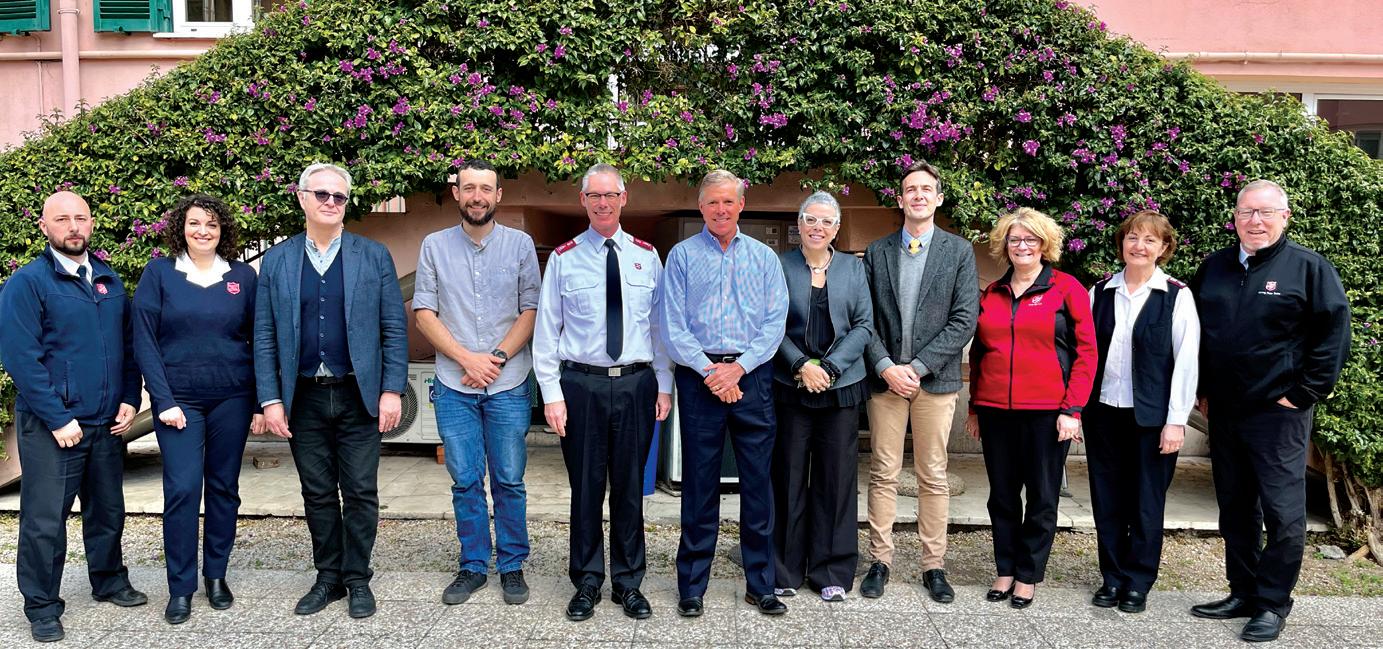
In addition to the day-long development workshop, a promising meeting took place with representatives from The Salvation Army and Edelman Italy, which supports non-profits and businesses in public affairs, public relations and crisis communications work. The meeting examined how best the organizations might be able to partner to grow the
Tohelp students find affordable prom and graduation dresses, The Salvation Army in Guelph, Ont., hosted its annual “Princess Project” event this spring to give students the chance to buy formal dresses, shoes and accessories at a low price.

Grade 12 student Nora Shifflett was one of 250 people who attended the event. She heard about it from her sister who found her prom dress in 2019 through the project. “I think it’s a great opportunity for students who don’t have much in their pocket. It is good to know that there is a place where you can get a dress that’s within your price range. I didn’t have to worry about the price tag,” she says.
The dresses sold through the Princess Project were priced at a flat rate of $20,
no matter the design. Shoes and other accessories were priced at $5. Shifflett and two of her friends were able to find the perfect prom dresses and shoes for a total of $25 each.
This year marked the first time since before the pandemic that The Salvation Army in Guelph hosted the Princess Project. The event was a success thanks to the hard work of the staff and volunteers led by Carla Holmes, administrative co-ordinator.
“We sold more than 150 dresses and raised over $3,200, which will support the Princess Project in the future and other community and family services programs. We had lots of community support through dress donations, prize
Army’s brand presence across Italy to support the integrated development program.
“The Italy and Greece Territory is grateful to Commissioner Floyd Tidd and the territorial leadership team who wholly endorsed and supported this partnership opportunity,” says Lt-Colonel Andrew Morgan. “We truly believe that we’re stronger together, and having the support of our home territory, along with Chip Grizzard and the territorial communications team, in the creation of a professional fundraising and communications program is simply outstanding.
“We’re grateful for the professional and practical strategic planning in support of the Army’s mission across Italy and Greece and look forward to next steps and growth in support of our mission.”
The Princess Project offers dresses, shoes and accessories at an affordable price
donations and people talking up the event,” Holmes says.
Due to the popularity of the Princess Project, Holmes says they plan to expand next year’s event by including menswear for the first time.
InMay, Salvation Army leaders visited Parliament Hill in Ottawa to connect and engage with government officials, and advocate on behalf of those the Army serves across Canada.
The weeklong event, which began with a reception on Monday, was attended by members of Parliament, senators, government staff, and territorial and divisional representatives, including Commissioners Floyd and Tracey Tidd, territorial leaders, and Colonel Evie Diaz, chief secretary. Though similar events have taken place on a smaller scale, this was the first time The Salvation Army participated in a national strategically planned public affairs week on Parliament Hill.
“It was an intentional advocacy week for The Salvation Army. We have a responsibility to remind our federal government partners of the work that we’re doing, how we’re helping Canadians and responding to their needs,” says Lt-Colonel John Murray, territorial secretary for communications. “We have made connections and renewed relationships, and in some cases developed new relationships. Now the key is to take those relationships back into local communities.”
According to Major Rick Zelinsky,
territorial public affairs director, The Salvation Army is effective in the communities it serves because of strong partnerships, including those with the federal government and departments such as Agriculture and Agri-Food Canada, which provided more than $30 million in funding to The Salvation Army to address food insecurity coming out of the pandemic.
As part of the event, territorial leadership engaged in individual meetings on Parliament Hill with various ministers and federal departments. In addition, delegates participated in a listening exercise with Major Shari Russell and Captain Crystal Porter, territorial Indigenous ministries consultants, to consider and learn about Indigenous relations and the Army’s commitment to the Calls to Action of the Truth and Reconciliation Commission.
“The Salvation Army week at Parliament is a wonderful opportunity to invest in our relationships, and to remind our elected officials not only of what The Salvation Army does, but why we do it and
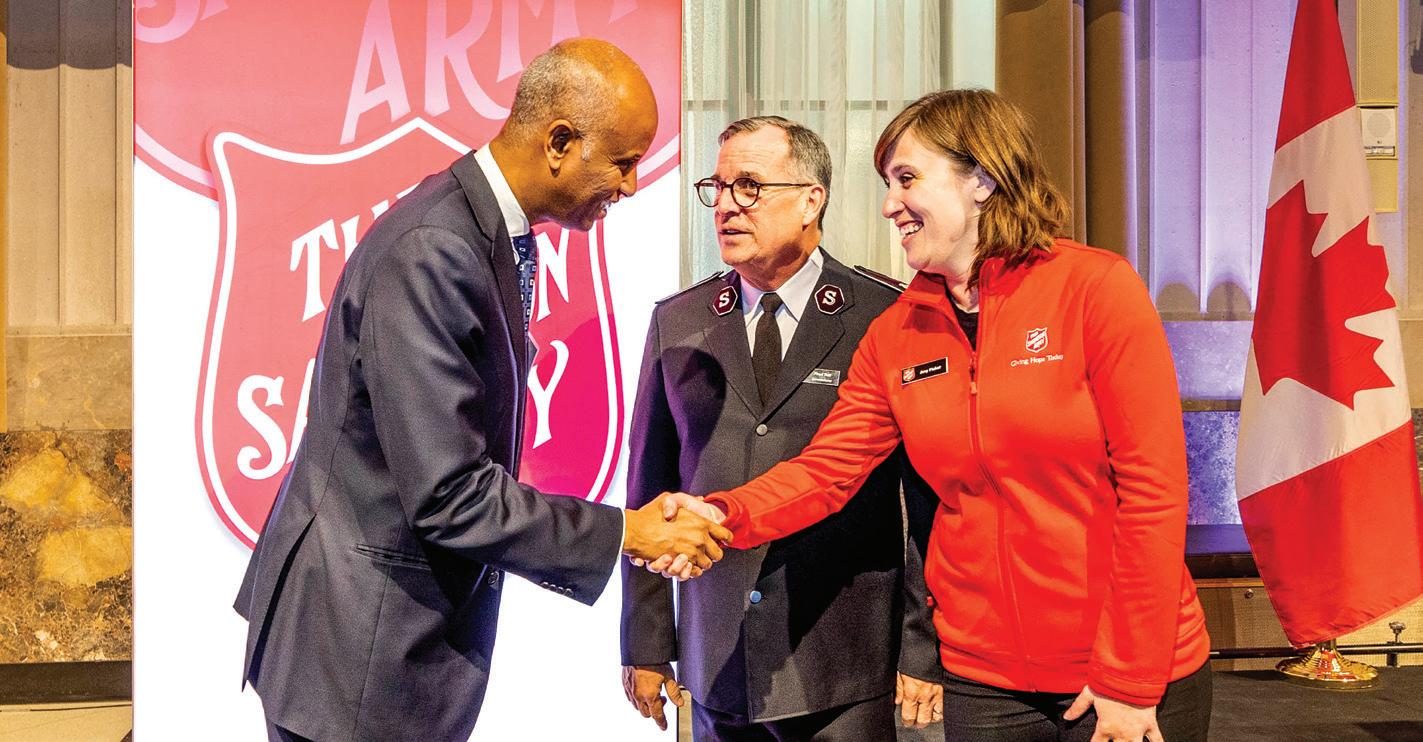
why we’re motivated,” says Lt-Colonel Murray. “It’s our faith that propels us. Whether it is emergency disaster services, shelters, long-term care or food banks, The Salvation Army meets people at their point of need. The spiritual and emotional care, along with our values of care and compassion, are what differentiate us from other organizations.”
“Thank you for your faith, your service and the example that you set for young people across the country,” said the Honourable Bill Blair, member of Parliament and minister of emergency preparedness, who spoke at a leadership dinner on Wednesday night. At the dinner, Blair announced $10.2 million in new funding for humanitarian workforce relief to build capacity and surge support through The Salvation Army’s emergency disaster services programs in Canada.
“It was a fascinating and an engaging week in Ottawa,” says Major Zelinsky, noting the Army is committed to making it an annual event.
EffectiveMay 8, 2023, the music and gospel arts department is now the music and arts ministries department. The current team will remain in place and each team member will have the additional responsibility of acting as a divisional liaison to better learn what is vital at the corps level and provide opportunities for support. Along with the name change,
the Canadian Staff Band and Canadian Staff Songsters, under the leadership of Bandmaster John Lam and Songster Leader Major Len Ballantine, respectively, will report to their executive officers and liaise more directly with music and arts ministries. This is an exciting move forward into greater collaboration as the team seeks out opportunities to support corps, ministry units, divisions and the territory.

Music and arts ministries will continue to partner with the many faithful
local musicians and artists serving at corps to grow, develop and rejuvenate music and arts in The Salvation Army.
“Our team will continue to do what we can to help music and the arts flourish on the front lines, as well as at the divisional and territorial level,” says Heather Osmond, territorial music and arts secretary. “With God’s leading, we hope to be a small part of our vast Army as we share in the ministry of music and arts to grow the kingdom.”
Lt-Colonels John and Lani Chamness take up appointments as chief secretary and territorial secretary for women’s ministries.
In August, the Canada and Bermuda Territory welcomes Lt-Colonels
John and Lani Chamness as chief secretary and territorial secretary for women’s ministries, who will take up their appointments with the rank of colonel. In this interview with Salvationist staff writer Abbigail Oliver, Lt-Colonels Chamness share their approach to ministry and the inspiration they bring with them into their new appointments.
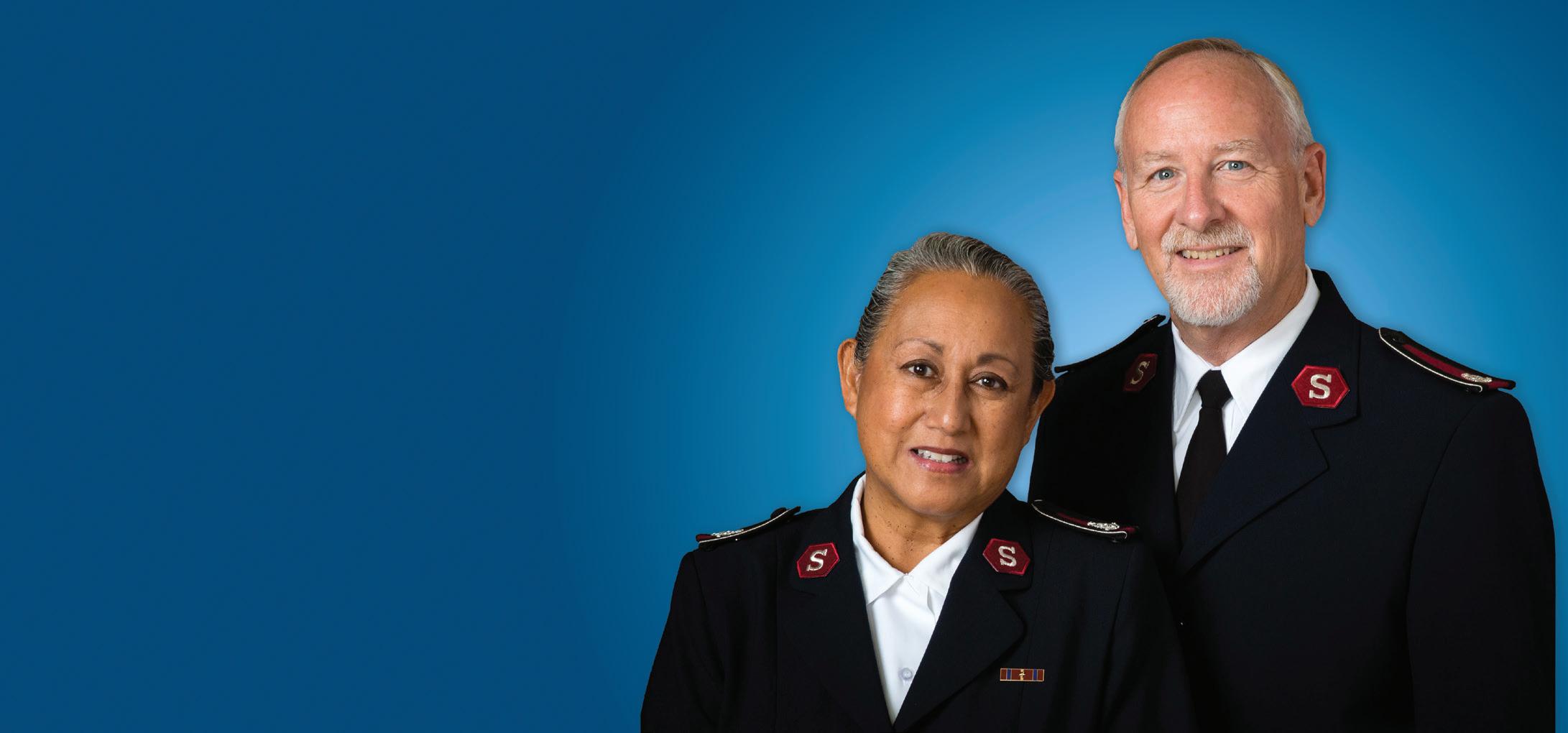
Can you tell me about your call to officership?
Lt-Colonel Lani Chamness: I was born and raised in the Army. My parents were officers and served the majority of their officership in Hawaii, where I was born. In my early 20s, I had a life and death experience, and in that I felt God’s presence. I realized that I wanted to spend the rest of my life serving him wherever he wanted me to go.
Lt-Colonel John Chamness: I’m a firstgeneration Salvationist. My dad and grandfather were both Presbyterian pastors, but I saw something different at the Army than I did at the Presbyterian church. God had called me to do more than just go to church— he had called me to be the church. And that’s what I saw in the Army.
After six months attending The Salvation Army Seattle Temple, I was enrolled as a soldier and through several experiences and Bible studies, I knew that God was calling me to ministry. I went to my corps officers and said, “I don’t know what’s going on. But I think I’m supposed to be an officer.”
How did you two meet?
LC: We both went to the College for Officer Training at Crestmont in California. I went in satisfied and determined to serve as a single officer. I wasn’t looking for anyone. But God put us together.
JC: Our first appointments were as assistant officers—Lani was sent to the Kauluwela Mission Corps and I was sent to the Leeward Corps, which are both on Oahu, Hawaii. We spent 19 years of our officership in Hawaii. We were married and had our three children there.
Since then, what has been your approach to ministry as a couple?
JC: Do whatever is needed. I look to the Scripture that says, “My life is not my own,” and this idea that it is no longer I who lives but Christ who lives in me [see Galatians 2:20]. My purpose and role are to serve people, love people and do the best that I can through The Salvation Army.
LC: I think about John 15, which says that Jesus is the vine and the Father is the gardener, and that we cannot bear fruit alone. In ministry, wherever God places us, we are being grafted into that family, that place, that community. Now, we are grafted into the Canada and Bermuda Territory. Our purpose is to work together and serve together.
How do you feel about taking up your new appointments here?
LC: We’re excited. We’re looking forward to this.
JC: We’re feeling overwhelmed. We’re feeling scared. We’re feeling privileged. We continue to hear about the incredible ministries in Canada and Bermuda and we are excited to learn from what The Salvation Army is doing here.
This year, the Canada and Bermuda Territory has an intentional focus on inspiring Salvationists for mission. What does it mean to you to be “inspired for mission” and what inspiration do you bring with you into your new appointments?
JC: The Salvation Army is an incredible force to be reckoned with. We’ve got to stop holding it in. We’ve got to get out there and reawaken this passion for ministry that God has called us to. God has provided this plethora of opportunities for us in The Salvation Army.
Let’s stop saying “This is what The Salvation Army is.” Instead, let’s give our people the opportunity to really embrace whatever ministry God calls them to. Do whatever you need to do to win souls for Christ.
LC: Our primary calling is not to an organization, a rank or to the colour of our epaulettes—our primary calling is to know Christ and to have a relationship with him above all things. From that, we will learn what his desire and purpose is for our lives. That is my word of encouragement to others: know him first and be known as his.
Read the full interview with Lt-Colonels Chamness at salvationist.ca/chamnessinterview.
Nearly four years ago, Tracey and I returned to the Canada and Bermuda Territory and committed to a season of listening to the hopes and concerns of officers, soldiers, employees and friends of The Salvation Army. We also received recommendations arising out of reviews that examined the complexities facing front-line ministries, as well as the economic model supporting mission.
The Mobilize 2.0 transformation program was developed to help our territory be “inspired for mission and positioned for growth.” We wanted to build on the best of the past, within the context of our core values, and implement changes that would enable us to work together effectively. Over the course of the last three years, Mobilize 2.0 focused on three key outcomes:
• A vision-aligned strategy
• A holistic mission delivery model
• Mission-fit processes
The journey began with 100 days of shared prayer and Scripture. Following this season of prayer, more than 3,000 officers, soldiers, employees and volunteers took part in creating a new territorial vision statement, which was released in November 2020. Since then, local expressions of The Salvation Army in Canada and Bermuda have participated in a threestage process of learning, living and leading this vision. It has been exciting to visit corps and ministry units across the territory and see the vision being lived out in ways that reflect the mission of The Salvation Army in their unique context.

Once a clear vision was established, we needed a territorial strategy to deliver on this vision. The development of the strategic plan began in fall 2020. Over
the next year, more than 120 participants shared their perspectives, pondered implications, asked critical questions and prayed. With approval from the Governing Council, the strategy was launched in fall 2021. It is built upon four pillars: strengthen spiritual health, design for people, forge stronger partnerships and optimize mission impact.
A new governance structure, approved by International Headquarters, was put into place to implement the strategy. The new structure has allowed us to add new voices, advisors who are independent of management and provide increased diversity in the dialogue that precedes decision-making by the Governing Council. It also allows senior leaders to focus on long-term strategic issues and spiritual leadership.
The second objective of Mobilize 2.0 was to ensure an effective holistic mission delivery model. A new, high-level operating model was developed and is now in the process of being implemented. This includes a centrally co-ordinated function, through territorial headquarters, for specialized social mission. The establishment of regional integration forums will aid collaboration between multiple and diverse expressions of The Salvation Army in defined areas.
The third objective of Mobilize 2.0 was to ensure that mission-fit processes are in place to support those who are delivering the mission. The new operating model positions mission support services as centrally co-ordinated and geographically serving across the territory. These mission support services, including public relations, communications, translation services, public affairs and human relations, are now centrally coordinated, while serving divisions and local ministries. In the coming months,
property and finance will become centrally co-ordinated, as well. The decision to move from eight to four divisions, effective January 2024, will help the Army respond to increasing external complexities, create greater consistency across divisions and provide opportunity for divisions to have an equal voice in territorial decisionmaking, with divisional commanders as part of the territorial management board.
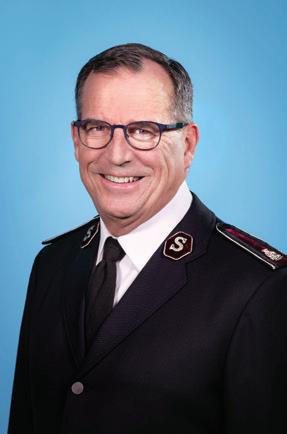
As Mobilize 2.0 draws to a close, we celebrate the work accomplished and express appreciation to all the officers, soldiers, employees and volunteers who have consistently prayed and participated in this program over the last three years. Over the coming months, the implementation of recommendations will continue.
The biblical foundation for the work of Mobilize 2.0 has been Ezekiel 37. As the bones in the dry valley came together and were reconnected, the prophet Ezekiel called out for the Spirit to breathe fresh life into bodies. Then “breath entered them; they came to life and stood up on their feet—a vast army” (Ezekiel 37:10).
As we look across the Canada and Bermuda Territory, we are seeing evidence of a fresh wind of the Spirit of God in response to the prayers of his people. May God continue to answer prayer, inspiring his Army for mission and positioning us for growth, so that, as innovative partners, we will be mobilized to share hope wherever there is hardship, building communities that are just and know the love of Jesus.
As Mobilize 2.0 concludes, the story continues.
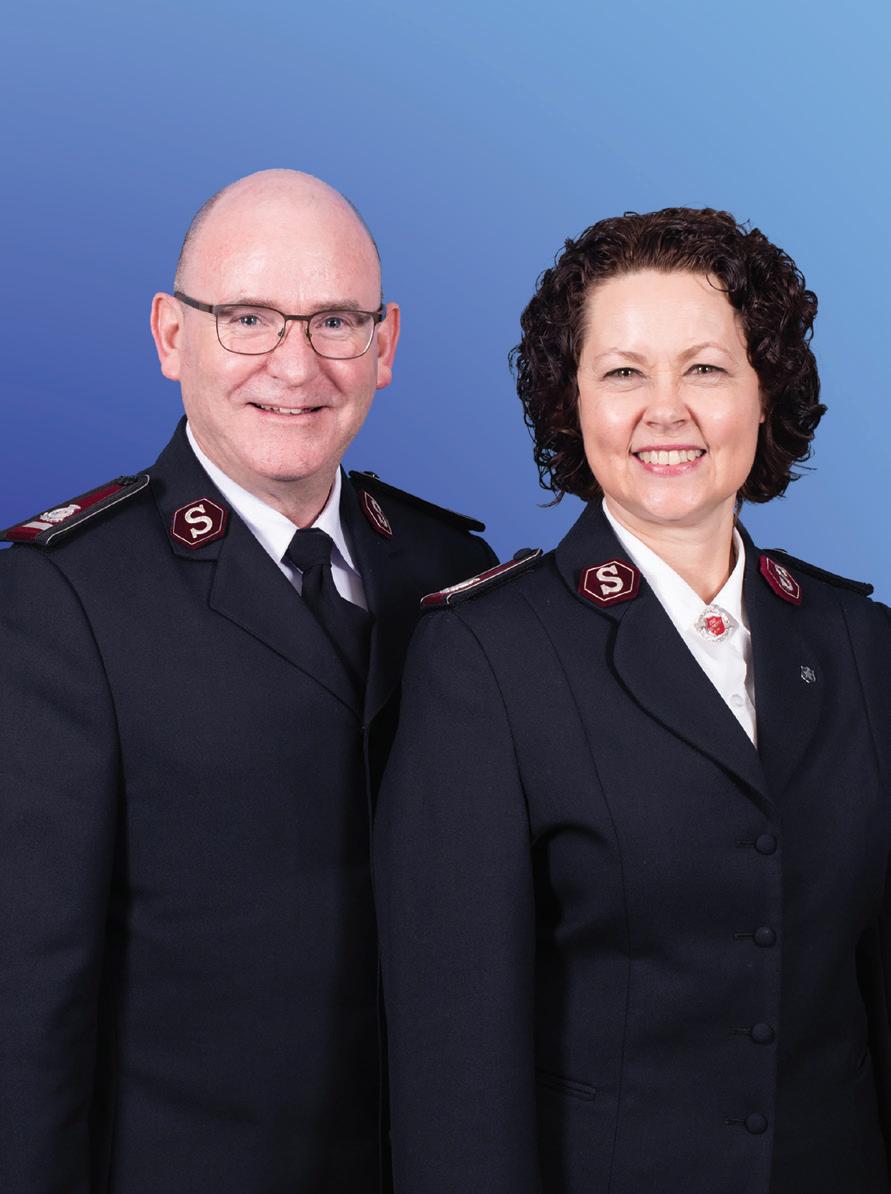 BY LT-COLONEL JENNIFER GROVES AND PAMELA RICHARDSON
BY LT-COLONEL JENNIFER GROVES AND PAMELA RICHARDSON
“Yournew General-Elect is Commissioner Lyndon Buckingham!” announced Commissioner Brad Bailey, president of the 2023 High Council, to those gathered on the grounds of Sunbury Court near London, England, and thousands of Salvationists watching by live stream on Saturday, May 27. The General-Elect, currently serving as Chief of the Staff, and Commissioner Bronwyn Buckingham, World Secretary for Women’s Ministries, will assume international leadership of The Salvation Army following the retirement of General Brian Peddle and Commissioner Rosalie Peddle, World President of Women’s Ministries, at midnight on August 2.
“We love the mission of The Salvation Army and believe passionately that Jesus is the hope of the world,” said the General-Elect immediately following the announcement. “We are so grateful and humbled to have an opportunity to serve in this way. We will serve wholeheartedly the mission of The Salvation Army and our Lord and Saviour, Jesus Christ. We will do so with humility, with grace and with courage.”
The High Council was welcomed in a public meeting on Saturday, May 20, at London’s Central Hall Westminster as they prepared for their sacred task of electing the 22nd General in the days that followed. The event combined prayer and music and served as a farewell celebration for General Brian Peddle and Commissioner Rosalie Peddle (see “A Warm Goodbye,” page 11).
“I address you on behalf of a prayerful and expectant global Army,” said General Peddle in his charge to the High Council. “Your challenge is to discharge your duty and to abandon all personal preferences and to surrender to the will of God. Trust in the Holy Spirit.”
On Sunday, May 21, the High Council gathered at Sunbury Court for a day of prayer and worship. In his Bible message, Commissioner Massimo Paone reminded them of their mission to discern God’s voice and the Holy Spirit’s guidance. With the international Salvation Army praying for them, members gathered in small groups to pray for one another.
The 20th High Council officially commenced on Monday, May 22. The Chief of the Staff called the proceedings to order and moved to the required legal preliminaries. These included confirming that the High Council was convened in accordance with the 1980 Salvation Army Act, and taking a roll call to ensure that only those who were summoned were in the chamber.
Opening procedures were followed, leading to the election of three High Council officers: Commissioner Kenneth Hodder, national commander, United States of America, as president; Commissioner Eva Kleman, zonal leader/zonal secretary for women’s ministries, Europe–International Headquarters (IHQ), as vice-president; and Commissioner Yusak Tampai, territorial commander, Indonesia Territory, as chaplain.
The remainder of the day was given to reviewing the Orders of Procedure that would guide the conducting of High Council business throughout its duration.
On Tuesday, May 23, seven council members were elected to the Questions Committee to formulate the questionnaire to be answered by each candidate for General and his or her spouse (if married): Commissioner Merle Heatwole, territorial commander, Latin America North Territory, as chair; and representatives from the Caribbean; India South Eastern; Netherlands, Czech Republic and Slovakia; Australia; Zambia; and Pakistan territories. High Council members were also invited to submit possible questions to the committee.
Wednesday, May 24, began with the chaplain sharing ways the High Council was experiencing the power of the Holy Spirit through the prayers of people around the world. He encouraged members to be in harmony with the Lord as they sought to find the one God had already chosen to serve as General. Later that day, with the questions finalized and approved, the High Council prayerfully made their nominations for candidates to accept the office of General.
Accepting the nomination were Commissioner Lyndon Buckingham, Commissioner Merle Heatwole, Commissioner Kenneth Hodder and Colonel Diana Macdonald, territorial
commander, Pakistan Territory. Declining the nomination was Commissioner Keith Conrad, zonal leader and international secretary, Africa Zone, IHQ
With the acceptance of nomination by Commissioner Hodder, Commissioner Brad Bailey, territorial commander, U.S.A. Central Territory, assumed the role of president. Commissioner Heatwole’s acceptance of nomination led to the appointment of Commissioner Miriam Gluyas, territorial commander, Australia Territory, as chair of the Questions Committee.
The High Council met briefly on Thursday morning, May 25, and then proceedings were paused until the next morning while the candidates and their spouses prepared speeches and answers to the questions.
On Friday, May 26, the candidates and their spouses presented responses to the questionnaires in an order determined by the drawing of lots. Their responses were delivered without interruption and listened to in respectful silence, without any expression of approval or dissent throughout (as outlined in the Orders of Procedure). At the conclusion of each response, council members engaged in silent prayer before the chaplain shared Scripture verses of encouragement and confidence, including: “Be still, and know that I am God” (Psalm 46:10), and prayed.
Candidates then presented prepared speeches, with the order again determined by lot and each being followed by the silent prayers of council members, and Scripture and prayer by the chaplain.
Prayers of the worldwide Army and the 2023 High Council were the underpinning of all that had taken place in the week leading up to Saturday, May 27, when council members gathered to elect the 22nd General of The Salvation Army.
In his devotional, Colonel Samuel Baah, territorial commander, Malawi Territory, cited the words of 2 Chronicles 20:12: “We do not know what to do, but our eyes are on you,” and encouraged the members to fix their eyes on God. “We are here to rely solely on the strength of God,” he said, “and to ask him to take all the glory and honour as we go into this exercise [the voting process]. We need God to stand by us.”
Following a time of prayer, the president guided the council into the election process, which was undertaken in silence as a solemn and sacred duty. This resulted in the election of Commissioner Lyndon Buckingham as the 22nd General of The Salvation Army.
Beautiful moments of prayer were shared with the General-Elect and Commissioner Bronwyn Buckingham, beginning with a blessing shared in the Māori language by fellow New Zealanders who were present in the chamber.
General Brian Peddle and Commissioner Rosalie Peddle, World President of Women’s Ministries, gave the traditional Salvation Army salute as the audience cheered at Central Hall Westminster, London, England, during their farewell celebration on Saturday, May 20. The event also served as the public welcome for the 2023 High Council.
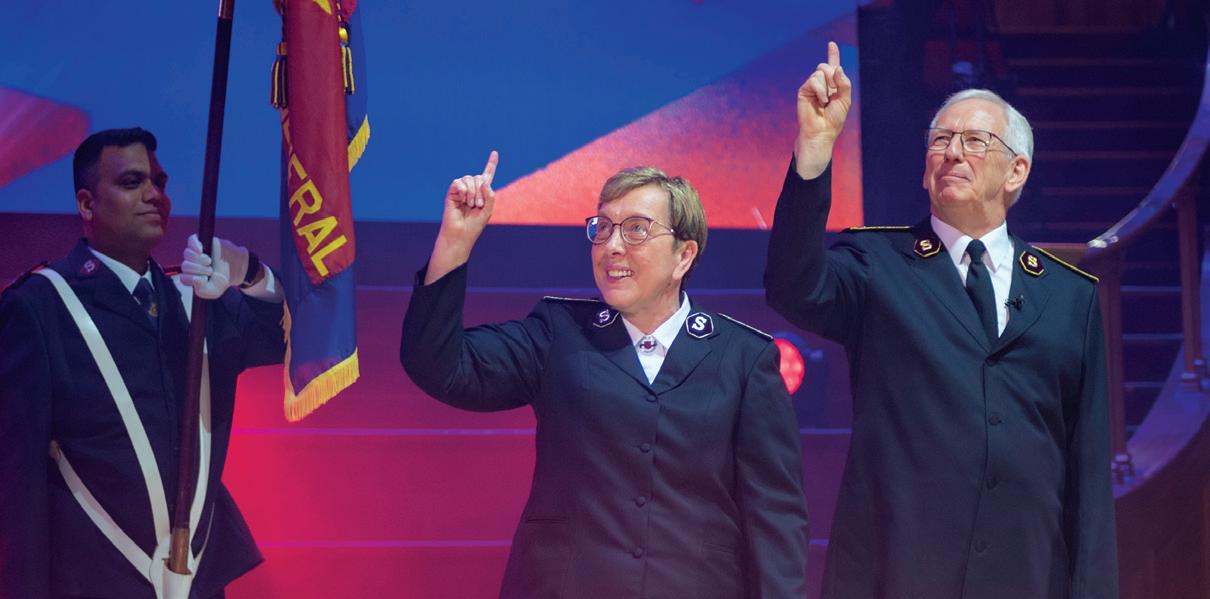
Prayers, Scripture and music were shared by International Headquarters’ staff and praise team, African Praise Fellowship Zimbabwe, Konverse Dance Crews, the International Staff Band, the International Staff Songsters and representatives of Southwark Corps.
Videos and animated films highlighted the leadership, global service and personal reflections of the international leaders.
The Peddles’ daughters, Stephanie Forystek and Major Krista Andrews, corps officer at Richmond Hill Community Church, Ont., paid tribute to their parents. “You have modelled what it is to keep company with Jesus, and this is the greatest gift that you have ever given,” Major Andrews said. “Now it’s time to come home–and we will be waiting with open arms.”
“I stand here today as a testimony to what is possible when God has it all in his hands,” Commissioner Peddle said. “I say farewell to this unforgettable experience of being one of the international leaders of The Salvation Army.” Thanking her family and the global Army for their support, she said, “We will be forever interested and will pray for you continually.”
“In your ‘Call to Mission’ you encouraged us to take responsibility to raise up every generation,” said Colonel Alfred Banda, territorial commander, Zambia Territory, as he paid tribute to General Peddle. “You have fulfilled God’s calling! We are praying for you and wish you a happy and fruitful retirement.”
Commissioner Robyn Maxwell, zonal secretary for women’s ministries, South Pacific and East Asia, IHQ, said the leaders were approachable and visionary. “You led us magnificently through COVID. You took to social media and became our very first ‘digital General.’ Commissioner Rosalie, thank you for being a champion for women and girls. Thank you for your 93 years of combined service.” A standing ovation followed these emotional and sincere tributes.
“It has been a privilege to lead the international Salvation Army,” the General said. “Glory to God!” Sharing his confidence in the future, he said, “This is not the end of the story. The Salvation Army has a place in the world to give salt and light, because God still welcomes prodigals home. He will come again! Walk in obedience and love the Lord your God with all your heart and all your soul.”—IHQ Communications
Commissioners Brian and Rosalie Peddle receive a warm welcome at London Citadel, Ont., as the newly installed territorial leaders for the Canada and Bermuda Tty in 2011
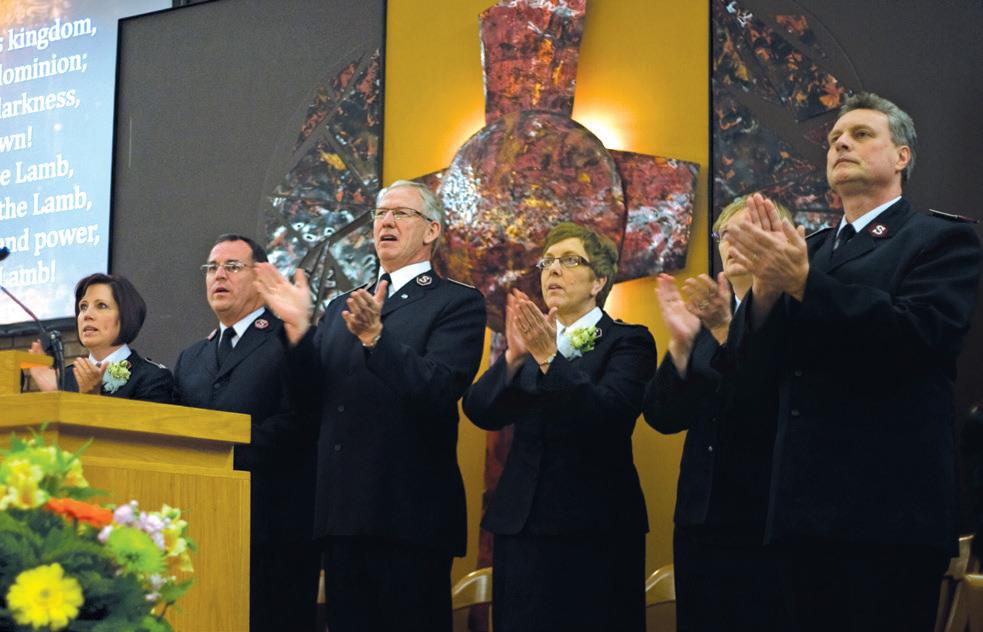
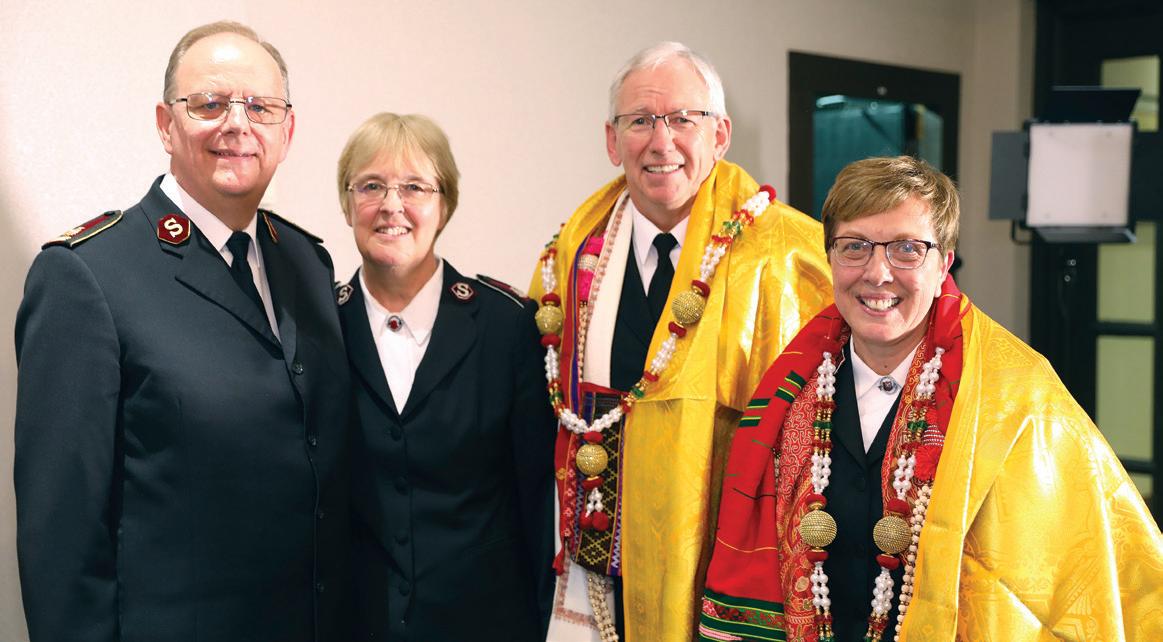
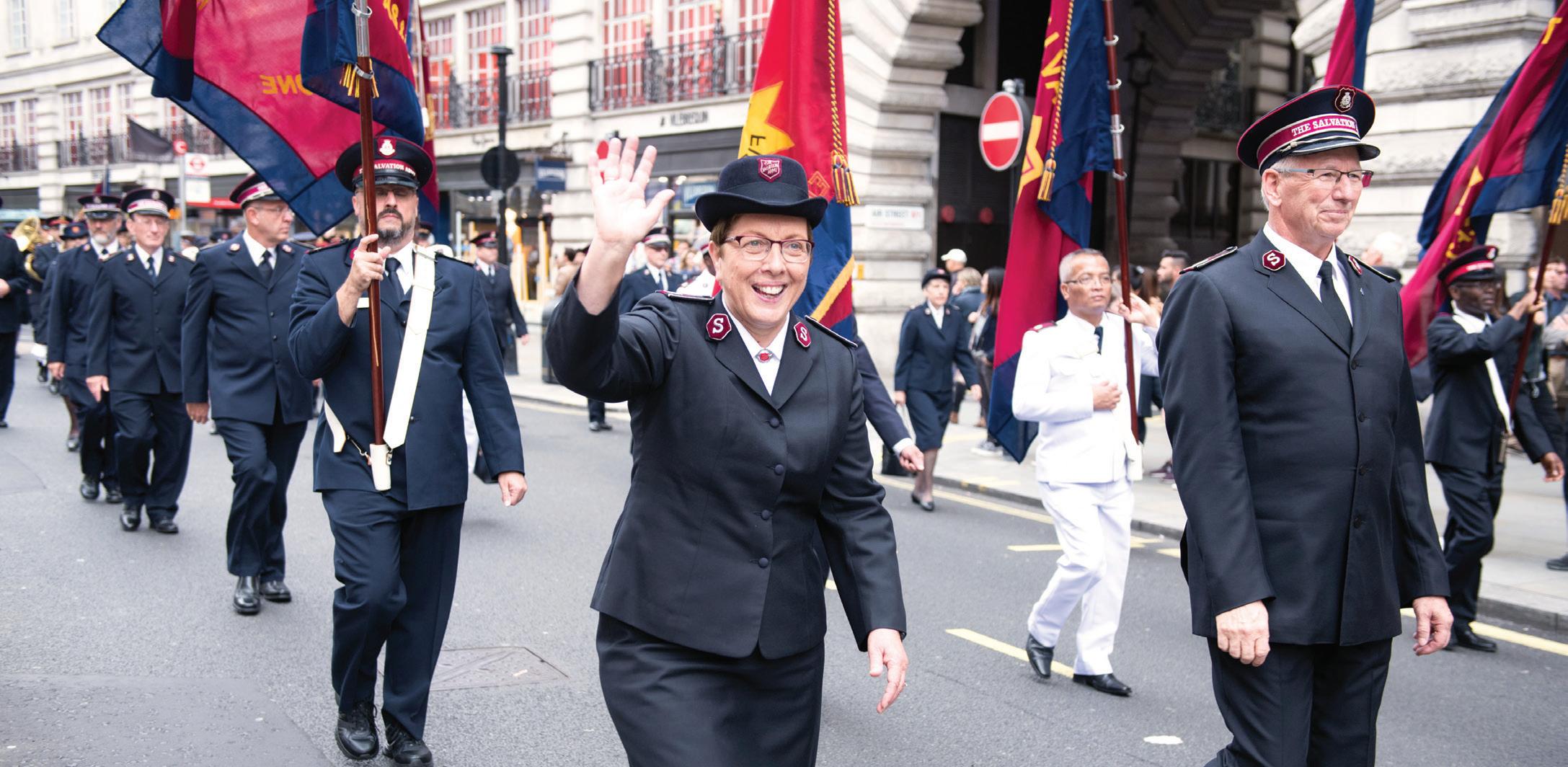
Commissioner

“It is our greatest joy to be able to preach our way around the world and speak of what God is planting in the hearts and minds of people still today.”
—General Brian PeddleGeneral-Elect Commissioner Brian Peddle and Commissioner Rosalie Peddle, with General André Cox and Commissioner Silvia Cox, following the election at the 2018 High Council Brian Peddle, then territorial commander for Canada and Bermuda, visits with children in Malawi as part of a Partners in Mission trip in 2012
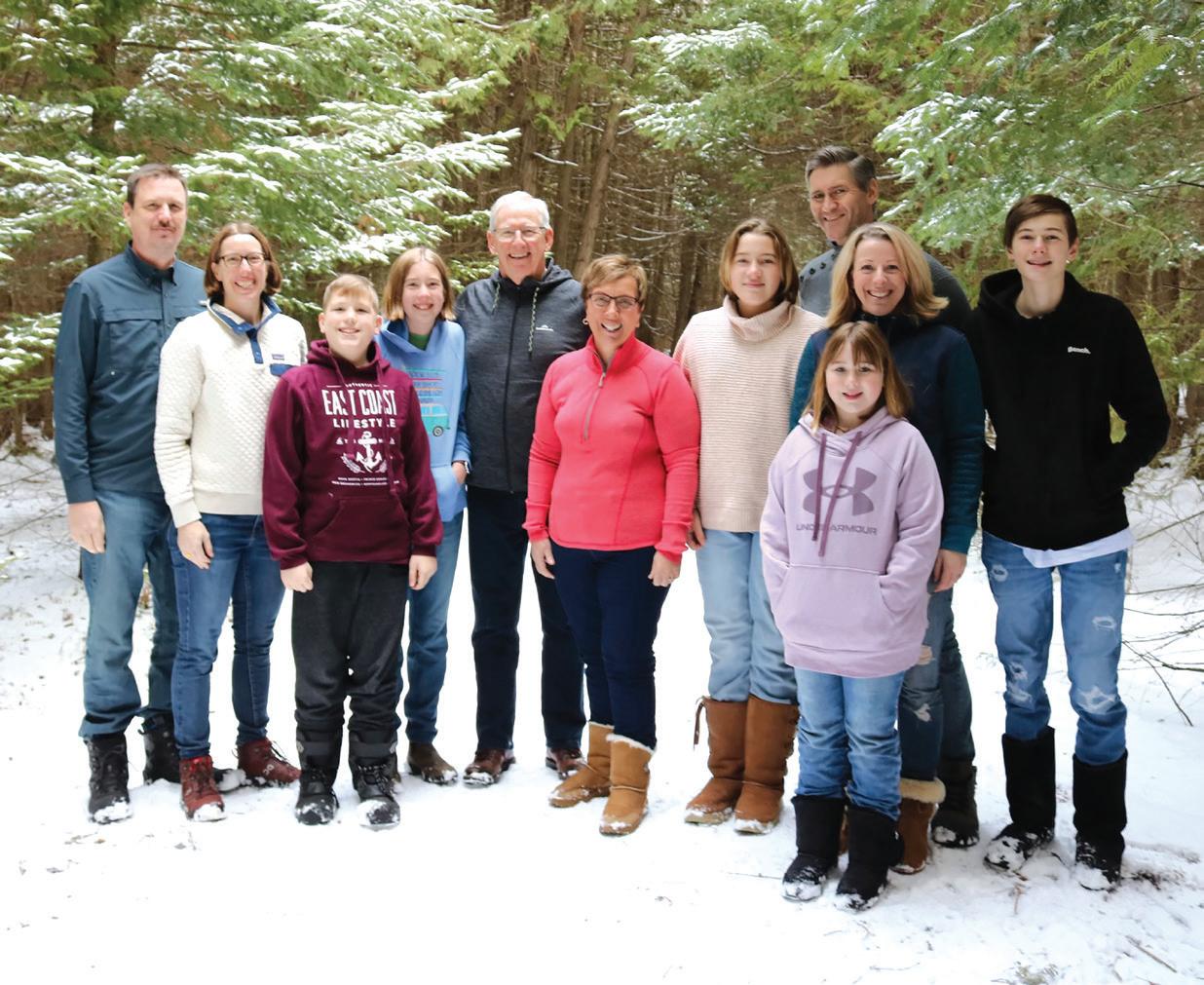
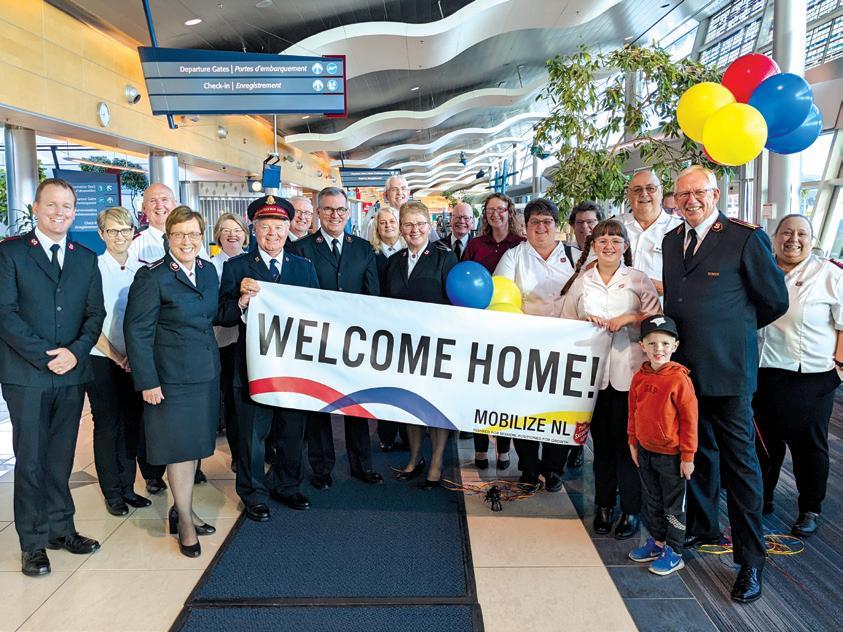
This August, General Brian Peddle and Commissioner Rosalie Peddle, World President of Women’s Ministries, will retire after a combined 93 years of service as officers in The Salvation Army. Beginning their journey in Newfoundland and Labrador, the Peddles served in various appointments across the Canada and Bermuda Territory before taking up appointments in New Zealand, the United Kingdom and at International Headquarters in London, England, culminating in then-Commissioner Brian Peddle’s election to the office of General at the 19th High Council in 2018.
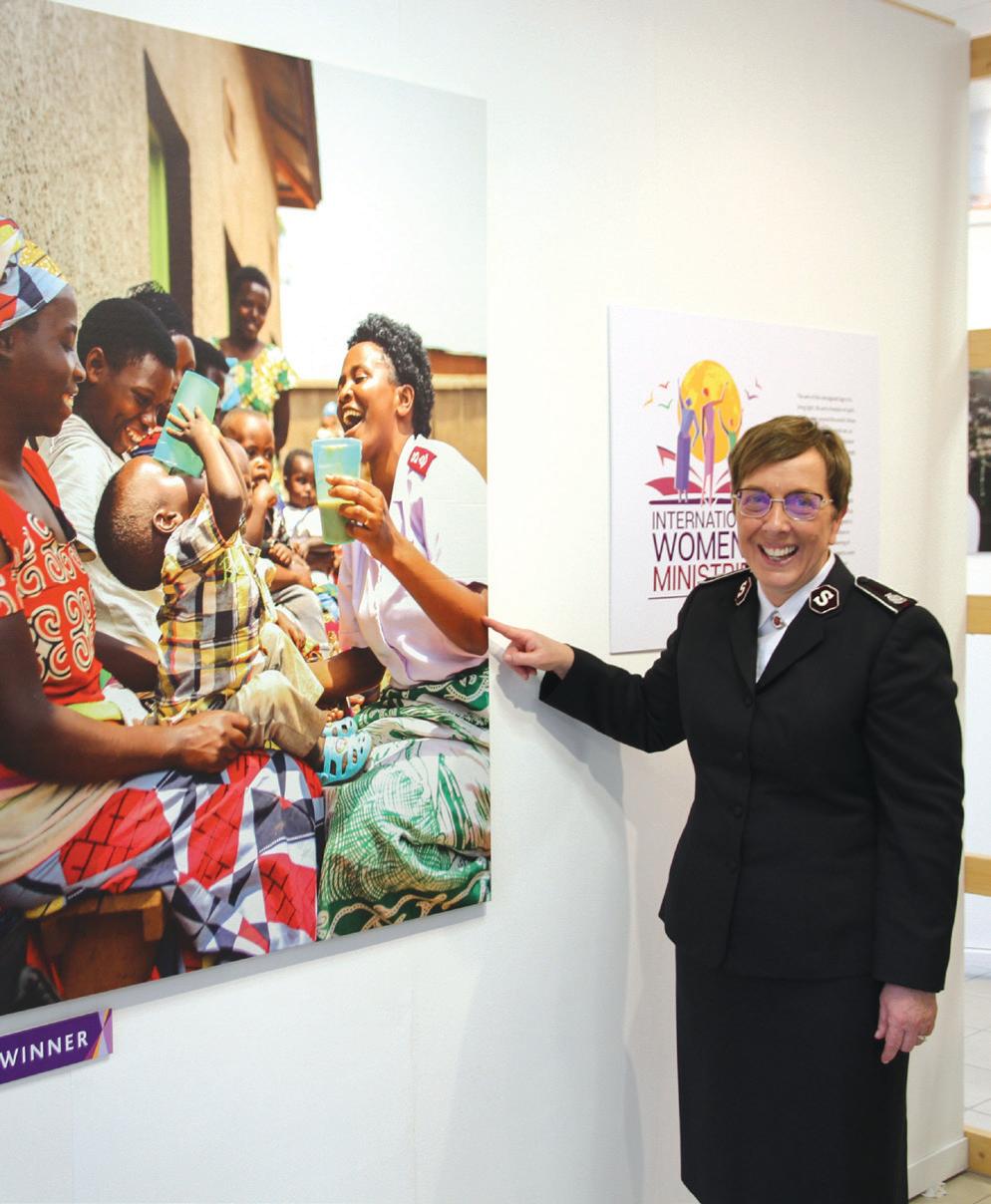
During the past five years, as world leaders of the Army, the Peddles have guided our movement through difficult times, navigating the COVID-19 pandemic and inspiring Salvationists through the General’s Call to Mission. Now, as they retire, the Army thanks them for their exceptional service.
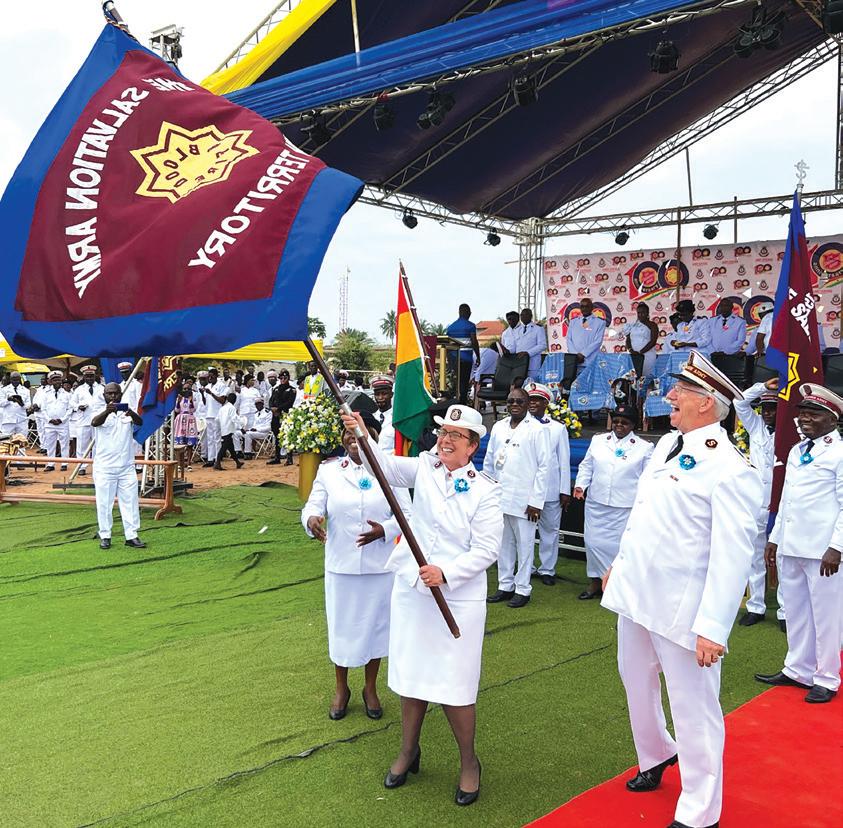 Commissioner Rosalie Peddle waves the Army flag as General Brian Peddle looks on during anniversary celebrations in the Ghana Tty in 2022
Commissioner Rosalie Peddle waves the Army flag as General Brian Peddle looks on during anniversary celebrations in the Ghana Tty in 2022
leave a legacy of mission-minded ministry.Salvationists and friends welcome the Peddles back to their home division of Newfoundland and Labrador during a visit in September 2022 The Peddle family gathers to celebrate Christmas in 2021. From left, Adam, Stephanie, Thomas and Kayla Forystek; “Pop” and “Nan” (General Brian Peddle and Commissioner Rosalie Peddle); Kheri, Mjr Tim, Bella, Mjr Krista and Aleks Andrews. Mjrs Krista and Tim are COs at Richmond Hill CC, Ont.
“It’stime to come home.”
As an only child, I always knew the day would come when I needed to take care of my parents. I was living in Lahore, Pakistan, where I was the principal at the Salvation Army training college—an appointment I loved—when those words were finally spoken.
I received a telephone call telling me that my dad had suffered a heart attack and was in the intensive care unit at the hospital in Swift Current, Sask. When you have to travel halfway around the world in an emergency, you realize how far from home you are.
Dad recovered but he was not well. The Salvation Army graciously arranged for my repatriation, not only to Canada but to Shaunavon, Sask. I joined the personnel department at territorial headquarters, working remotely, allowing me to begin my role as a caregiver. I had no comprehension of how this experience would enrich my life.
Taking care of each parent was a different experience. My dad was promoted to glory two years after I returned to Canada. We were able to keep him at home with the help of home-care nursing
staff. As his condition deteriorated, he was moved to the hospital for his final six weeks. My mom was home for 10 years before she suffered a stroke and then we entered the world of long-term care for another 4½ years.
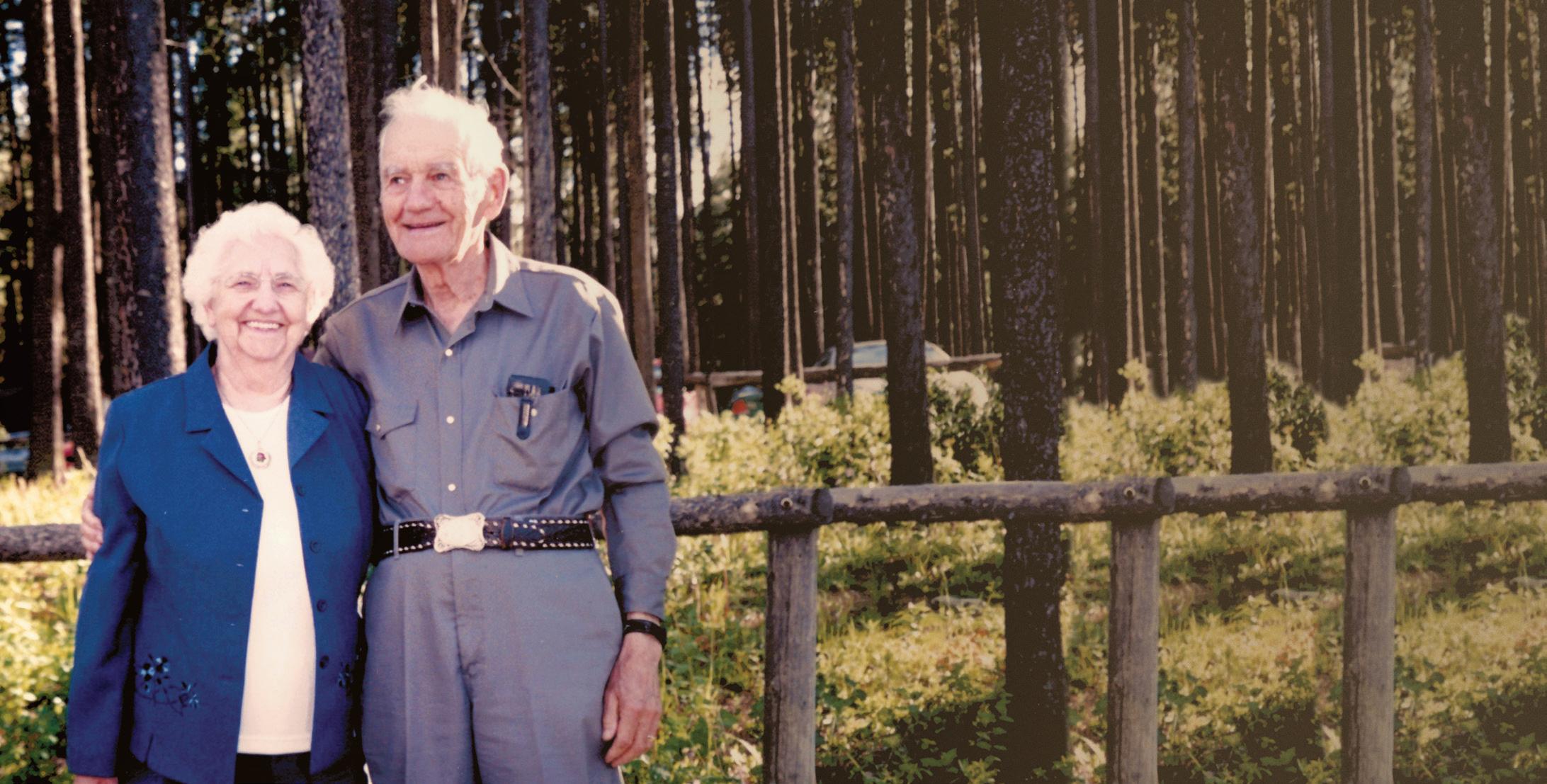
Prior to her stroke, I was afraid to leave her at home alone as she was unsteady on her feet, and it was easy to imagine her falling. After her stroke, she could not feed herself or even see the food on her plate due to macular degeneration, so I fed her.
The Salvation Army allowed me to retire early, and I was able to invest all my time into caring for my mother. Her stroke caused weakness to her right arm and leg, and she was confined to a wheelchair. She was apprehensive about entering long-term care and the transition was not easy. I began spending about 10 hours per day with her, and if she became upset in the night I would go back and sit with her.
For me, caregiving was not a 9-to-5 job—it was a 24-7 marathon. I was a caregiver for 14 years, with no days off. It was a whole-hearted commitment.
The hardest things to face were not the sleepless nights or the emotional roller-coasters, but the isolation and
aloneness. Coming back to Canada after 13 years overseas, and to a town that I had visited but never lived in, left me without close friendships here. Taking on this role without backup or support was not a good plan, but it seemed the only way forward.
I wasn’t able to attend church for more than 10 years. Was I angry with God? No, I needed him more than ever, but I could not physically be in two places at the same time. I did manage to create what author Henri Nouwen called a “sacred space”—a couple of hours each morning for Scripture, devotional reading and prayer. While this was vitally important, I missed Christian fellowship.
Running on adrenaline and necessity for that length of time is possible, but it does take a toll. God is so good and gives strength when we think we are just too tired to keep going. Looking back now, I am sure he looked at me and just shook his head. Why didn’t I reach out and ask for some help?
One of the greatest challenges of caregiving was having to make medical decisions and live with the outcome. My dad was in terrible pain and was on strong pain
What I learned as I cared for my parents at the end of their lives.Mjrs Lillian and Robert Hammond at Cypress Hills Interprovincial Park, Sask.
medication even before he went to the hospital. He had to be given an extra dose prior to repositioning him in bed.
One day at the hospital, a nurse stopped me in the corridor and told me that there was nothing more they could do for my dad and that I should take him home to die. She was young and inexperienced, so I didn’t reply to the remark. He was in the hospital because it was beyond my capacity to cope with his condition, along with caring for my mom and my work as an officer. The remark hurt and made me think that I had failed my dad but, realistically, taking him to the hospital was the best I could do for him.
When my mother was 94, a medical issue arose and I found myself in an ambulance with her, travelling more than 100 kilometres to the hospital in Swift Current. The doctor had me making decisions immediately as the situation was critical. Standing there alone, without medical knowledge, I just had to pray and believe that the Lord would help me make the right decisions.
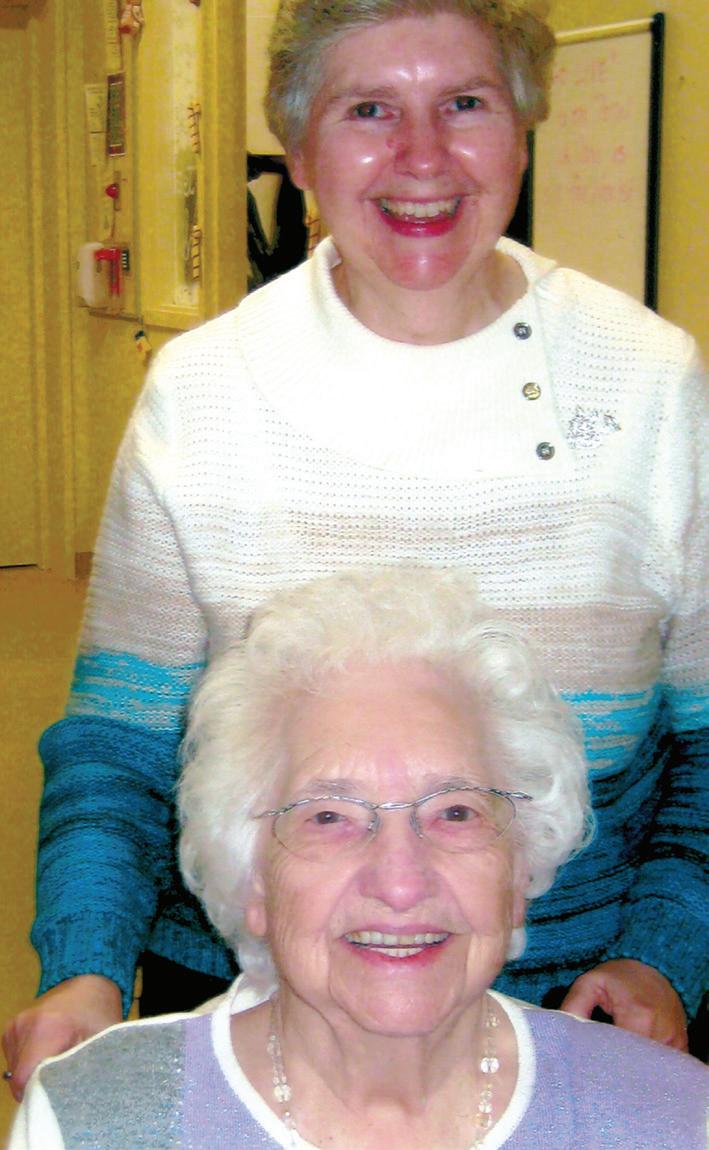
Three times the doctor had me go in and say goodbye to my mom because he didn’t think she was going to make it. Three times I went into her room, kissed her on the forehead and told her I loved her. I couldn’t say goodbye because I didn’t believe she would die that night. They were able to get her heart back into a regular rhythm and she survived for two more years. I thank God for that doctor and his kindness, compassion and skill.
One important lesson I learned from caregiving was that we need to tell people what they mean to us and how they have encouraged us. Why do we often wait until it is too late? I believe we need to encourage each other along this journey of life. I was grateful for the opportunity to be with my parents at the end of their earthly lives. It gave me time to say the things that so often get overlooked in the busyness of life—words of love and appreciation, what they meant to me and how I thanked God for them.
My mom could never stand to be alone and, whatever the memories she lost, she knew I was there. I spent the last three days and nights of her life in her room. The evening she died, she was having trouble breathing so I got on the bed and held her in my arms. I told her I loved her and let her know that she was not alone.
During the time between my dad’s promotion to glory in 2008 and my mom’s in 2020, I lost two aunts, four uncles and four cousins, along with literally dozens who passed through my mom’s long-term care home. It seemed like riding a never-ending wave of death. The experience gave me an even greater appreciation of the hope we have of heaven.
The experience of caregiving taught me the value of a broken heart. It is when the heart is broken that we can embrace the
pain of others. Whatever compassion and empathy I possessed before did not seem to have the depth necessary to cope with what I was experiencing daily. We are called to a ministry of service, sacrifice and suffering. While this might not be a popular theme today, it is what Christ calls us to engage in and what he enables us to accomplish.
Immediately following my mom’s death, the long-term care home went into lockdown. My world came to an abrupt end with no chance for goodbyes. Not only did I lose a loved one, but my whole community was gone. The morning after mom’s funeral, I got up and wondered what to do—the usual routine was no longer relevant. Now, a few years later, I am still looking for my purpose and my place in the real world. God will reveal it in his time.
Caregiving was an incredible “learn as you go” experience—at times difficult, but also a privilege to cherish. No one should be left alone when they are weak or ill. The challenge to care for someone until the end of life may seem daunting, but God gives special grace and will be with us until the journey is completed.
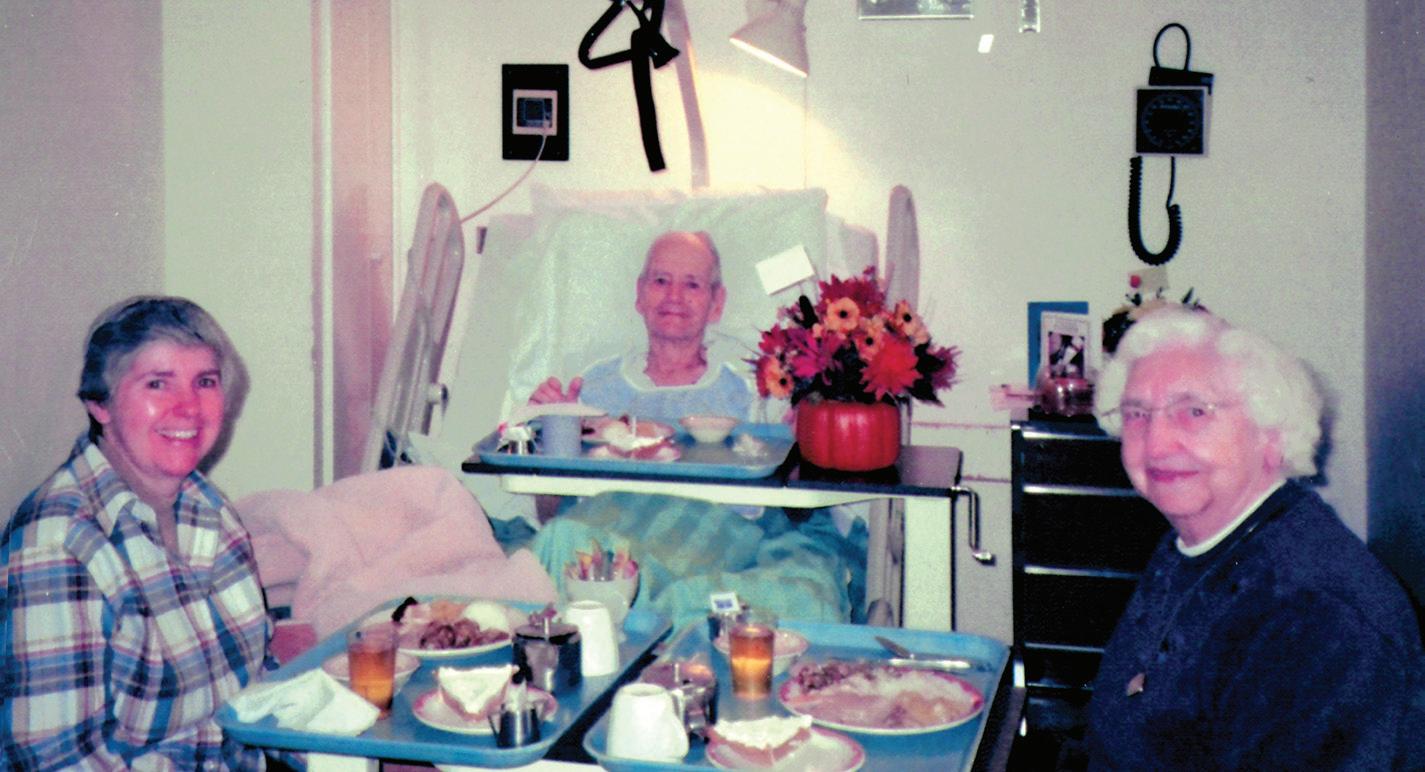
At Yorkwoods Community Church in Toronto, a corps situated in a high-needs area of Ontario’s capital, a new sports program reaches youth who would otherwise have had no interaction with The Salvation Army. The program, costing only $20 to register, offers youth more than just a place to play soccer on Thursday nights. It gives them an opportunity to develop valuable life skills and build relationships with new mentors, and it opens the door to learning about Jesus. As the program continues to expand, attracting attention, participation and partnerships, it brings positive change to a community in need.
“Jane and Finch is an area of Toronto that is notorious for violence and crime,” says Captain Dae-Gun Kim, who was corps officer at Yorkwoods Community Church until June 30, when he took up a new appointment at White Rock Community Church, B.C. “We did an assessment of the needs in our community and what programs we could offer. We discovered that a large percentage of teenagers here
do not graduate from high school and participate in gang activity.”
That assessment was done in response to The Salvation Army’s territorial innovation grants program. Introduced in 2021, it asks ministry units to look at the communities they serve, find the people who are being missed and put creativity into action to reach them. According to Captain Kim, their community assessment recognized a need for affordable, accessible programs for children and teens.
In September 2021, Yorkwoods received an innovation grant to implement its sports program for youth. “We offer a safe and positive space for young people to play any sport, while building a relationship with us and hopefully Jesus. We want to become their mentors and their friends,” says Captain Kim, who hosted team sports every Thursday night out of the gym at C.W. Jefferys Collegiate Institute, a nearby high school.
Because there is a large population of refugees and new immigrants living in the area surrounding Yorkwoods, it was important to start with a sport that is
widely recognized, rather than a Canadian sport such as hockey. They began with soccer, a global sport that most of the participants knew how to play, and have since expanded to include a basketball program in collaboration with the Toronto Police Service 31 Division.

“We started with 20 students in our first year and now we have 50 students in our second year,” says Captain Kim. Though there are still some students on the waitlist to join, offering the program outside in the summer allows them to accommodate more players.
“Parents are happy that we’re making a positive impact,” says Captain Kim. Many of the youth involved like to play video games in their free time. Now, instead of spending time online, parents report their kids look forward to playing soccer on Thursday nights with the rest of the team.
One 13-year-old participant, Jeydon, considers the team his second family. “He values the sense of belonging, and being part of soccer has taught him the
A sports program at Toronto’s Yorkwoods Community Church provides hope and connection for youth.Photo: Byung-Soo Kim The Yorkwoods sports program soccer team
importance of teamwork, co-operation and communication,” says Captain Kim. Another participant, Joshua, also 13, likes being part of the team because he can learn more about the game and improve his soccer techniques. It has also taught him to be more disciplined, focused and committed. Joshua says that in soccer, you need to work hard, be patient and keep learning in order to succeed, just like in life.
“During the game, they may get competitive or lose their temper, but we teach them life lessons along the way. We teach them how important it is to be consistent and have a goal, and we teach them about the value that each of them has,” says Captain Kim. “You can go to a convenience store and buy a bottle of water for a dollar, or you can buy water in a restaurant for three or four dollars. Depending on where you are, the value changes. And when the children are with us, even if they don’t see their own value in school or in their communities, they are valued here.”
By involving youth in team sports, the
program introduces them to valuable lessons on teamwork, collaboration and community. It also introduces them to The Salvation Army. At the beginning of each meeting, Captain Kim talks to them about Jesus. “Some of them don’t have any understanding of Jesus at all. I ask them why we celebrate Christmas or Easter, and they don’t have any idea,” explains Captain Kim. “They may not have any Christian adults or influences around them.”
Before playing a game, the youth can talk, ask questions, share their own stories and listen to lessons about Jesus, the creation story and the Bible. “We teach them life lessons, but at the same time, we can teach them that everything is better with Jesus,” says Captain Kim. “We give them hope.”
The sports program at Yorkwoods has attracted partnerships with other organizations, including WeTogether and Toronto Police Service 31 Division. “It’s not just us. We have many organizations and volunteers getting involved with The Salvation Army,” says Captain Kim. “One
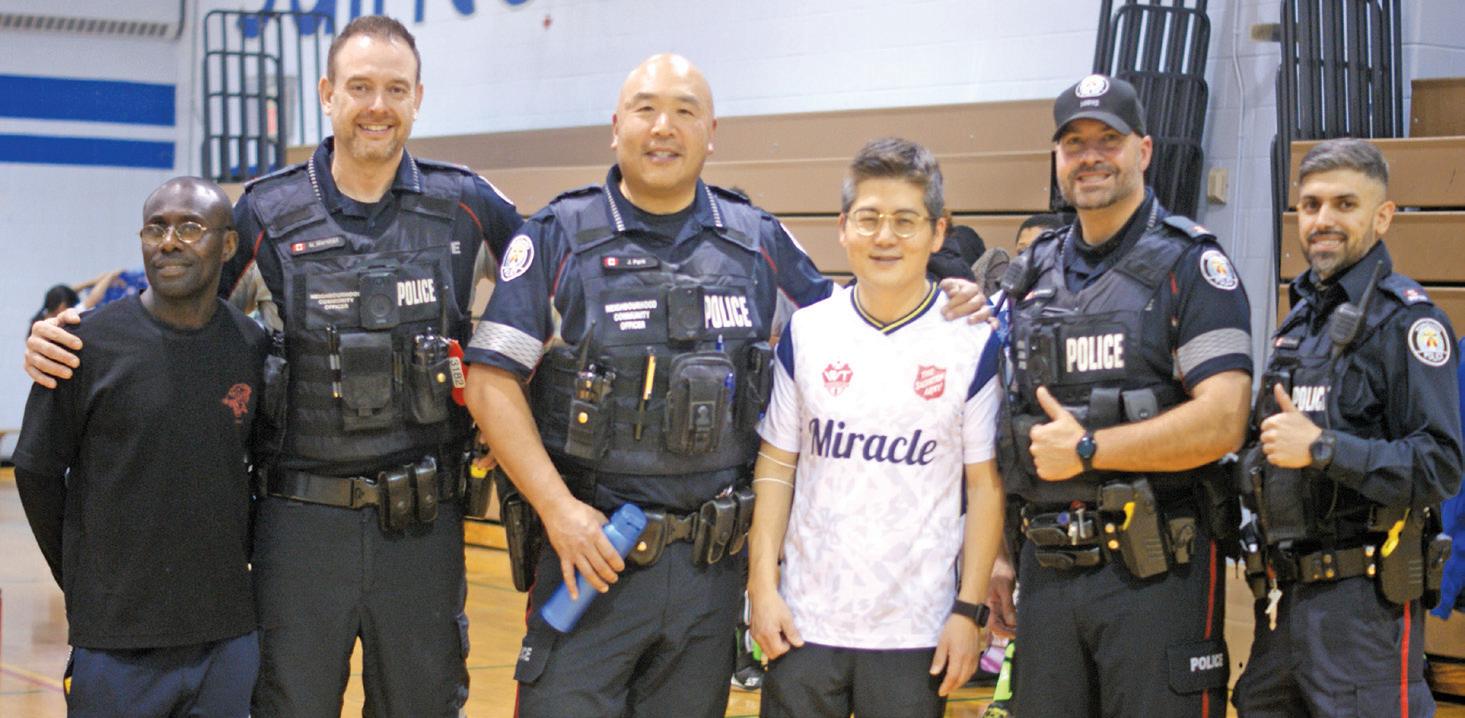
pastor involved in the program through WeTogether has now started attending our corps and is becoming a soldier.”
Members of the Toronto Police Service visit the sports outreach programs regularly to interact with the youth in hopes of building more positive relationships between police and young people in the community. “Often, when these kids encounter the police, it is because of a problem. We hope this program will help us become better friends, make this community better and make a difference,” says Captain Kim.

“We want to be a louder voice in the community. There are good things happening here and it starts with The Salvation Army.”

“We want to be a louder voice in the community. There are good things happening here and it starts with The Salvation Army.”
—Captain Dae-Gun KimCpt Kim gives a lesson to participants before a soccer game
As technology advances, it offers new ways to connect with congregations and reach out to the community. Two key technologies that should be considered are livestreaming and high-quality audio equipment. Livestreaming can extend the reach of the church by allowing members who are unable to attend in person to participate remotely, while good sound quality enables the congregation to fully engage with music and other audio elements. It’s important to have well-trained audio/video (AV) technicians who can operate the equipment effectively, ensure optimal sound quality and provide a seamless streaming experience. Sean Van Gulik, project specialist in the music and arts ministries department, spoke with William Chinnery, multimedia specialist for the Canadian Staff Band (CSB), about how to improve your AV capabilities and avoid common pitfalls.
Can you tell me about your background and experience in AV production?



Ever since I asked for a microphone for my seventh birthday, I’ve been constantly trying to learn more and being in the Salvation Army world has enabled me to gain experience from a young age. It’s been fantastic to grow up in the Army surrounded by people who generously shared their knowledge with me, and around equipment that I would not otherwise have had the opportunity to use. This led me to being one of the members of my corps media team, volunteering at Jackson’s Point Camp, Ont., supporting divisional events, helping Salvation Army recording engineer Ted Marshall with some of his recording projects and, most recently, joining the CSB as their multimedia specialist. Within the CSB, I have livestreamed concerts, produced virtual concerts during the COVID pandemic, and recorded and edited their last two albums. Outside of the Army, I’ve run live sound for musical theatre productions, livestreamed special events, and recorded choirs, orchestras and other groups.
How do you approach setting up before a service?
I start by checking the order of service to make sure there aren’t any surprise tech requirements that I didn’t know about ahead of time (e.g., microphones for soloists, videos to be played, audio playback). After I know what equipment is needed, I plug in any required microphones and monitors, test each microphone individually and balance them with other instruments or voices. If it’s a special service such as Christmas or Easter, or a concert where there may be more livestream viewers, and if I have additional time, I also do a private test livestream for a couple of minutes to confirm there are no internet or audio issues, and that it looks like what I see on the monitor.
How do you work with the church staff and leadership to determine AV needs for special events or programs?
1. We make sure we have tech volunteers scheduled for the event.
2. We ask for the requirements well ahead of time.
3. We try to offer suggestions on how we can help enhance the event. Some options include:
• Create a special livestream welcome screen for the event.
• Add additional volunteers to the team to help split up duties and minimize errors.
• Design a different lighting look for the event (if applicable in your building).
• Rent lights or other equipment if there is a budget.
• Have someone dedicated to responding to livestream chat comments or adding more details about each program item in the livestream chat.
• Try adding other camera angles (camera could be rented or borrowed).


• Add information on each program item to the lower third of the screen.

• Create a pre-meeting/service checklist.
• If you are livestreaming at a new location, plan ahead by investigating where there are network connections, and do internet speed tests ahead of time.
• Arrive early and encourage volunteers to do the same.
• Avoid using microphones with switches on them to give the sound operator full control.
• Try to avoid playing music from a phone, but if you need to, make sure the password is removed and turn the phone on Do Not Disturb.
How to improve the audio/visual production at your corps.
How do you handle inconsistencies in availability and commitment among volunteer AV techs? How do you make sure that volunteers are adequately trained and prepared to fulfil their roles?
For volunteers to stay interested, they need to be comfortable with the equipment and jobs they are volunteering to do. If you are working with an external AV integrator to upgrade your system, make sure they are aware of the level of volunteers. If you are making recommendations to the corps on equipment to purchase, make sure you are confident that this equipment is not only something you will feel comfortable operating, but general volunteers will be able to use, too. More complex and expensive equipment may give better results, but if only a couple of the volunteers know how to use it, it makes it easier for mistakes to happen. In terms of managing the schedule of volunteers, at my corps, Yorkminster Citadel in Toronto, each person is responsible for finding a replacement if they are no longer available to support on a Sunday.
• Create a system start-up training video that walks someone through each step of the process so volunteers can watch it on their own time (e.g., just before the Sunday they volunteer).
• Create a written instructional guide.
• Offer annual training sessions.
• Debrief—if something went wrong in a service, share details afterward on what caused the issue and your thought process when fixing it.
• If you have the capacity, when a volunteer is new, pair them with a more experienced helper for the first few services.
How can audio quality be improved while increasing reliability and without having to spend a lot of money?



If you are in the market for new microphones, consider if wired microphones can be purchased instead of wireless. Wireless microphones offer many benefits when it comes to flexibility, but they also introduce new risks when compared to wired microphones. Batteries need to be purchased and replaced, or they could run out in the middle of a service. Wireless interference issues may appear unexpectedly, or certain wireless systems could become obsolete if wireless frequency allocation rules change in a country. Cost is also a factor. Can you justify spending around four times more per microphone when purchasing wireless? That difference in cost could be used to purchase more microphones, higher-quality microphones or other equipment. Of course, in some applications, a wireless microphone is the only option (e.g., an officer or other speaker who needs to have their hands free and uses a lapel mic).
When it comes to equipment purchasing, if there is a solution on the market with purpose-built hardware instead of software that runs on a computer, I generally go with the purpose-built hardware. You may sacrifice some functionality, but you can avoid issues that come along with having a computer (e.g., unexpected shutdowns, blue screens, forced updates, viruses).
How do you handle unexpected technical issues that may arise during a service?
First, I identify the cause of the issue, then look for quick fixes to minimize the impact. For example, if the corps officer is using a wireless lapel mic and the sound stops in the middle of the sermon, I would first try to switch over to the wired gooseneck pulpit mic immediately or another mic close by. Once the problem is temporarily resolved, I can spend more time trying to understand why the wireless stopped working. Does the mic receiver show it’s connected to the transmitter? Has the battery run out? Is the cable connected to the transmitter worn out? Is there wireless interference?

• Invest in training even the youngest of volunteers who express interest. We need great AV volunteers in our territory, and some of the best audio engineers in the world first learned in a church when they were young.
• If you are the only person operating the sound and livestream controls, prioritize the main front-of-house audio mix.
• Take time to thank and encourage volunteers on your team. If people don’t notice us, usually that means we’ve done a good job.
• Rewatch your livestreams and take notes on what you want to improve (audio or video) so you will remember the next Sunday and can make those adjustments.

• Experiment with different mic and camera positions (adjust presets if you are using a pan tilt zoom system).

• Record locally. Don’t rely on Facebook, YouTube or Vimeo to keep your livestream archive forever. Companies may change video retention policies, copyright infringements in the future may mute or remove videos without notice, companies may go out of business, or you may have an internet outage during a service and want to re-upload the full version later.

• Use this article as a reminder to check if there are firmware upgrades for your equipment. You may just be able to unlock some new functionality!
For more information and resources on all things tech for your corps, visit https://bit.ly/3p7VXaj.
Reprinted from MAGAzine , March 2023.

“Wewant everyone who comes into our building, no matter who they are, to feel welcome,” says Major Darryl Simms, who served as corps officer at St. John’s Citadel, N.L., until his recent appointment as corps officer at North Street Citadel in Hamilton, Bermuda. Part of that welcome is ensuring that the building and its programs and services are accessible and inclusive of everyone. To do this, St. John’s Citadel has developed a set of accessibility objectives as part of their strategic plan.
One of the main objectives, which they call a “theology of welcome,” focuses on creating an environment and a culture
where everyone who comes into the building feels welcome and included. To achieve this goal, St. John’s Citadel has appointed an accessibility champion who serves as the liaison between the congregation and corps leadership, and the corps continues to seek opportunities for innovative programming such as its Deaf ministry and a new sensory room.
For many families with children who experience exceptionalities, attending church services can be challenging. Lindsey Kelly, a congregant at St. John’s Citadel and parent of a child with exceptional needs, is on the program committee at the corps.
When she heard the territorial call for innovation grant proposals in 2021, she pitched her idea for a sensory room—a comfortable and safe space designed for individuals who may be overwhelmed by the sensory input in a traditional worship setting.
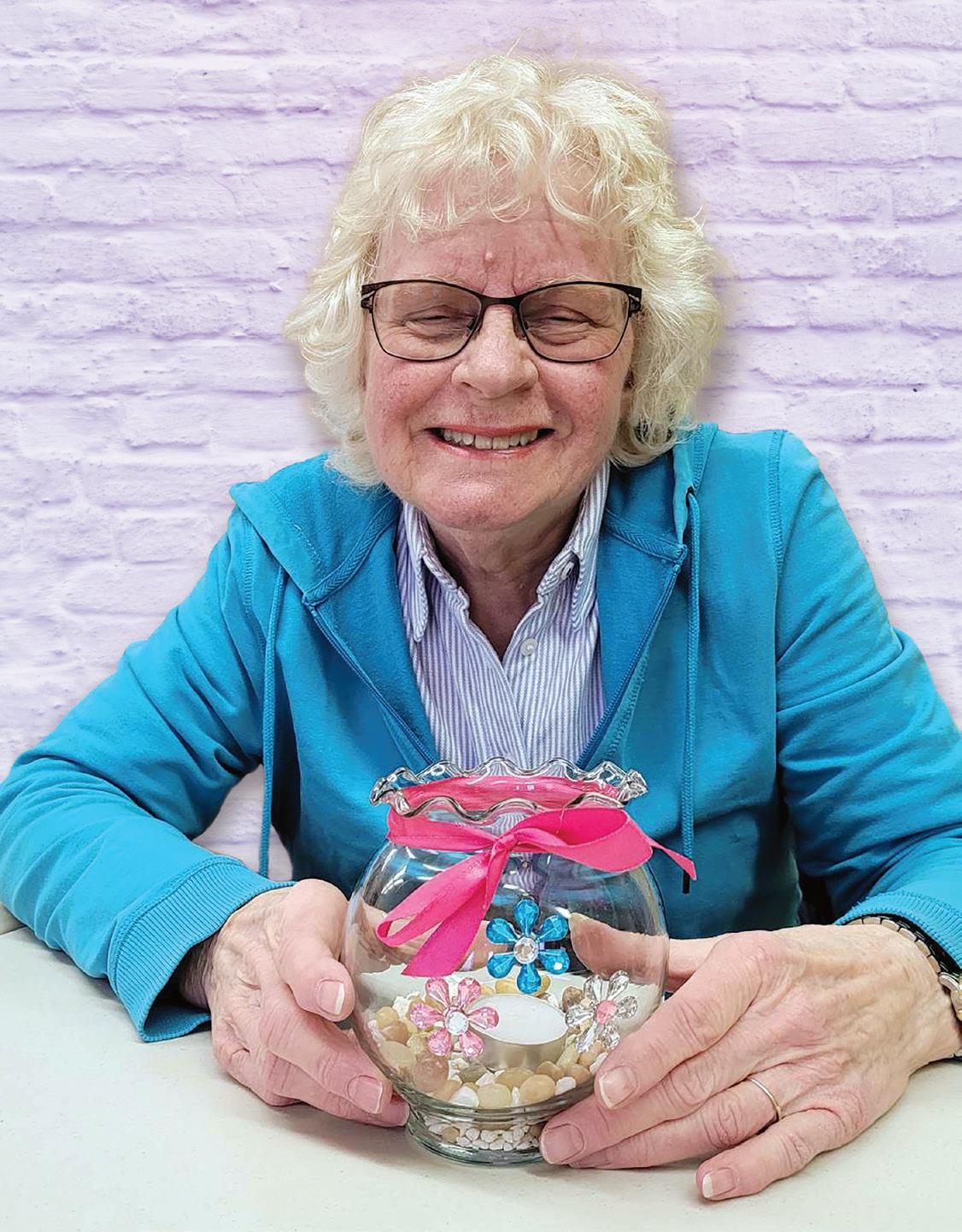
The room has a mixture of engaging and calming features such as a colourful bubble tube, dynamic lighting, a wallmounted fidget board, modular seating, weighted and textured pillows, noisecancelling headphones and a “pea pod,” a seat designed to apply pressure to the body and provide sensory relief. Other modifications were made to the room such as adding a durable foam floor, darkening blinds and rounded-edge baseboards. It is open to everyone through a sign-up process, including congregants, parents and children, or community partners such as occupational therapists who wish to use the room with their clients.
“I hope it will make programs more accessible for families and help bring people into our building throughout the week,” says Kelly. “Parents can come to the church knowing that it is a safe and accepting place for their child.
“We’re addressing a need that is not being addressed otherwise. By having this sensory room at the corps, members of the congregation will be able to see what accessibility looks like for people who have exceptional needs and who may have difficulty navigating a regular Sunday worship service,” continues Kelly. “Everybody is different, and the gospel is for everybody.”
One of St. John’s Citadel’s long-standing commitments to accessibility is its sign language program, which has run for more than 30 years, providing sign language interpretation during Sunday worship services.
Heidi Adams, one of the volunteer interpreters at the corps, has a brother who is deaf. When they were children, her family began attending St. John’s Citadel because they offered sign language ministry, established by Edna Dawe who led the program and interpreted for many years. At the time, no other churches in the area had this type of service available for the Deaf community.
“There is a shortage of sign language interpreters and services for deaf individuals in Canada,” says Adams. She explains that The Salvation Army once had entire branches dedicated to Deaf and blind ministry in Sweden, including Deaf and blind officers, churches and programs. “For officers who were commissioned in the Deaf stream, a lot of their work was serving people in the Deaf community,” she notes. “I am fascinated by the history of Deaf ministry in Sweden, and I would like to see more of that happening across the world and in Canada.”
Many of the youth at St. John’s Citadel have taken an active interest in learning sign language, incorporating it into their worship when they can. “A few months ago, one young woman sang on Sunday morning and one of her friends was able to stand next to her and sign while she was singing,” says Major Simms.
“The Salvation Army has a responsibility to all people, especially the vulnerable and marginalized, to explore how we can embrace and love people who have

“This coming September will mark five years since I moved from Boston back home to Newfoundland and started attending St. John’s Citadel,” says DeFrancesco in an interview facilitated by Adams through ASL. “In Boston, I attended a Catholic church
group. This year, I have also joined our church’s sewing group, Stitched With Love.”
“The welcome that individuals receive when they first come in the door sets the tone for their entire experience,” says Major Simms. “If they feel supported, loved and appreciated, they are more likely to return to the congregation.”
disabilities or are facing barriers. That’s why I am part of The Salvation Army,” says Adams. “We have a special calling to reach out to people who may not have anyone else reaching out to them.”
In addition to sign language interpretation, St. John’s Citadel is part of an ecumenical committee for Deaf ministry that runs a Deaf Bible study and women’s craft group hosted in the building, and Deaf church services for occasions such as Christmas and Easter in various locations across the city. One congregant who is deaf, Emma DeFrancesco, attends the corps most Sundays, as well as events by the ecumenical committee.
that provided ASL interpretation. Here in Newfoundland, my brothers, sisters and extended family go to the Salvation Army church, so I also go to the Army.”
At St. John’s Citadel, DeFrancesco can follow along with the service by watching the sign language interpreter and closedcaptioned videos, and she can understand it clearly. “Without sign language, I sit twiddling my thumbs and can’t understand what’s being said,” she says.
Outside of church, DeFrancesco is involved in Deaf programming supported by St. John’s Citadel and other churches in the community. “Our church participates in the Deaf ecumenical group activities in the city, so I can attend the Deaf Bible study and Deaf ladies craft
The “theology of welcome” is about creating a culture of inclusivity among the people at the corps. As Major Simms notes, the word “inclusion” means nobody is left out. “Scripture encourages us to help one another. So, if we can provide a service or assistance for people to come in and hear the Word of God, then we want to do that.”
This article is the second of a fourpart series on accessibility in the church. Articles will be published monthly, alternating in print and online at Salvationist.ca.

• Learn ASL for free: lifeprint.com
• Check your local association for the Deaf for paid courses or study online: chs.ca/service/ learn-asl
• ASL Bible: deafmissions.com/aslv
“If we can provide a service or assistance for people to come in and hear the Word of God, then we want to do that.”
—Major Darryl Simms
Christians need a newspaper in one hand and a Bible in the other— according to theologian Karl Barth. In our Talking It Over series, James Read invites thoughtful Salvationists from around the world to reflect on moral and ethical issues. Here, he speaks with Roland Stettler about medical assistance in dying.
Roland, could I talk to you about “medical assistance in dying”? As you’re a psychiatrist, psychotherapist and treasured Salvationist friend, I know you will have insights to help my thinking.
A bit of background, first. In 2015, Canadian courts ruled that it was unconstitutional to prohibit all assisted suicide. As a result, in 2016 our federal government passed a law (nicknamed “MAiD”) that permitted physicians and nurse practitioners to “assist” the death of people suffering from an incurable medical condition when they are close to death. That law has been broadened in the intervening years, and advocates are urging that it be widened further.
As a doctor who lives outside Canada, what are your thoughts about this?
—Jim
When I read that death by MAiD had increased tenfold in six years—from 1,000 in 2016 to 10,000 in 2022—I found it incredible. I asked myself, “What is the motivation?” Not only in
particular cases, but in your society, in relation to the understanding of a good process of dying. There doesn’t seem to be an open discussion about dying as the last part of living.
—Roland
I’d like to pick that up later and unpack what you mean, but right now I am interested in your opinion about the latest changes to the law. In 2024, the law is likely to say that people who are suffering grievously and irremediably from a mental illness would be eligible for MAiD. Up to this point, candidates for “medical assistance in dying” have had to have a physiological illness such as incurable cancer or ALS (amyotrophic lateral sclerosis). Those advocating for this next change contend there is no reason to exclude those whose condition is mental illness—their suffering can be just as agonizing and can endure with no end in sight. What is your view?
—Jim
Mental illnesses can undoubtedly cause a great deal of suffering and are, at times, very difficult to bear for those affected. This may understandably lead patients to conclude they would rather die than continue to live like this.

But in comparison to physical illness—and this is a key difference—
it is much more difficult to say that any mental illness is incurable. Hopelessness and lack of perspective are often to be understood as a symptom of the underlying mental illness (classically, depression). Even after suffering for several years, people can recover. In every situation you can have hope. Rather, we have to ask ourselves whether the patient is receiving treatment appropriate to his or her situation. So, as a psychiatrist, I could never predict that a patient’s illness is irremediable.
In addition, there are issues about decision-making. People suffering from a severe mental illness often experience a narrowing of their thinking, so that there are well-founded concerns as to whether their decision to end their life through MAiD can be considered an autonomous decision, and to what extent they are also considered competent in a legal sense. They are not then making decisions that take account of their lives as a whole (which for me is core to the idea of autonomy) but are fixed on the moment presently before them. Perhaps 10 percent have deliberated autonomously and made a “rational suicide,” but who is going to differentiate this and say whether the person seeking assistance in ending their life is among this 10 percent?
—Roland
Canada’s medical assistance in dying law.
Just to be clear, although Canada’s MAiD law is called “assistance in dying,” almost all of those who receive MAiD do not die by their own action—in 99 percent of cases, a physician ends their life for them. For me, this has been a profoundly troubling development. When I wrote my doctoral dissertation at the University of California, Los Angeles, on the moral wrongness of killing patients, I did not imagine that within 30 years health professionals would begin to believe that it was ethical for them to intentionally terminate the life of their patients. It seems to fly in the face of what the medical and nursing professions are for. Yet here we are. How does it feel to you?
—JimI was astonished to learn this. As a doctor, I can’t understand how one could be involved and call it a medical intervention. As you know, we have a law in Switzerland that permits assisted suicide. The person who takes this route does not have to be ill or dying, but they do have to take the lifeending drug on their own. There are difficult situations, but for me there is a difference between assisted suicide and active euthanasia—and it is euthanasia when a doctor purposely gives someone a lethal injection. As a Christian and a doctor, I don’t think that is right and it is not a border I want to cross.
—RolandYou would probably be legally protected in Canada and not obligated to euthanize anyone, but I don’t think that an appeal to Christian beliefs and values carries any weight in Canadian law. God simply doesn’t come into the equation. This means that when The Salvation Army registered its objection to MAiD before it became law in 2016, it needed to make a different kind of argument. It argued for more and better palliative care resources. The Army had several hospices at that time and knew that people who were at the end of their life because of advancing and incurable disease could experience a good death if they were surrounded with nurses, doctors, spiritual-care providers and others who knew how to care when they could not cure.
It had been found that people who asked for their life to be ended frequently were fearing loss of
dignity more than excruciating pain or other intractable symptoms.
—Jim
Although we cannot lose our Godgiven dignity, people have deep in their brains the idea that they can. This idea, though false, can be reinforced by the way others regard them. Others can treat people (those who are sick, dying or disabled, for instance) in an undignified fashion—not respecting them, not validating their worth. People who live with disabilities, experiencing this disrespect, may feel indirect pressure to seek MAiD
—Roland
connected with others, even with others in our family. We are alone. This way of thinking poses a special risk for those who are not used to being dependent on others, especially women. They may think that by choosing MAiD, I am being empathetic; I won’t be a burden. I think this could explain the stories I was reading of Canadians seeking MAiD because they couldn’t find housing suitable for their needs, and those wanting MAiD because the medications for their illness are too expensive.
As a Christian community, are we any different? Have we, too, lost a sense of solidarity? We are taught that we must be genuinely interested in our neighbour. Christianity teaches that no one should have the sense that they are all on their own, and no one should live with the sense that they are a burden. But is that the way we actually live?
—Roland
This brings us back to the question you raised at the beginning, whether there was an open discussion in Canada about what constitutes a good dying process. Many would say that a good dying process is self-directed—the individual remains in ultimate control and death is painlessly provided at the time of their choosing by a doctor willing to comply with their request.
As you know, I am married to a nurse who has specialized in palliative care, and her experience is that it takes time and resources to explore what it means to preserve the dignity of a person who is at the end of their life. When people are given this opportunity, however, amazingly good things can happen, and not only for the person who is dying. The social family is incorporated into good palliative care. So, even if suffering persists, when death occurs, it is a death that is good not only for the one who dies but for the family, too.
MAiD cuts in a different direction and presents dying as purely an individual matter. The law requires the uncoerced consent of the person seeking MAiD, and no one else. Family don’t need to be consulted; they don’t even need to be informed.
—Jim
I think that makes sense to those of us who live in and are shaped by a hyperindividualized society. The ideal in such societies is that we are not deeply
I would also say that, although this attitude feels at odds with Christian values, there is little talk in church about a better alternative. We need to resurrect an old tradition and learn a “Christian art of dying” (as professor of theological ethics Allen Verhey titled a book). What would go into it would be complex—I am not imagining another territorial program—but it would be a worthwhile topic for another conversation, wouldn’t it? Meanwhile, the deeply Christian words of the poet John Donne echo in my ears: “Never send to know for whom the bell tolls; it tolls for thee…. No man is an island, entire of itself; every man is a piece of the continent, a part of the main.”
—JimDr. James Read, OF, was the executive director of The Salvation Army’s Ethics Centre for many years and served as chair of the International Moral and Social Issues Council. Now retired, he attends Heritage Park Temple in Winnipeg. Dr. Roland Stettler is the corps sergeant-major at Basel Corps in Switzerland.
Christianity teaches that no one should have the sense that they are all on their own, and no one should live with the sense that they are a burden.
General Albert Orsborn was the sixth international leader of The Salvation Army. He lived through the devastation of the Second World War in England: the air raids, shelters, bombings, death and destruction. In 1947, General Orsborn held meetings in Berlin. He saw the devastation that the war had brought to that city and was overwhelmed with emotion. Only two years earlier, these people were seen as the enemy, but now his heart was broken by their plight.
He later wrote, “I cried to God to help me, in my own spirit and to let his Spirit work within us all, to bring us together, to bridge what seemed to be, in all reason, an impassable gulf between our respective conditions of living … God revealed to me that not only that day, but always, we have no hope of being a blessing to other souls unless our lives become a part of the Saviour’s sacramental consecration.” Before he left Berlin, he began to write the song My Life Must Be Christ’s Broken Bread (SASB 610). This song is the loving expression of sacramental living in service to others.
General Orsborn’s revelation occurred 70 years ago, and we are still called to sacramental service. In this series, we have been reflecting on living sacramentally in light of themes from the Gospel of John. Here, we consider what it means to bear witness to the life-transforming gospel embodied by Jesus. One biblical example of a witness is Mary Magdalene (see John 20). She encountered the risen Lord and was the first to share that message with others.
In John’s Gospel, three people went to the empty tomb and had three different reactions. Mary arrived at the tomb early in the morning. She discovered that the stone had been rolled away from the entrance. Mary knew that something was wrong and ran to tell the disciples (Peter and John, the beloved disciple). At that time, Mary did not believe that anything supernatural had occurred.

Peter and the disciple Jesus loved ran to the tomb and examined the rolled-away stone and the strips of linen, and then returned to the place they were staying. The Bible records, “They still did not understand from Scripture that Jesus had to rise from the dead” (John 20:9). The evidence of the empty tomb did not lead to a full understanding of the Resurrection.
In John’s Gospel, we are presented with three different reactions to the empty tomb. Information about the tomb or about Jesus does not change a person. What is important in John’s Gospel is not information, but an encounter.
As the biblical account continues to unfold, we are again with Mary Magdalene outside the tomb, and she is crying. Mary first encounters the angels, and she repeats the story she has told the disciples. “They have taken my Lord away, and I don’t know where they have put him” (John 20:13).
Mary next encounters Jesus and, at first, does not recognize him. She believes that Jesus must be the gardener. It is when Jesus calls her by name that Mary finally recognizes him. Mary has a personal encounter, and she believes.
After Mary responds, Jesus commissions her to go and be a witness. She went to the disciples with the news, “I have seen the Lord!” and tells them what Jesus had said: “I am ascending to my Father and your Father, to my God and your God”
(John 20:17). The good news is that we are also called to be part of the life-giving, abundantly loving family of God.
In Simply Good News, N.T. Wright states we are called not to give good advice, but good news: “The good news of Jesus is there not only to remind us of it but to transform us with it so that we, in turn, may become transformative people.”
By living sacramentally through the power of the Spirit, we display the transformative love and new life that we have in Jesus. By doing this, we offer an opportunity for others to have a similar lifechanging, grace-filled encounter.
For General Orsborn, it was living sacramentally on behalf of the war-torn people of Berlin. For us, it is living sacramentally for our families and neighbours, for refugees, the poor and those who feel discarded and unloved. It is more than helping them; it is witnessing to them of the life-giving relationship that can be found in Jesus.
With Mary, let us all say out loud, by our sacramental lives, “We have seen the Lord.”
This is the final article in a five-part series on sacramental living.
We are called to bear witness to the life-transforming gospel.
BY MAJOR STEVEN CAMERON
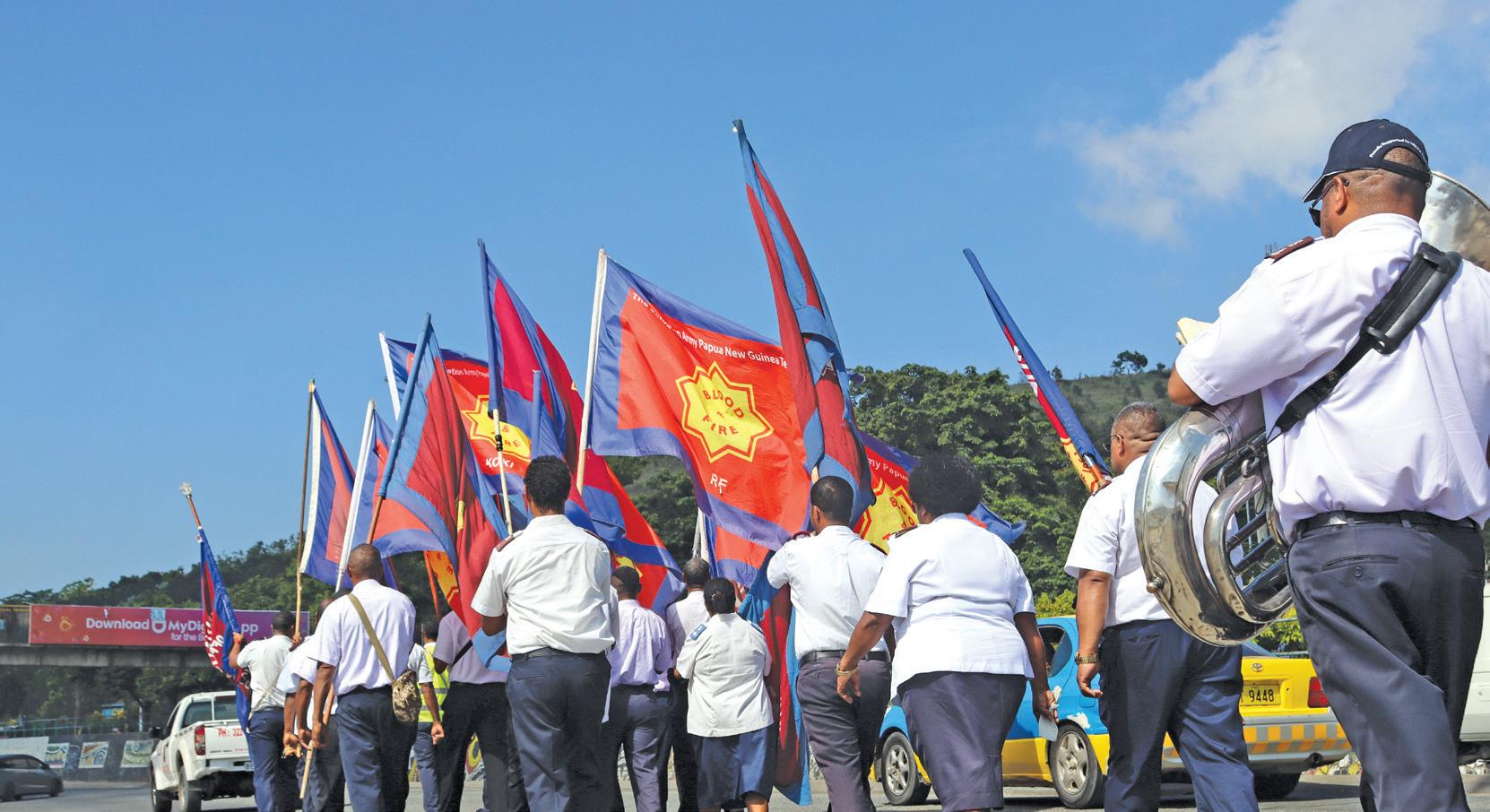
What role are you willing to play in advancing the mission?
BY LT-COLONEL LES MARSHALLIn the early years of The Salvation Army, William James Pearson penned the hymn, Come, Join Our Army, to Battle We Go (SASB 949), calling us to action and inspiring us to fight for what’s right, to stay true to our colours and to be valiant and strong soldiers of Jesus.
Today, we are still marching along while responding to the reality of a global pandemic and retooling and restructuring to be more effective than ever before. I am sure you have found yourself thinking about our movement—where we have been, where we are and where we are heading. In our territory, we have been developing a new strategic plan and working out what this means and what changes are needed.
Change. For some, embracing change is incredibly tough; for others—the more change, the better! Statistics say that 20 percent of people are early adopters who love new ideas, 50 percent are willing to change after the benefits are proven, and the remaining 30 percent have difficulty adjusting.
Of course, our age and experiences also influence how we perceive change, and this holds true for Salvationists as well. In recent years, it feels like change has been never-ending, but is this really a new phenomenon in our movement? If you research our history, you will quickly discover that finding new and innovative ways to advance the mission and lead people to Christ is in our DNA. Our movement was not founded on tradition; it was a “salvation” army that was to be a Christcentred, others-focused expression of faith.
It has been 158 years since our movement began, and I find myself wondering—even questioning—whether we are still focused on the dreams and visions birthed by our Founders, William and Catherine Booth, or have we stalled out along the way? I must confess that I am occasionally a little worried about the future of our movement, wondering if we have been wandering, instead of staying “true to our colours.” I’m concerned about our relevancy in a world that appears to be lost,
that needs to hear about Jesus’ love more than ever before. Are you concerned that we have dropped the ball, knowing what the world needs? To quote a song by General John Gowans: “They need you, they need me, they need Christ” (SASB 935).
Our territorial commander recently reminded us that we were founded as a movement, and have always been a movement, not just an organization. By definition, a movement can’t ever stand still. We need to respond to the evolving changes and conditions around us and ensure we are doing our best to fulfil our mission to share the love of Jesus, meet human needs and be a transforming influence in the communities of our world. We must never lose sight of the fact that our Salvation Army is called to be a Christ-centred, others-focused movement.
At the 2023 INSPIRE Conference and Congress, we were re-energized for mission as we learned from each other and shared innovative ideas. The musical Skeleton Army reminded us of our history of persevering through persecution as we “fought for what was right” and stayed “true to our colours.” General Brian Peddle urged us forward as we marched through the streets of downtown Toronto, ministering to our immediate neighbours.
I am part of The Salvation Army not only because God never gave up on me, but also because many others believed in me. Through my calling, I choose to be part of this mission that works tirelessly to transform lives, share hope where there is hardship and build communities that are just and know the love of Jesus.
What role are you willing to play in advancing the mission? How will you embrace the changes and be Christ-centred and others-focused? Are you willing to fight for what’s right? To press through the throng? “Soldiers of Jesus, be valiant and strong; The Salvation Army is marching along.”
At the beginning of 2023, I was ready and determined to live in the valleys of life well. By “valleys,” I mean those moments when things are hard, when plans fall through or you are just plain tired of pushing through life. I wanted to live as well in those moments as I do in the mountaintop moments. I wanted to be the person who wasn’t afraid of the hard stuff of life, who praised God anyway and who taught her family to do the same.
Well, God heard my proclamation—maybe even smiled a little at my overconfidence—and was ready to help me learn. Because early in 2023, we found ourselves in the lowest valley we have ever been in. Ever.
We found a lump on our eight-year-old, Maverick. That lump changed everything.
Blood tests, X-rays, ultrasounds, visits to the doctor. For four months, we found ourselves either getting a test or waiting for the results of a test. But the biggest test was how we were going to live in this valley and who we were going to be when God brought us out.
Maverick is my first born. He is so full of life—he knows so many useless facts, is an excellent drummer and an even better big brother. He made me a mommy and helped me become the person I am today.
I know God is good no matter what. I also know, deeply, that trials and bad things happen because we live in a fallen world. But when we were pressed, I discovered what I really believed—that there was absolutely no way God would give my baby a horrible disease or even take him from me.
My theology was flawed, my beliefs were messed up and I was not living in the valley well.
It wasn’t until my husband, Daniel, and I were talking about the next scheduled test while at our Hope Company Café dropin program, that I realized just how flawed my thinking was. He shared a dream he’d had where Maverick was walking beside Jesus and telling him all about his Pokémon cards. And at that moment, I realized that these kids—who I would give my own life to save—were not actually mine at all.
I realized that every single one of my goals would be accomplished by that dream coming true—my son hand in hand with his Saviour, meeting his creator and playing drums for heaven’s worship team. Because that’s it. That’s the purpose of parenting. To point my kids to Jesus and teach them to bring along as many people as possible to the kingdom.
Four days before Easter, we received a call from our doctor, who was thrilled to tears to finally tell us that it was not what we expected and feared. Maverick was OK. All was well in the world again.

But that lump still changed everything. It taught me to live every day with one foot in heaven and one here on earth, in that tension of “mine” but “not mine.” It made me refocus on the things that matter. It gave me more confidence in the things of the kingdom.
God feels bigger, bike rides feel sweeter, prayers are deeper. The biggest thing it has changed is this—every time we get into a conversation about one of our kids, the first question we ask is: Does this matter to the kingdom? If the answer is yes, then we deal with it and adjust right away. There is an urgency to kingdom things because Jesus is coming again.
If the answer is no, then we take a deep breath, put our full trust in God and let it slide. Because what our kids wear to church, what grades they get, how many sports teams they are on, how many friends they have, if they can play an instrument—none of that matters to Jesus. How much we progress in our careers; if we receive praise or money or prestige—none of that matters to the kingdom.
Whatever valley you are in or lump you may find, never, ever let it take your eyes off the goal: to point your kids to Jesus and teach them to bring along as many people as possible to the kingdom. No matter what the cost. Bring on the next valley.
 REVIEW BY ANDREW WAINWRIGHT
REVIEW BY ANDREW WAINWRIGHT
Among many Salvationists, the name Kenneth Downie is synonymous with brass and choral music. However, Downie has recently explored uncharted territory, arranging an entire album of music for symphony orchestra. Classic Hymns for Orchestra: The Symphonic Music of Kenneth Downie features 15 much-loved tunes that have been given imaginative and highly creative treatments.
Ranging from soothing and majestic to bold and sprightly, each hymn has been mixed using state-of-the-art sample libraries from musicians such as the BBC Symphony Orchestra and the renowned Estonian Philharmonic Chamber Choir, and the iconic sounds of the Royal Albert Hall organ. The album features Tom Hutchinson, principal cornet of Cory Band, the world’s numberone ranked brass band, and Susanne Dymott, a professional mezzo-soprano and former member of the International Staff Songsters. Their innate sense of phrasing and musicality shines through in Come Home! and To Walk With God respectively, which are beautifully complemented by solo strings and piano.
The album offers much variety, from the brassy fanfare of Now Thank We All Our God through to the more contemplative Lathbury, Sweet Hour of Prayer and He Hideth My Soul. There
are also foot-tapping numbers such as Count Your Blessings and Ring the Bells of Heaven. Meanwhile, one can’t help but be transported to a vast cathedral with the majestic sounds of Cwm Rhondda, Regent Square and Welcome Home.
Classic Hymns for Orchestra may be appealing to Salvationists because it can be used in a variety of settings. As well as personal listening, these songs could be used in corps as preliminary or offertory music, and such is the format of many of the arrangements, also as congregational accompaniments. This could be particularly useful for corps that don’t have live music.
The trademark Downie sound and harmonic language is certainly evident throughout this album, and whether it is played for personal listening or congregational worship, this unique recording will be a must-have for every Salvationist’s music collection.
Classic Hymns for Orchestra is available to purchase as a hard copy or digital download from brookwrightmusic.com or by contacting kennethfdownie@gmail.com.
Astudy by worshipleaderresearch.com analyzed the top worship songs from 2010 to 2020, revealing that a small number of megachurches and affiliated artists are responsible for most of the popular worship music we listen to today. Out of the 38 songs that appeared on the top charts, 37 were either co-written or popularized by just a handful of megachurches—and a lot of the worship music heard at church might sound the same because of it.
Over the course of a decade, most chart-topping songs were associated with four groups: Bethel, Hillsong, Elevation and Passion, and songwriters who are connected to these groups such as Chris Tomlin and Matt Redman.
The report quotes Christian theologian Gordon D. Fee, who stated, “Show me a church’s songs and I’ll show you their theology.” These findings are the first step in exploring the theological impact of these megachurch influences and how they have come to shape the music repertoire of Christian worship.
“This also confirms the anecdotal fears of many local church songwriters,” the report states. “It seems a song written and created without the eventual support of these specific churches would not easily gain widespread popularity.”
This study may be of interest to songwriters, musicians, Salvationists involved in music ministry and those who lead worship at their corps.
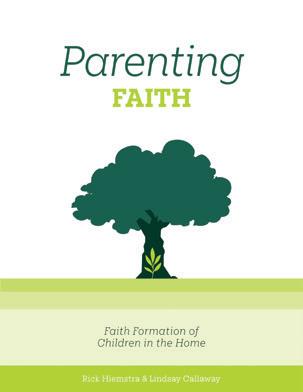
Arecent report by the Evangelical Fellowship of Canada (EFC), a mission partner of The Salvation Army in Canada and Bermuda, studies the question, “How do we help parents form faith in their children at home?” Parenting Faith, with research conducted by the EFC Centre for Research on Church and Faith, presents findings from interviews with family ministry experts and surveys from more than 1,200 Canadian parents. The report examines factors that contribute to the transmission— or rejection—of faith from one generation to the next. “Parenting Faith identifies both gaps and opportunities for churches, ministry organizations and parents to help us all better guide youth into a life of following Jesus and meaningful participation in the church,” says Rick Hiemstra, lead researcher.
Most parents agreed that they take a different approach to faith formation in their kids than their own parents did, with methods such as creating open dialogue, having conversations about religion and choosing to model faith over teaching or prescribing it. Of the parents surveyed, 99 percent said that teaching and modelling their own faith is integral to the formation of faith in their kids, and 73 percent believe it is essential to offer religious choice without pressure. They also considered the church a partner in the spiritual development of their children and a valuable source for Christian socialization.
To download and read this resource, visit evangelicalfellowship.ca/ parentingfaith
TORONTO—Agincourt CC enrols 10 junior soldiers, two senior soldiers and one adherent on Easter Sunday. Front, from left, Cpt Cathy Allen, CO; Oreoluwa Elizabeth Adeosun, junior soldier; Oluwafunmilola Mercy Ahmiegbe, senior soldier, with her son, Judah; Gideon Sharp, Godson Akobumdu-Festus, Jesse Wilson, Ifeoluwa Wilhelmina Adeosun (Esther) and Gabriella Akobumdu-Festus, junior soldiers; Mjr Catherine Skillin; and Lori Adams, adherent. Middle, from left, CSM Norman Robertson, holding the flag; Daniella Akobumdu-Festus, Emmanuel Law-Ahmiegbe, Deborah Law-Ahmiegbe and Emanuella Akobumdu-Festus, junior soldiers; Tina Manuel; Ellen Craggs; and Cpt Scott Allen, CO. Back, from left, YPSM Bella Diffey and David Law-Ahmiegbe, senior soldier.
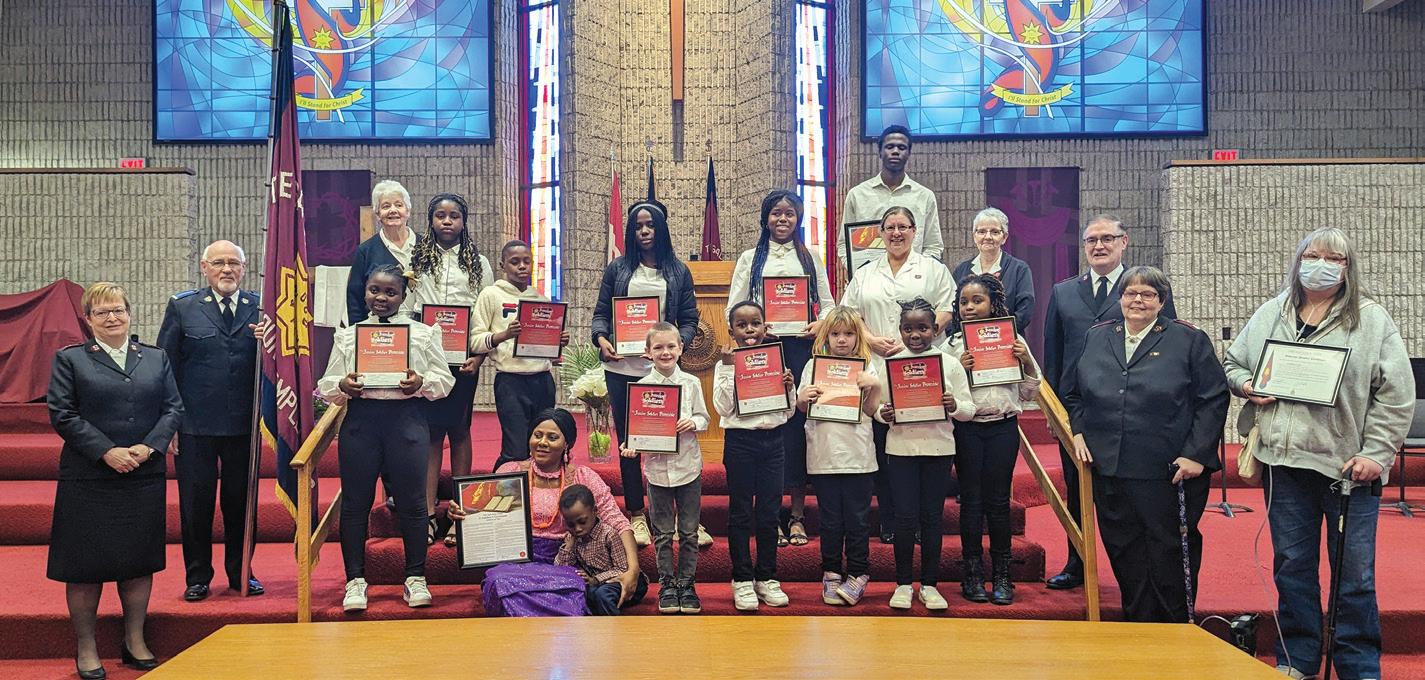

COLLINGWOOD, ONT.—Ed Ostermeier is commissioned as CSM at Collingwood CC. From left, Cpt Rob Hardy, then CO; Ed Ostermeier; and Cpt Micheline Hardy, then CO, holding the flag.
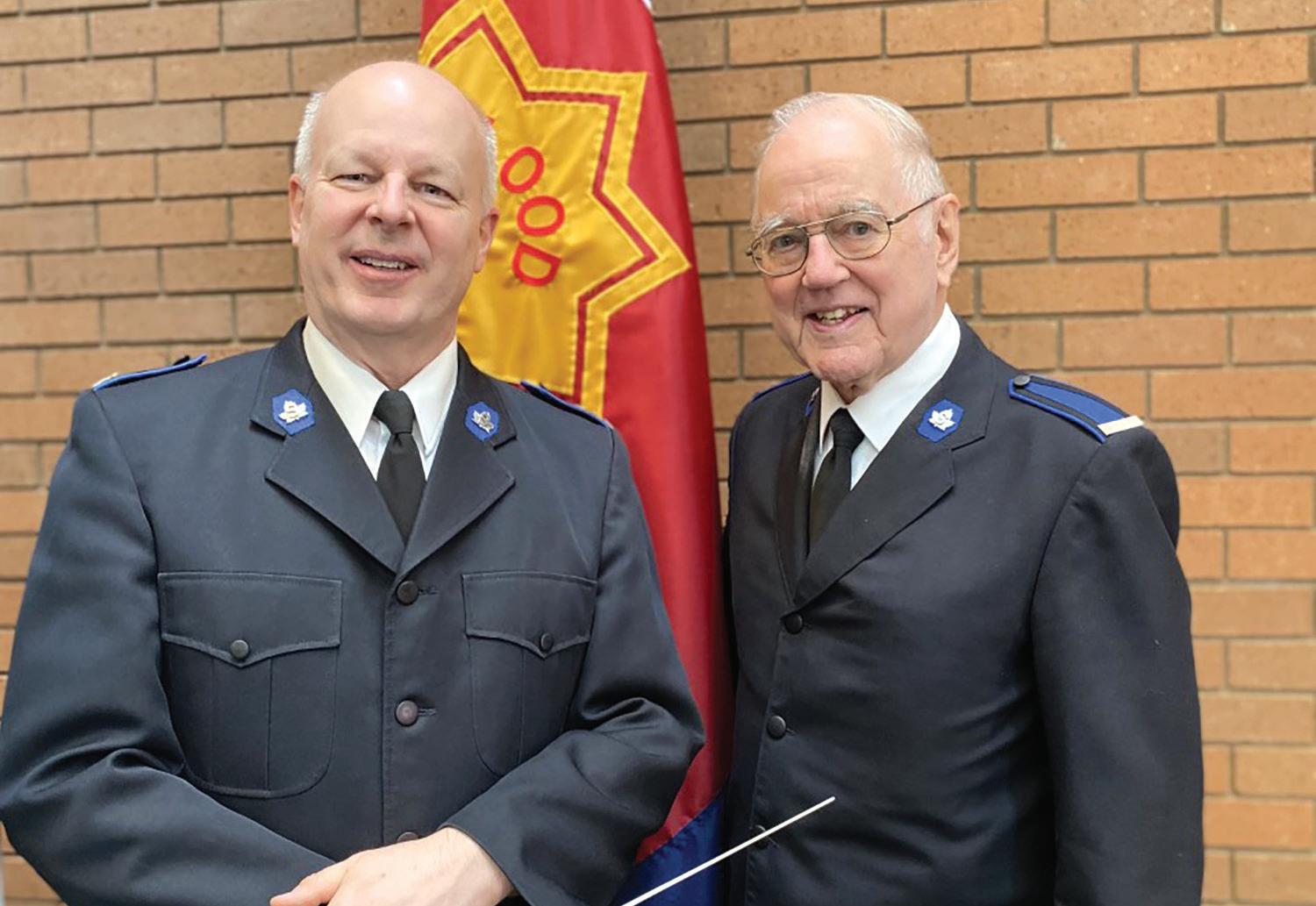
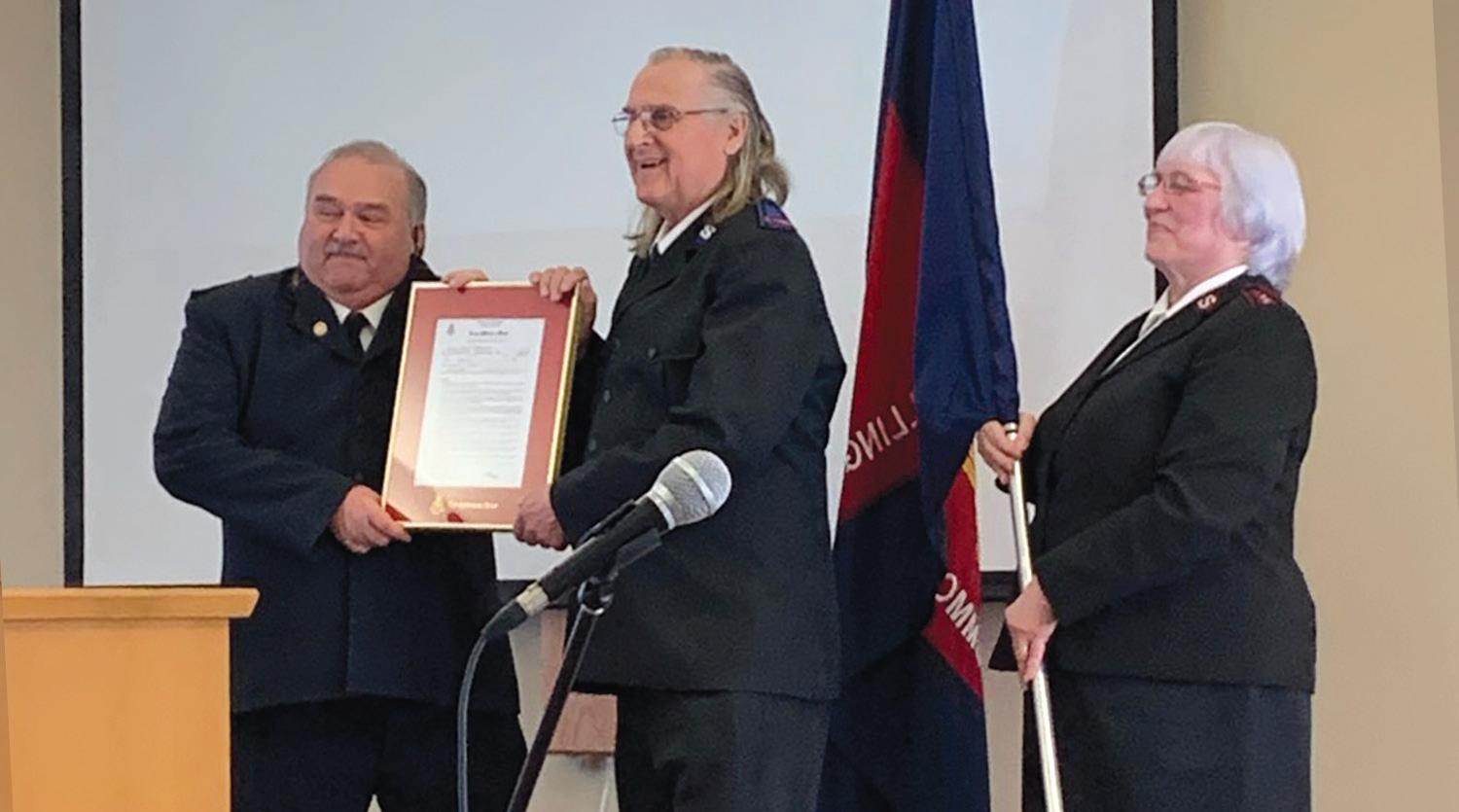
BURNABY, B.C.—Cariboo Hill Temple recognizes and thanks Jack Gillingham, the longest-serving member of the band, who retired in 2022 after 70 years of service. Jack joined the then Vancouver Temple Band in 1952 and remained steadfast in his commitment through countless Sunday services, marches and open-air meetings, nearly 40 band trips and eight bandmasters. From left, BM David Mills and Jack Gillingham.
WINNIPEG—Audrey Simpson celebrates her 100th birthday at a special gathering of family and friends at Heritage Park Temple in March. The wife of a bandmaster, Audrey has been a soldier in The Salvation Army for nearly 75 years, faithfully serving in Manitoba as a songster and home league secretary.
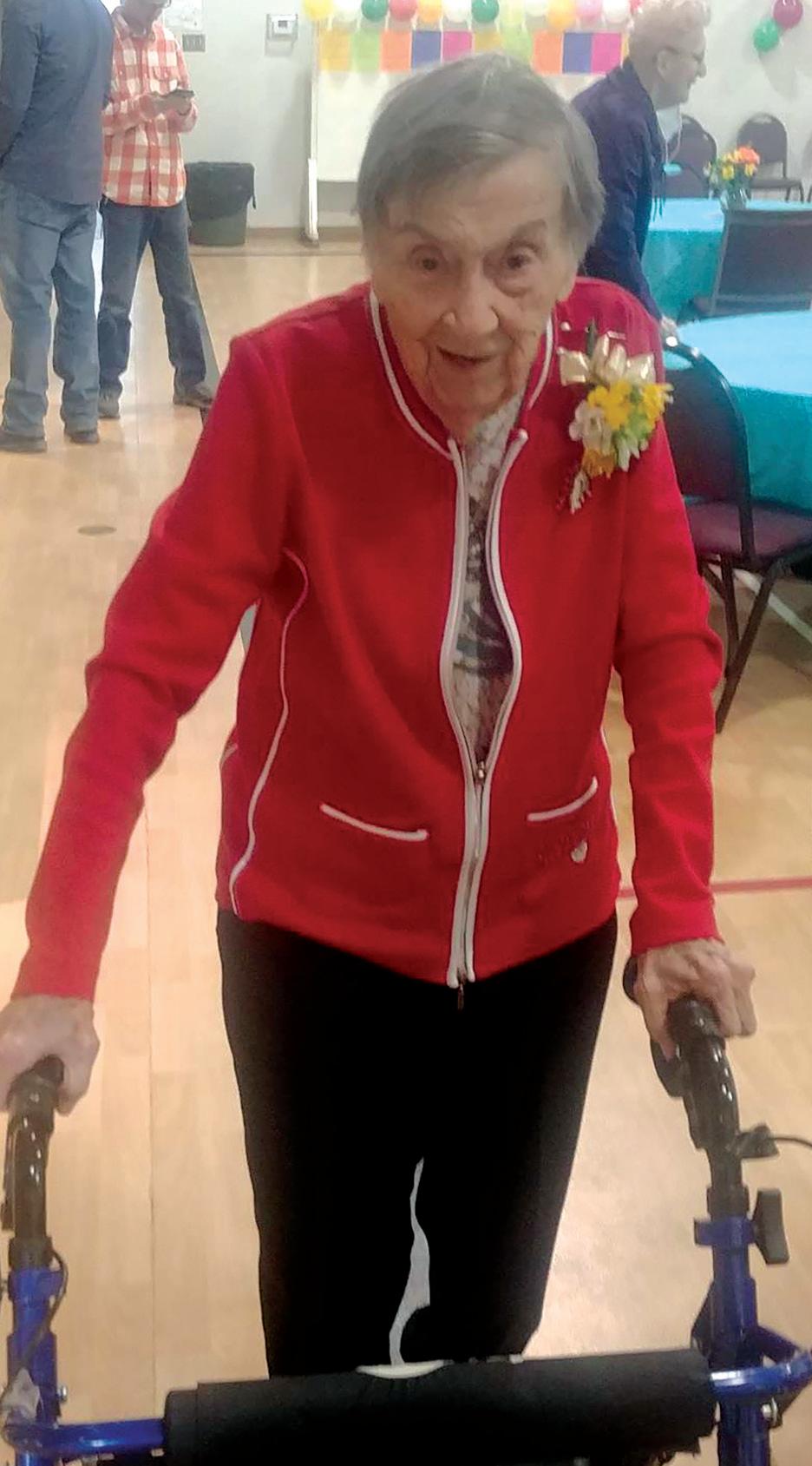
Lt-Colonels Fred and Wendy Waters retire July 1 following 40 years of faithful service as Salvation Army officers. The world of 1983, when they began their officership, was radically different from the one into which they will retire. Much has changed in ministry and mission but what has not changed is the deep need of people for salvation. “People need purpose in life,” Lt-Colonels Waters say, “and they need freedom from slavery to sin.” As corps officers, divisional youth leaders and in divisional and territorial appointments they have maintained the belief that while methods must change, the mission objective does not. “We celebrate the great people we have partnered with in our 40 years,” they conclude, “and thank God for his calling in our lives and the opportunity to serve through The Salvation Army.”
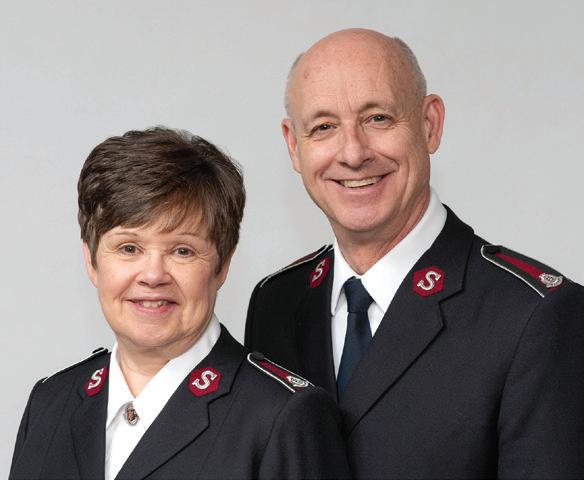
CAMBRIDGE, ONT.—Major Harvey Canning was born in Bridgeport, N.L. He entered the College for Officer Training in St. John’s, N.L., in June 1967, and was commissioned as an officer in the Evangelists Session in 1969. Harvey and his wife, Doreen, served in 15 Salvation Army appointments including at the training college, and as corps officers and chaplains in Newfoundland and Labrador, Nova Scotia, Ontario and Alberta. Together they completed 42 years as active officers. Following his retirement in 2009, Harvey served as co-ordinator of the Christmas kettle campaign for 12 years in Cambridge, Ont., as chaplain for the Korean Veterans Association of Canada Unit 13 and was actively involved in pastoral care at Cambridge Citadel. Harvey’s ministry was always focused on others and showing people the love of Jesus, ministering as a true evangelist. Harvey is missed by his loving wife of 52 years, Doreen; children Todd, Trent (Christa) and Trinette Canning; grandchildren Katelyn, Kyle and Kassie Mae; siblings Gilbert (Lyda) Canning, Clifford (Shirley) Canning, Tony (Glennys) Canning, Major Maxine (Woodrow) Boyde, Major Edward Canning, Leona Mills and Rosena (Grant) Philpott; many nieces and nephews.
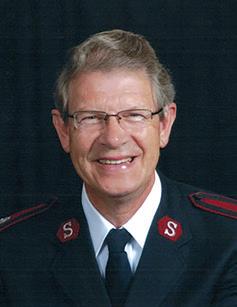
Appointments: Lt-Cols Vanlalnungi/Zothanmawia, TSWM/CS, India Western Tty; Mjrs Chaya/Gabriel Dewri, TSWM/CS, Bangladesh Tty; Jul 1—Mjrs Andrews/Sunita Christian, CS/TSWM, India Northern Tty, with rank of lt-col; Mjr Saga Lippo, TC/TPWM, Finland and Estonia Tty, with rank of lt-col; Mjrs Anna/David Kotrikadze, TSWM/CS, Finland and Estonia Tty; Aug 1—Col Evie Diaz, TC, U.S.A. Central Tty, with rank of comr; Lt-Cols John/Lani Chamness, CS/TSWM, Canada and Bermuda Tty, with rank of col TERRITORIAL
TORONTO—Eight senior soldiers are enrolled at Scarborough Citadel. Front, from left, Cpt Johnny Valencia, CO; Avni Christian and Ella Bao, senior soldiers. Middle, from left, Ashish Dabhi and Angelita Soberano, senior soldiers; Cpt Carolina Valencia, CO; and Samuel Rajan, senior soldier. Back, from left, Jacky Wang, senior soldier; Mary Milne, holding the flag; Gary Rose and Marina Catapang, senior soldiers.
Birth: Lts Julia/Zachary Marshall, son, Elias Charles John Marshall, Mar 13
Appointments: Mjr Rick Zelinsky, territorial EDS director, THQ (additional responsibility); Lt Danielle Feltham, CO, Hanover, Ont. Div; Lt Tamara Randlesome, CO, Boundless Vancouver, B.C. Div; Jul 1—Lt-Col Brian Venables, DC, Alta. & N.T. Div (pro tem); Mjr Everett Barrow, DC, Maritime Div (pro tem); Mjr Cathy Simms, AC, with responsibilities as DC (pro tem until Dec 31), Bermuda Div; Jan 1—Lt-Col Brian Armstrong, DC, Prairie and Alta. & N.T. Div; Lt-Col Lynn Armstrong, DDWM/divisional secretary for officer personnel, Prairie and Alta. & N.T. Div; Lt-Col Sandra Stokes, DC, Que., Maritime, Bermuda and N.L. Div; Mjr Mélisa Tardif, AC, Que. Region
Retirements: Jul 1—Lt-Col Sandra Rice; Mjrs Linda/Wade Budgell; Mjrs Brian/Deb Coles; Mjr Sharon Hayward; Mjrs Darlene/Wilson Sutton; Cpts Micheline/Rob Hardy; Aug 1—General Brian/Comr Rosalie Peddle; Lt-Cols Fred/Wendy Waters
Promoted to glory: Mjr Roy Nurse, Mar 3; Mjr Eleanor Perry, Mar 3; Mjr Lillian Trueman, Mar 14; Mrs. Lt-Col Verna Hammond, Mar 20; Mjr Aubrey Barfoot, Apr 2; Mjr Harvey Canning, Apr 6; Mjr Robert McMeechan, Apr 11; Mjr Douglas Speakman, Apr 11; Mjr Shirley Pavey, Apr 17; Mjr Warrick Pilgrim, Apr 29
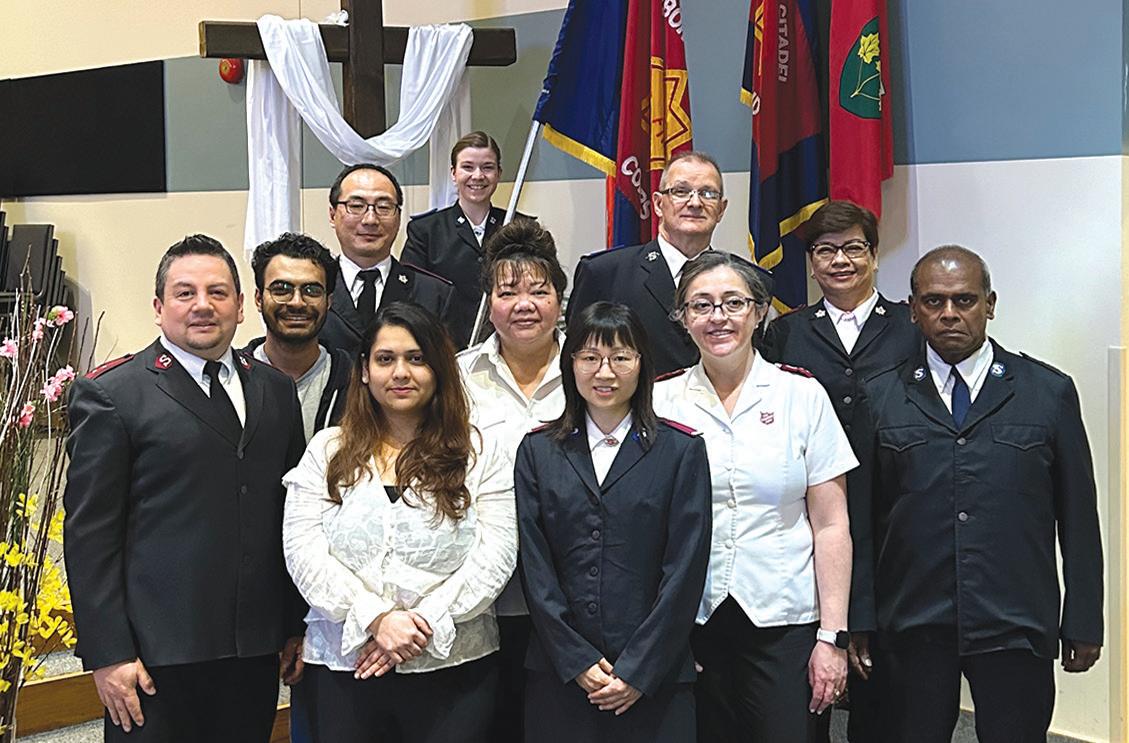
Commissioners Floyd and Tracey Tidd: Jul 29-Aug 1 Old Orchard Beach, Maine, U.S.A. Eastern Tty; Aug 27 Territorial Music School, Guelph, Ont.
ST. THOMAS, ONT.—St. Thomas Corps enrols eight junior soldiers on Easter Sunday, gifting each of them their own Bible. Front, from left, Nicholas Wilson, Evie-Joy Boyd, Charlotte Boldt and Noelle LaFrance, junior soldiers. Middle, from left, Sofia Leone, junior soldier; Ruth-Anne Payler; Aiden Boyd, Alex Faulkner and Max Boldt, junior soldiers; and Cpt Jon Savage, CO. Back, Al Mintz, holding the flag.
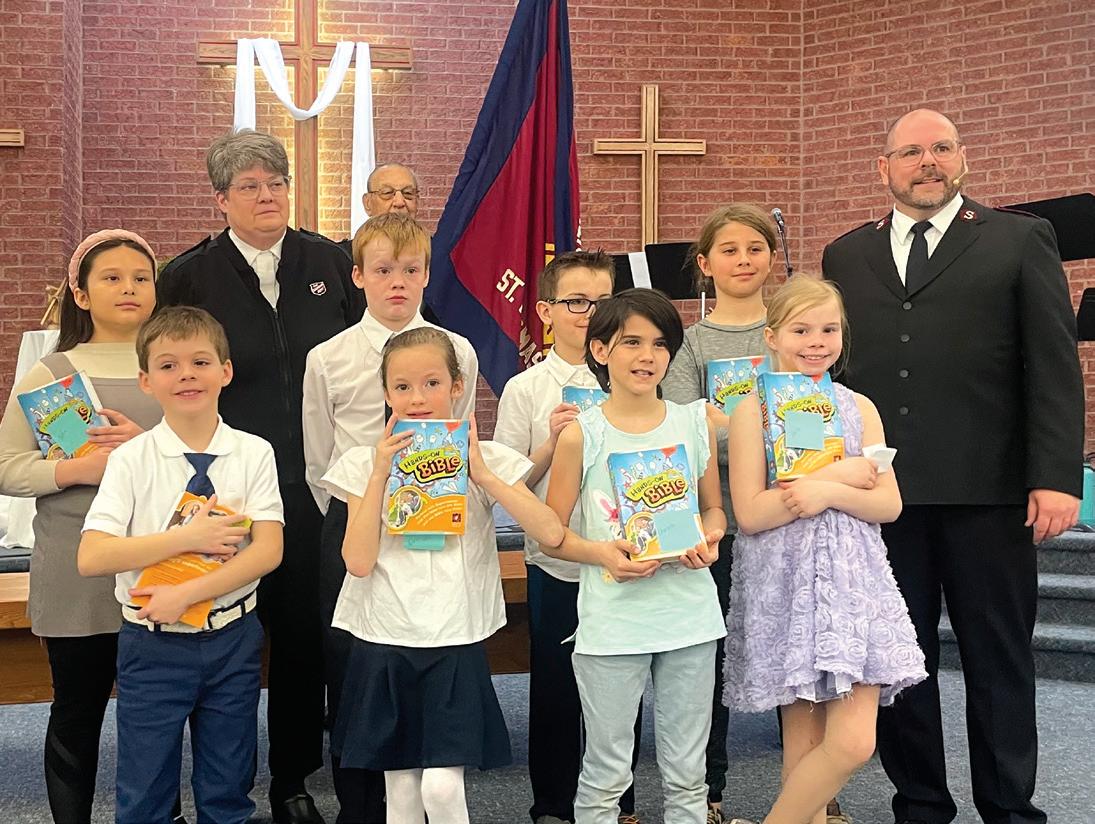
Canadian Staff Band: Jul 19-30 South America
Canadian Staff Songsters: Jul 27-Aug 3 Old Orchard Beach, Maine, U.S.A. Eastern Tty
“Whenyou are considering a life in The Salvation Army, you have to be sure it’s a calling,” says Captain Mike Mailman, who, with his wife, Captain Melissa Mailman, is in charge of The Salvation Army in Wetaskiwin, Alta., he as corps officer and she as community ministries officer.
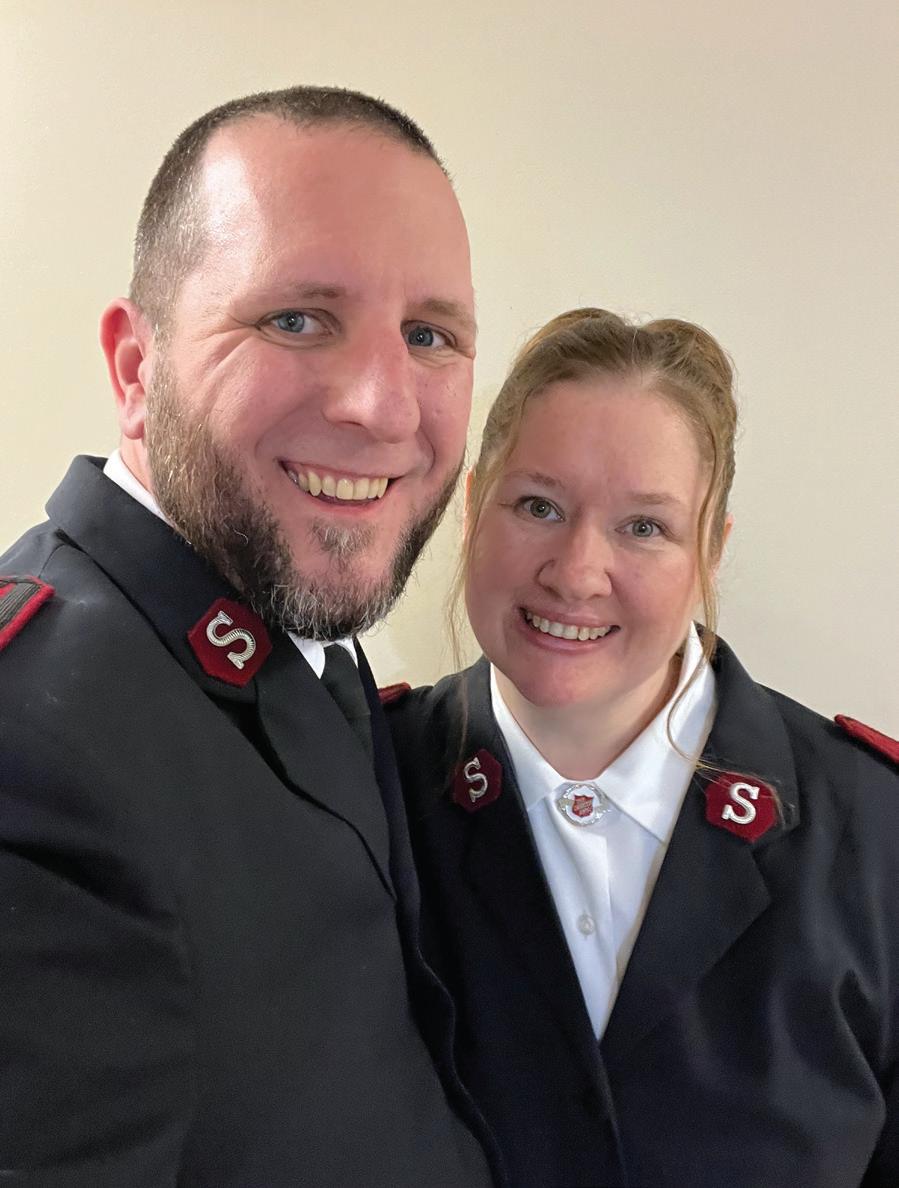
“You can’t do it in your own strength because there’s so much demanded of you,” he goes on to say. “The tendency of officers is to overdo it, and there’s a lot of room to neglect your self-care.
“Officership is more than a ministry, and the Lord has to go before you. That being said, the peace has always been there, and the understanding that I am where I am supposed to be has never changed.”
Captain Mike was born into The Salvation Army to first-generation officer parents.
“That’s the only life I knew from a young age,” he says. “It was normal, and my parents did a great job at making it that way.”
Captain Mike soon became a junior soldier and moved through the ranks.
“Nothing was ever imposed,” he recalls. “It just seemed to fit. I enjoyed wearing the uniform, I liked how it made
me feel, and I liked having the promises to keep. It was normal and meaningful.”
Captain Mike worked his way through the corps cadet program, a course of study that helped him grow in his relationship with God and his understanding of the Army’s beliefs and practices, but decided not to be enrolled as a senior soldier.
“I had a sense of ‘wait,’ ” he says. “With junior soldiership, you make a promise, but when you become a soldier, it’s a covenant. I wanted to make sure that that’s what God wanted.”
Captain Mike graduated from high school and followed his parents to Lloydminster, Alta., where he became a graphic designer and met “the love of my life,” Melissa. They married and became soldiers.
“The time was right for both of us,” Captain Mike says.
The couple settled into their lives.
“We had our daughter, Megan, and life was good.”
But soon after the holidays in January 2007, the tug of officership started on Captain Mike’s heart.
“It began in my own heart and mind,” he says.
God was telling him, “Here, I’ve allowed you to do what you think you want to do; now it’s time to do what I need you to do.”
There was a peace to his decision, once it formulated itself in his heart and
mind—but what would Melissa say to the thought of them uprooting themselves and becoming officers? He mulled it over for a week.
It was then that she told him, without preamble, “I have something to tell you. I really feel like we need to go to training college.”
“In hindsight, the Lord had prepared the way,” says Captain Mike.
“Melissa and I were happy and content, but there’s a difference between comfort and peace. And when it’s Holy Spirit peace, it’s hard to argue with that. The Lord’s timing was perfect.”
“The reason The Salvation Army is right for me is that of all the flawed human constructs, it’s the one that has the most potential for change and movement,” says Captain Mike.
“It is not only stable and respected, which opens doors, but it also has the ability to change and adapt to the needs of people.
“I can’t say definitively because the Lord calls as he calls, but for this time and this space, I feel continually called, and it’s the right place,” he continues, “and I can see a hope and a future for the kingdom in it.
“I am exactly where I need to be.”
Captain Mike Mailman had something important to tell his wife, Melissa. But how would she react?
KEN RAMSTEADCpts Mike and Melissa Mailman
“The Lord had prepared the way.”
—Captain Mike Mailman
Mikayla Conci (BBA/22)







Financial Assistant, Government of Manitoba

“I did.”


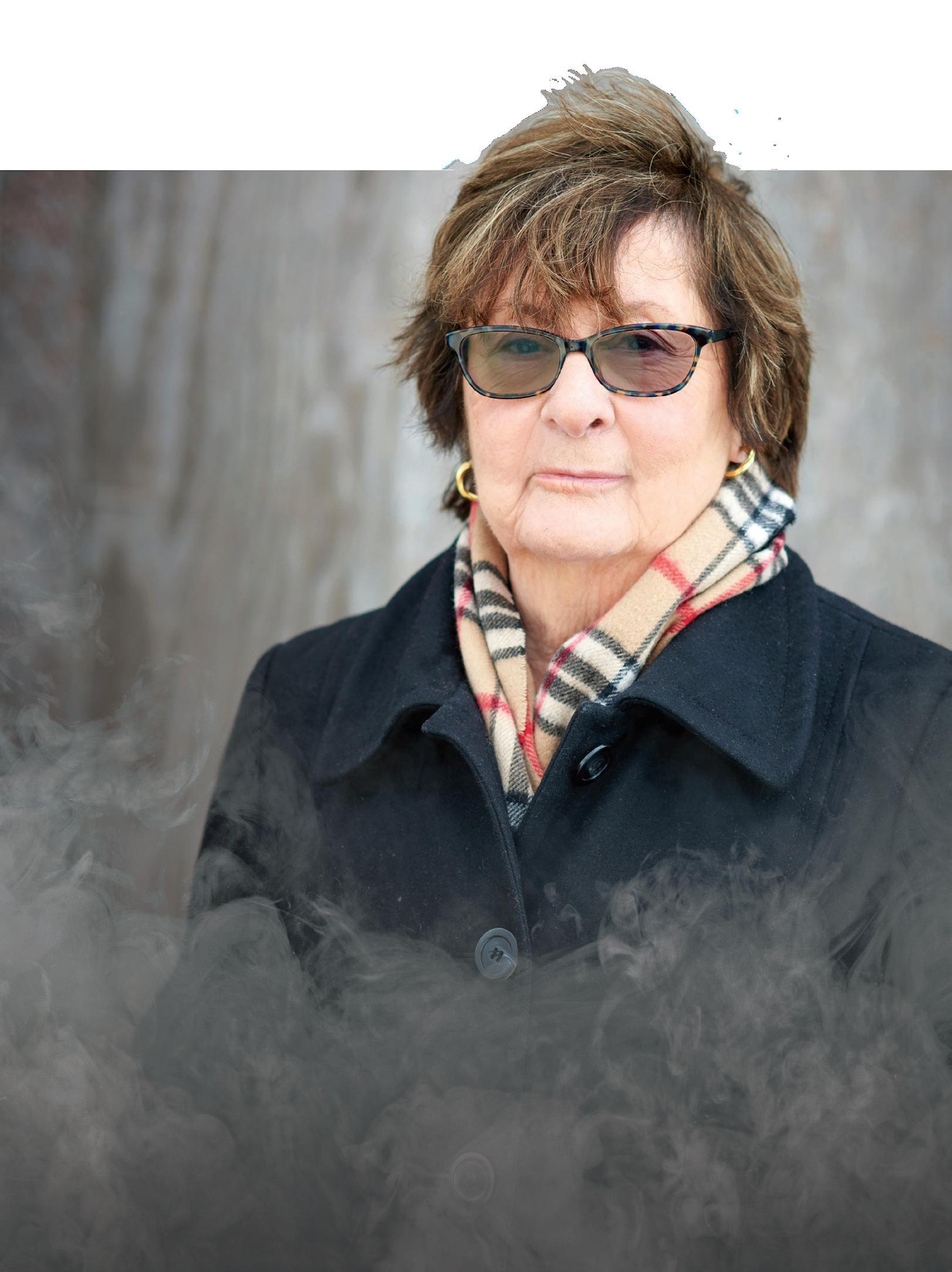

For many avid hikers, Mount Everest is the holy grail of trails. But you don’t have to leave Canada to find mountains of thrills. You could head north to Baffin Island, where one of the country’s most beautiful—and most dangerous—hikes takes adventurers through Akshayuk Pass. Located entirely within the Arctic Circle, this 97-kilometre hike is not for the faint of heart. But the gruelling trail comes with stunning views of lakes, mountains and glaciers—just watch out for polar bears!

Very few of us will ever tackle such a trek. But we all have our own worries and fears. Thankfully, God is with us, no matter what we face. He promises: “Be strong and courageous. Do not be afraid; do not be discouraged, for the Lord your God will be with you wherever you go” (Joshua 1:9).
The “mountains” of life are no match for His love.
To learn more about how God can be with you as you take on your own treks, visit our website at faithandfriends.ca or contact us at The Salvation Army Editorial Department, 2 Overlea Blvd., Toronto ON M4H 1P4.
Photo : Mariana Ianovska /stock.Adobe.com25 & COUNTING
5 Two Missiles to Paradise
To mark our first quarter century, Faith & Friends is featuring past articles that have impacted YOU, our readers. Tell us yours!
THE BIG PICTURE
8 Window Dressing
The Salvation Army’s thrift store windows in Swift Current, Sask., are a feast for the eyes—and the soul.

BAD TO THE BONE?
12 Speechless in the Sanctuary
When a priest asks for a sign from God, he gets a sign. Just not the one Zechariah expected. 8
Can Indiana Jones save the world again?
Murdoch author Maureen Jennings talks faith, truth and why she supports The Salvation Army.
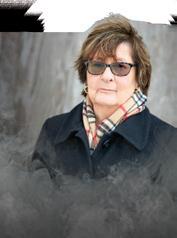
A Sunday service brought back melodic memories for Major Shirley King.
COMMON GROUND
24 A Fair Trade
Colin Beardall’s time volunteering at a Salvation Army food pantry has humanized him in ways he never thought possible.
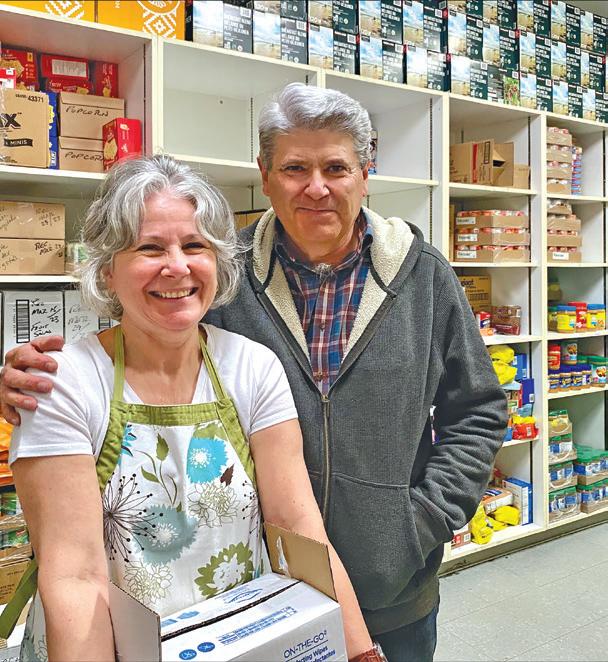
LITE STUFF
28 Eating Healthy With Erin
Sudoku, Quick Quiz.
NIFTY THRIFTY
30 Through a Glass Lightly
Add some pizzazz to thrifted glass containers.
Kevin Curnock’s race was done. It was the Torontonian’s 12th marathon and second Boston Marathon. But hours after he finished, Kevin and his partner, Kate Brown, saw one last runner approaching the finish line.
Tayla Savage had qualified for Boston by raising $10,000 for a non-profit organization that provides children with essentials such as shoes and clothes. She was wearing a T-shirt emblazoned with her name and “This is my first marathon.”
“Crossing the finish line at the Boston Marathon was my mission,” a determined Tayla said.
When Kevin and Kate saw her, they dropped everything and started to run alongside her, screaming, “Tayla, go Tayla!”
With the couple cheering her on, she crossed the finish line, eight hours after she started—but race officials had run out of medals. So Kevin gave her his own.
“You deserve this,” he told her. “This is your medal.”
“It was totally unexpected,” a tearful Tayla said, “and it was just really nice to see there really is good in the world.” She hopes this story will continue to inspire others.
“I’m on the biggest high, and I think it’s going to continue,” says a grateful Tayla. “There needs to be more Kevins in the world.” We agree.
Can you be a Kevin today? Maybe you can volunteer your time, like Colin and Karen Beardall do at a Salvation Army facility. Read about them on page 24.
You’ll find being a Kevin gives you back more than you could ever expect!
Ken RamsteadMission Statement
To show Christ at work in the lives of real people, and to provide spiritual resources for those who are new to the Christian faith.
Faith & Friends is published bimonthly by:
The Salvation Army
2 Overlea Blvd, Toronto Ontario, M4H 1P4
International Headquarters
101 Queen Victoria Street, London, EC4P 4EP, England
Brian Peddle, GENERAL Commissioner Floyd Tidd
TERRITORIAL COMMANDER
Lt-Colonel John P. Murray
SECRETARY FOR COMMUNICATIONS
Geoff Moulton, DIRECTOR OF INTERNAL COMMUNICATIONS, EDITOR-IN-CHIEF AND LITERARY SECRETARY
Pamela Richardson
ASSISTANT EDITOR-IN-CHIEF
Ken Ramstead, EDITOR
Kristin Ostensen
MANAGING EDITOR OF SALVATIONIST AND SALVATIONIST.CA
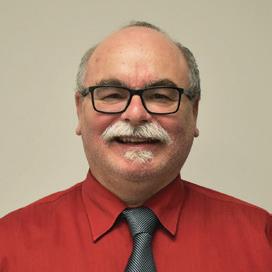
Lisa Suroso
GRAPHIC DESIGN SPECIALIST
Rivonny Luchas
DIGITAL MEDIA SPECIALIST
Ada Leung
CIRCULATION CO-ORDINATOR
Giselle Randall, Abbigail Oliver STAFF WRITERS
Scripture Unless otherwise indicated, all Scripture references are taken from New International Version
Contact Us
P. (416) 467-3188, F. (416) 422-6217
Websites
faithandfriends.ca, salvationist.ca, salvationarmy.ca
Email faithandfriends@salvationarmy.ca
Subscription for one year:
Canada $17 (includes GST/HST);
U.S. $22; foreign $24
P. (416) 422-6119
circulation@ salvationarmy.ca
All articles are copyright The Salvation Army Canada & Bermuda and cannot be reproduced without permission.
Publications Mail
Agreement No. 40064794
ISSN 1702-0131
To mark the 25th anniversary of Faith & Friends, we’ve been asking past editors, current writers and YOU, our readers, to tell us what articles have impacted them. If any article has spoken to you or changed how you thought of life and faith, we want to hear about it. Write, post a comment to Salvationist.ca, or email us.

This month, our article was suggested by longtime Faith & Friends freelance writer Jayne Thurber-Smith:
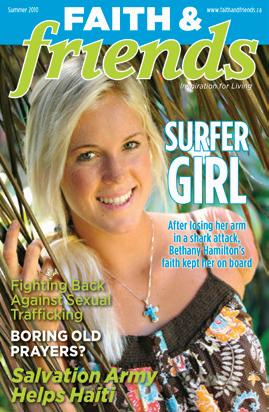
"I love everything Phil Callaway writes, ever since I read his first book Honey, I Dunked the Kids . I just checked Wikipedia to make sure I got the title right and realized that it's Phil's 30th anniversary of being an author, so congratulations, Phil! I have always enjoyed his contributions to Faith & Friends , but especially when he wrote about his experience with his wife, Ramona, in Hawaii during its false ballistic missile alarm in 2018:

'Two Missiles to Paradise.' Phil and Ramona spent the few minutes they thought they had left in this world in quiet, grateful reflection, and that really challenged me to live every moment as if it were my last with an attitude of gratitude. Because one day I'll be right."


What would you do if you had seven minutes to live?
by Phil CallawayThis past January, my wife, Ramona, and I were in Hawaii, where I was on a speaking tour.
That Sunday, Ramona and I were enjoying an early breakfast when suddenly at 8:07 a.m., the world went crazier than a cageful of monkeys. Here’s what happened …

A zillion cellphones buzz and a message flashes onscreen: “Ballistic missile threat inbound to Hawaii.
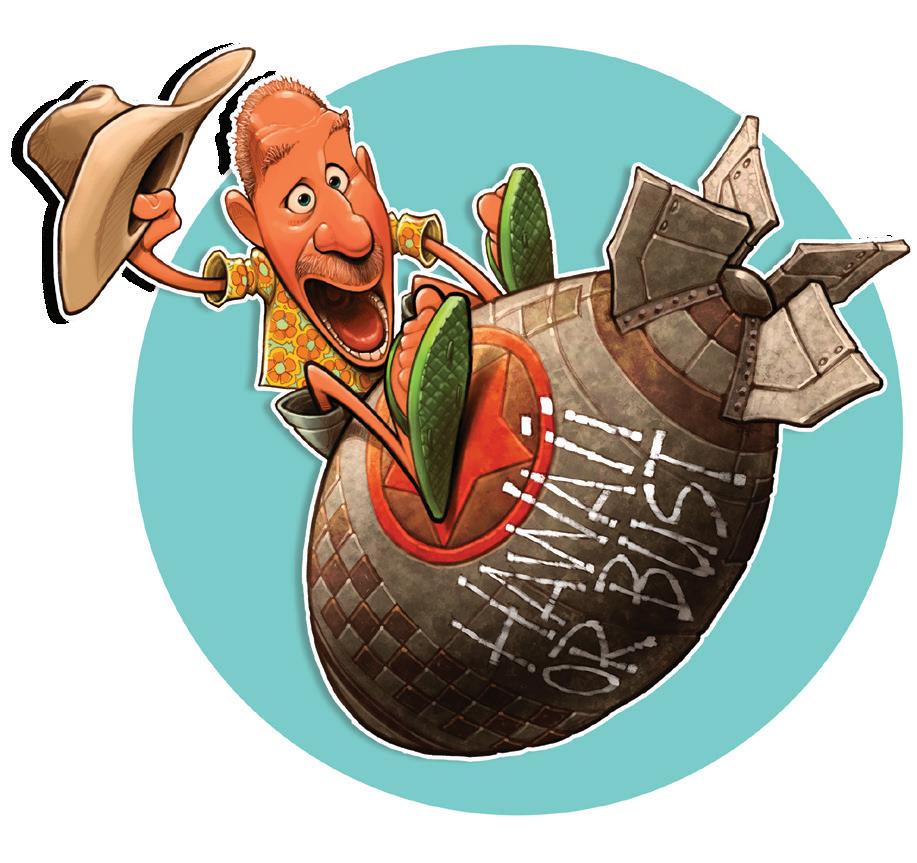
Seek immediate shelter. This is not a drill.”
Pandemonium breaks loose. People panic. Some scream. Others flee through the streets. Tearful goodbyes are said. Underground parking lots fill.
“It’s North Korea,” says someone. “It takes a ballistic missile 20 minutes to get here.” Thirteen minutes have come and gone.
With seven minutes left to live, Ramona and I descend nine flights of stairs. A lady is carrying a Bible.
“That’s a good book,” I say.
“The best,” she smiles. “Especially this morning.” Call us delusional, but we stop and talk about heaven, about the good news of Christ’s love.
“We’re in God’s hands,” we agree. With six minutes left of our lives, Ramona and I turn west onto Lewers Street, and toward the Pacific. A hundred thoughts flood your mind when you have five minutes to live. The kids. Is there anything unsaid? No. They know we love them.
“I wonder if we’ll see the missile?” I say. “Let’s watch.”
Three minutes to go and a man stops us. He’s furious at the world’s leaders.
“We can’t put our hope there,” I stop him to say. “Our hope is in Jesus.” I’m more fearless than normal. After all, what’s he gonna do? Kill me?
With two minutes left, it’s important to know that your worldview works. I’m happy to report that Christianity does.
For many, fear reigns. For me, I’m a little jittery, but filled with peace.

I hold my wife’s hand and quote Psalm 46: “God is our refuge and strength, a very present help in trouble. Therefore we will not fear, though the earth gives way and the mountains fall into the heart of the sea.”
One minute to live and we are laughing. There are the mountains. And there’s the sea.
My watch says time’s up. I pause. “We’re still here,” I say.
“Shoot,” says Ramona. We laugh again. Most of her family are in heaven, and there are days she’d love to see them, but today isn’t that day.
It takes a whopping 38 minutes for authorities to issue a retraction. Someone hit the wrong button. Oops. How prominent is this button? Did they hire someone whose eyesight wasn’t up to par? Maybe he pushed the button thinking it said, “Go for lunch,” when it said, “Go for launch.”
It’s too early to go for launch, so we continue our walk along Waikiki Beach. It’s the emptiest I’ve seen it, but people are beginning to return. I want to yell, “Don’t go back to the way you were. This is not the land of the living. It’s the land of the dying. Are you ready? You have one life to live. One story to tell. Write it well.”
Perhaps each day should start with a missile scare. We’d be a little more aware that we’re not here long, a little more prepared to share the hope of Christ.
At 10 a.m., a friend emails to ask me if we are OK.
“Yeah,” I reply. “But it’s been a blast.”

The Salvation Army’s thrift store windows in Swift Current, Sask., are a feast for the eyes—and the soul.

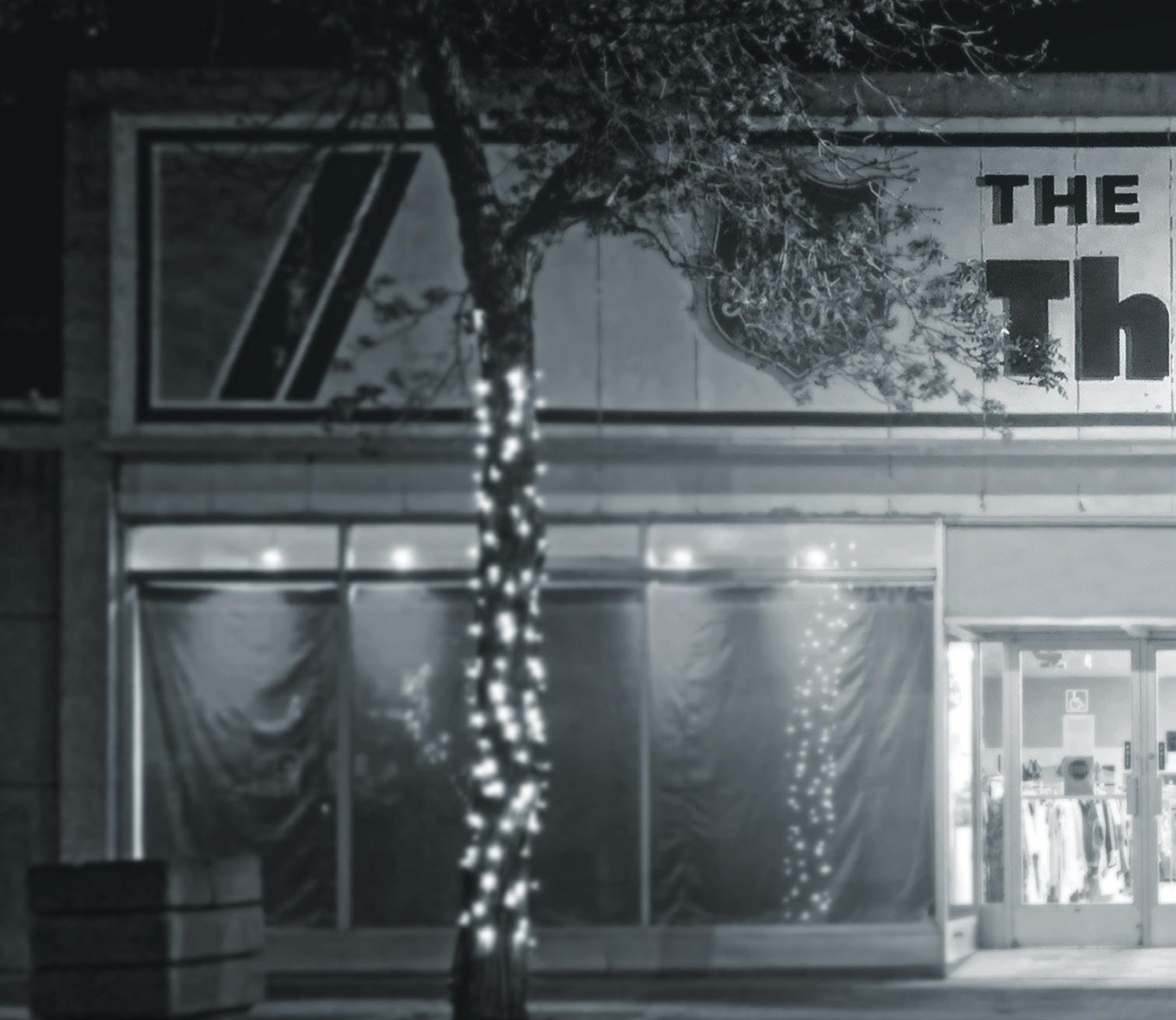 by Ken Ramstead
by Ken Ramstead
Walk along the main street in Swift Current, Sask., and you’ll be greeted by sparkling and enticing window displays—courtesy of the Salvation Army thrift store.
One week, NHL hockey jerseys in pristine condition take centre stage. Another week, sumptuous grad gowns adorn the front windows. A Salvation Army exhibit spotlights the living history of the church. And still other times feature the Beatles or Star Wars
The windows are the masterpieces
The Salvation Army thrift store in Swift Current, Sask.
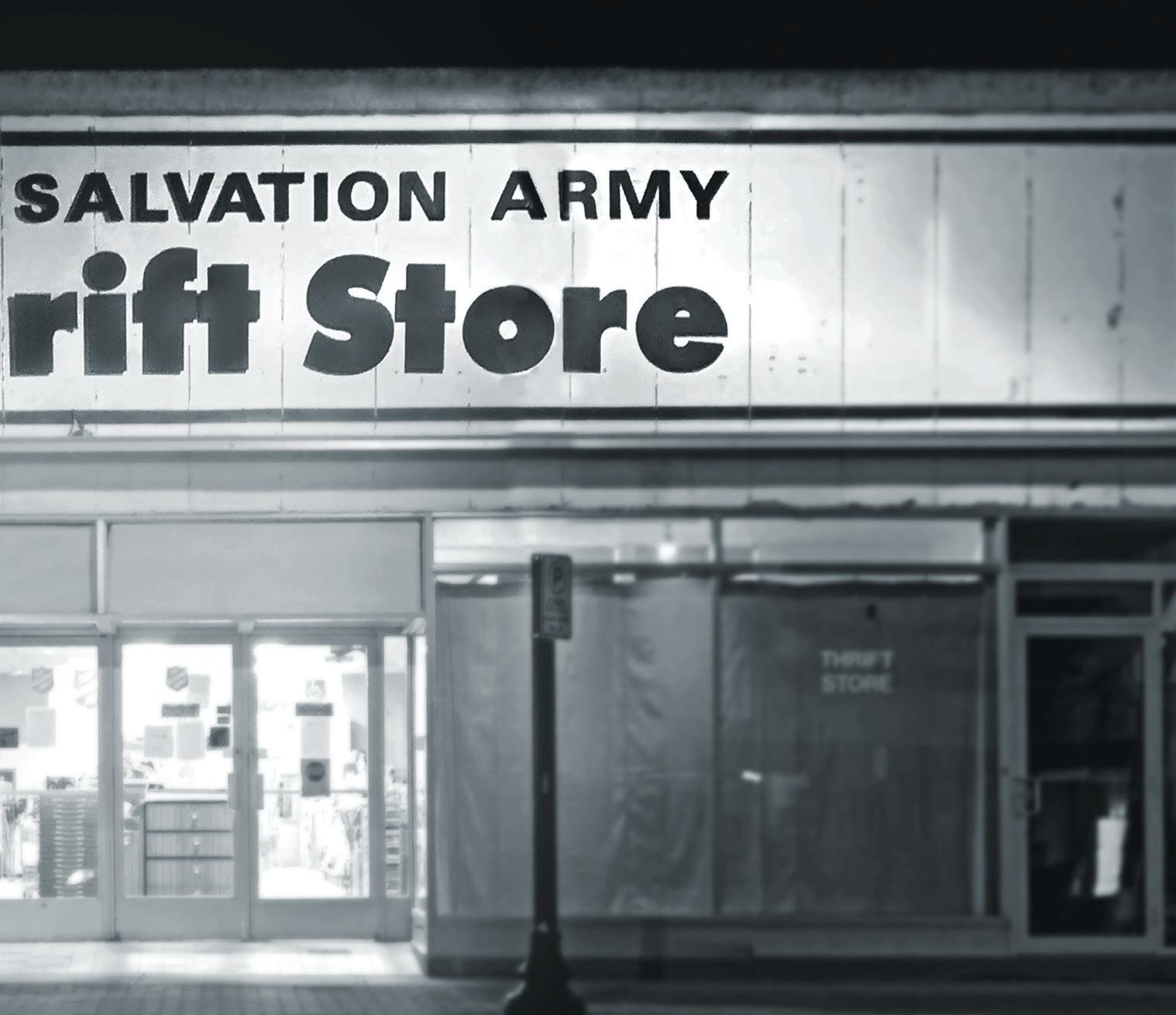
(upper left) In a Galaxy Near You
The Star Wars Day (May the fourth, of course) window. “ It was a lot of fun to put together,” Lori Reimer says
(bottom left) Groovy Goods
A window from last September. Queen Elizabeth II had recently died, so Lori put a little nod to her in the corner
of manager Lori Reimer, who has been creating these displays since she started working at the thrift store in 2009.
“I’ve been doing the windows ever since then,” she smiles. “I trained as a florist, so I’ve brought a little bit of that sensibility into the displays. It’s been fun!”
The windows exhibit the thrift store’s silent auction items. Lori changes the displays every six weeks or so and always has at least six to eight ideas ahead in her mind.
“If you saw my office, there’s bunches and bits of things I’ve accumulated,” she says. “Eventually,
there’s a tipping point where I have enough material for an auction.
“Right now, for some reason, I have a collection of sailboat paintings, so soon they will all be on display.”
Lori’s windows are keyed to seasonal events such as holidays and graduations, and special local events that include Swift Current’s annual SaskPower Windscape Kite Festival and Frontier Days festivals.
Though the thrift store is situated on the main street, without the beckoning displays, people might pass the thrift store by. The windows
fix that.
“We see people stop in their tracks when they see the display windows, turn around and come in,” says Lori. “If you can get them to walk through the doors, that’s a win. And so I don’t put the auction information in the window. I want people to come in and ask.”
For every display, there seems to be a story that touches Lori’s heart. For example, Lori once displayed a brand of Pyrex kitchenware called Chelsea.
“A woman from Winnipeg contacted me,” Lori relates. “I don’t know how she found out about it, but she did.”
Ho Ho Ho
Christmas windows are always fun. In the fall of 2019, Lori attended a leadership retreat, where she learned a bit about the history of The Salvation Army and was inspired to do a vintage Army window
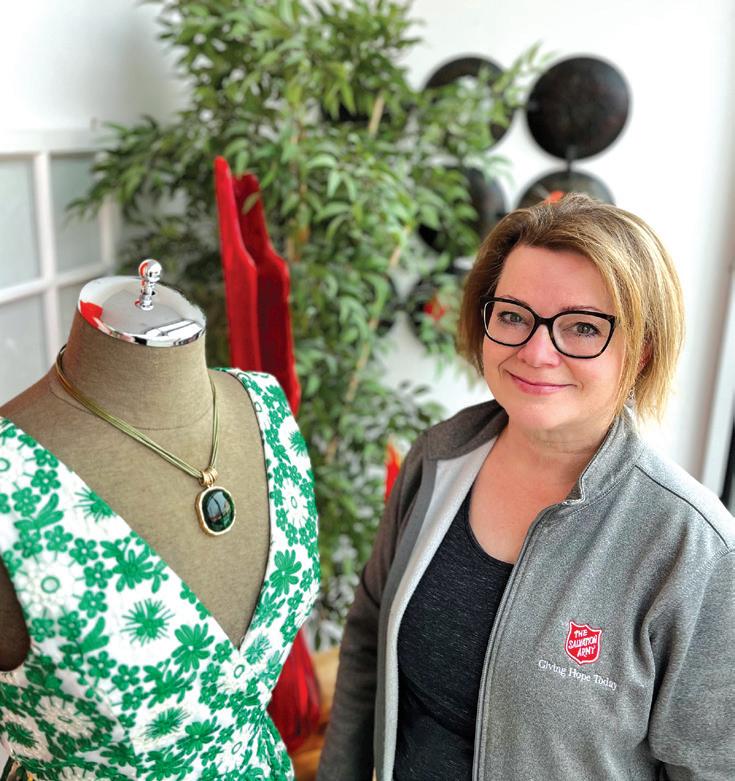
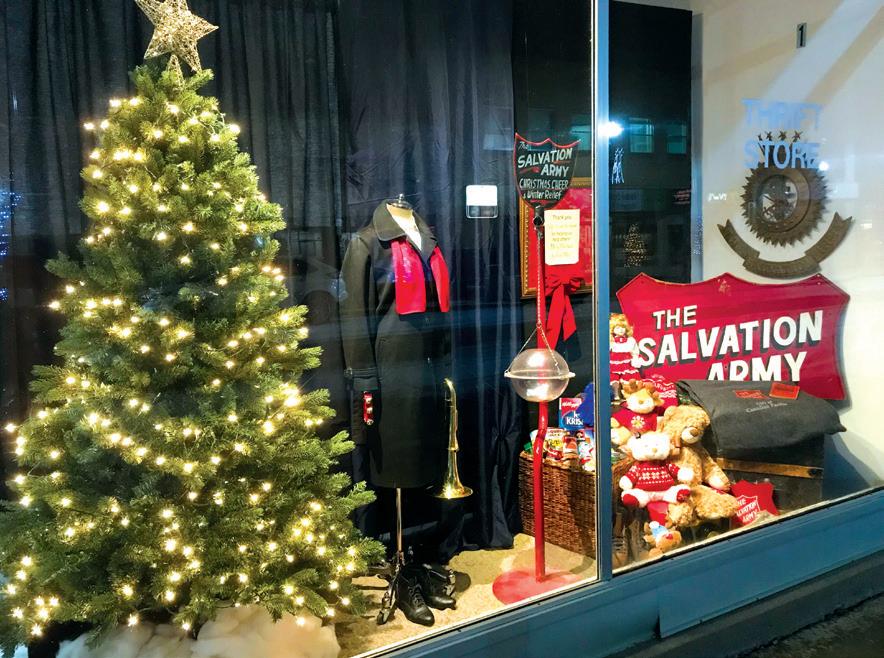
It turns out she had a daughter named Chelsea who had passed away, so the mother was always searching for these pieces of Pyrex.
“I normally don’t ship anything,” Lori says. “But for her, I did.”
Another time a woman placed a $200 winning bid on an antique dresser but when Lori contacted her to tell her she had won, she changed her mind. No one is ever obligated to follow through on a bid but the woman insisted on making it a donation.
It turns out that The Salvation Army held a special place in her heart. When her father served in the Second World War, he was in the hospital waiting to return home but had no money for coffee. Only The Salvation Army helped him.
“She donated the money in memory of her father,” Lori says. Another display that stands out in Lori’s memory was a fishing-themed window that included a “crazy” halfmetre-long ceramic dog. A man who had never visited the store before saw the ceramic dog and immediately walked inside because it reminded him of a beloved pet he had lost just months before.
“I was shown a photo of the pet. It was as if the dog had sat for the sculpture,” she says. “What are the odds?”
Lori may sell purses at auction
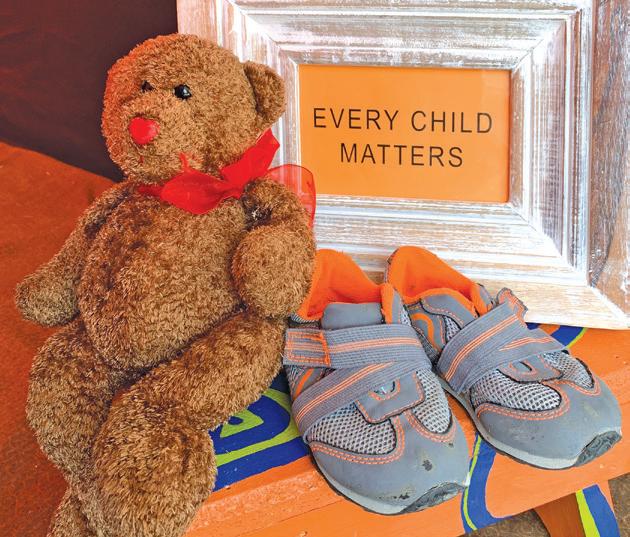
for upwards of $150 or antique furniture for $200 but she stresses that all the funds raised go right back into the community. And she makes a point of keeping basic necessities at very low prices so that those who need them can afford them.
“As well, the thrift store is an easy threshold to cross,” explains Lori. “It’s a soft introduction to the services The Salvation Army has to offer, and there’s something in that understated approach.”
For Lori, though, the thrift store serves a deeper purpose.
“It’s the idea that you take something that’s essentially been thrown away or discarded and you make something new and beautiful out of it,” she believes. “It speaks to my theology. It speaks to how I see God. I’m not sure if people who walk by or into our thrift store think about that—but I do.”
Although the Jewish priest
Zechariah and his wife, Elizabeth, obeyed God in every way, they lived in shame. The people in their culture and time period (first century BC) considered it a punishment from God if a couple was childless—and Elizabeth and Zechariah were childless.
Zechariah and Elizabeth had prayed for a child throughout their lengthy marriage until they’d lost hope. By now they were old. Too old, by human standards, to have children. But God delights in turning human ways upside down. He loves to do things His way, often surprising us.
While Zechariah burned incense in God’s temple at Jerusalem, an angel appeared to him. And not just any angel. This was Gabriel, who'd appear to Mary and tell her she'd
bear God’s Son, Jesus. Gabriel told Zechariah that God had heard his and Elizabeth’s prayers. They would soon have a son, who would pave the way for the Messiah—an important assignment.
But unlike Mary, who responded with humility (see Luke 1:38), Zechariah asked Gabriel for proof that God sent him.
“How can I be sure of this?” he said (Luke 1:18). In other words, Zechariah wanted a sign, a miracle, to prove that Gabriel wasn’t lying, that God was the one who sent Gabriel. So Gabriel gave the doubting priest what he asked for. “Sure, here’s your sign—you won’t be able to talk until your son is born” (see Luke 1:20).
Probably not the sign Zechariah was hoping for.
1 Samuel 15:29 tells us, “He who
When a priest asks for a sign from God, he gets a sign. Just not the one Zechariah expected.
by Jeanette Levellie
Illustration: Sky Light Pictures/Lightstock.com
deal.
is the Glory of Israel does not lie.”
When God makes a promise, we can count on it. It’s a done deal. To ask God—or in this case, a topechelon angel sent by God—to prove His promise can be trusted, is close to calling God a liar.
Not too smart.
In case we think God’s punishment was a bit harsh, Zechariah, as a priest, would have known the history of his people. From an early age, he would have heard the account of Abraham and Sarah, aged 100 and 90 when their son, Isaac, was born. Zechariah had no excuse for doubting God’s promise to give Elizabeth and him a baby.

Zechariah’s punishment was short-lived, however. Once the baby was born and Zechariah wrote the name Gabriel had given him, his tongue worked. So well that he preached a sermon about what John would accomplish in
his lifetime (see Luke 1:67-79).
Zechariah’s doubting days were over.
Does it bother you that a priest of God had faults? Or do you feel encouraged that he fell off his pedestal, proving he was human?
I have a feeling God intentionally put Zechariah’s offence in the Bible. He wants to show us how He uses flawed people, people who make mistakes, people who aren’t perfect, to accomplish His perfect plans.
People like you and me.
Read Luke 1:5-25, 57-79
• Who: A Jewish priest of God
• When: Roughly a year before Jesus Christ was born
• Where: Modern-day Israel
When God makes a promise, we can count on it. It’s a done
JEANETTE LEVELLIE
In theatres now, Indiana Jones and the Dial of Destiny is the fifth and final instalment in the iconic series.

Saving the World Indiana “Indy” Jones (Harrison Ford), the thrill-seeking but aging archeologist, is set to retire when Helena Shaw (Phoebe WallerBridge), his goddaughter, comes to him with a problem.
Her father, an old friend of Indy’s, had told her of an ancient artifact—a dial—that could change the course of history. Although the quest for the dial ruined her father’s life, Helena is determined to find it, dragging Indy into her own search.
The film is set in 1969 during the height of the space race, and Indy
becomes suspicious when he learns that the government of the United States has recruited former Nazis to work as scientists in their space program.
An old rival of Indy’s, Jürgen Voller (Mads Mikkelsen), is one of the former Nazis who is now working on the Apollo moon landing program, and Indy suspects he has evil intent. When Indy first encounters him, he asks, “My memory’s a little fuzzy. Are you still a Nazi?”
It turns out that Jürgen is also searching for the dial, planning to use it to rewrite history and correct the mistakes that Hitler made in his bid to rule the world.
Can Indy and Helena find the Dial of Destiny and save the world from Jürgen’s evil plan?
How many of us have wished for a device that could change the course of history? Maybe not world history, but our own personal history.
Most of us probably have a few regrets in life, things that, given the opportunity, we’d go back in time and change. Maybe we’d want to choose another career, marry a different person or undo a mistake. It’s easy to think about our current circumstances and point to a moment in our past when everything went wrong.
But we don’t have a Dial of Destiny, and time doesn’t work in reverse. Our past—the good and the bad—is part of who we are today. In the movie, Helena encourages Indy by saying, “You’ve taken your chances, made your mistakes and, now, one final triumph.”
We might agree we’ve done the first two things, though we might doubt a final triumph is coming our way. But if we are Christians, the Bible promises us the most wonderful triumph we can imagine at the end of our lives: Spending an eternity in heaven with God.
In the movie, Indy says, “I don’t believe in magic, but a few times in my life, I’ve seen things I can’t explain. I’ve come to believe it’s not so much what you believe. It’s how hard you believe it.”
While this might be true when fighting Nazis and searching for ancient artifacts, it’s not true in matters of faith. What we believe is everything. In John 14:6, Jesus said, “I am the way and the truth and the life. No one comes to the Father except through Me.”
Believing that Jesus died on the cross for our sins is the only way to heaven. Accepting His sacrifice on our behalf is the only route to that final triumph. We must believe that, but Jesus understands that we’ll still have doubts sometimes. In fact, He once told His disciples that if they had faith as small as a mustard seed, they’d be able to move a mountain and that nothing would be impossible for them (see Matthew 17:20).
Turns out, we don’t need a Dial of Destiny to change our past. Jesus erased our sins on the cross. All we have to do is believe and then move forward in His love and forgivenes.
How many of us have wished for a device that could change the course of history?
DIANE STARK
MURDOCH AUTHOR MAUREEN JENNINGS
TALKS FAITH, TRUTH AND WHY SHE SUPPORTS THE SALVATION ARMY.
 by Kristin Ostensen
by Kristin Ostensen
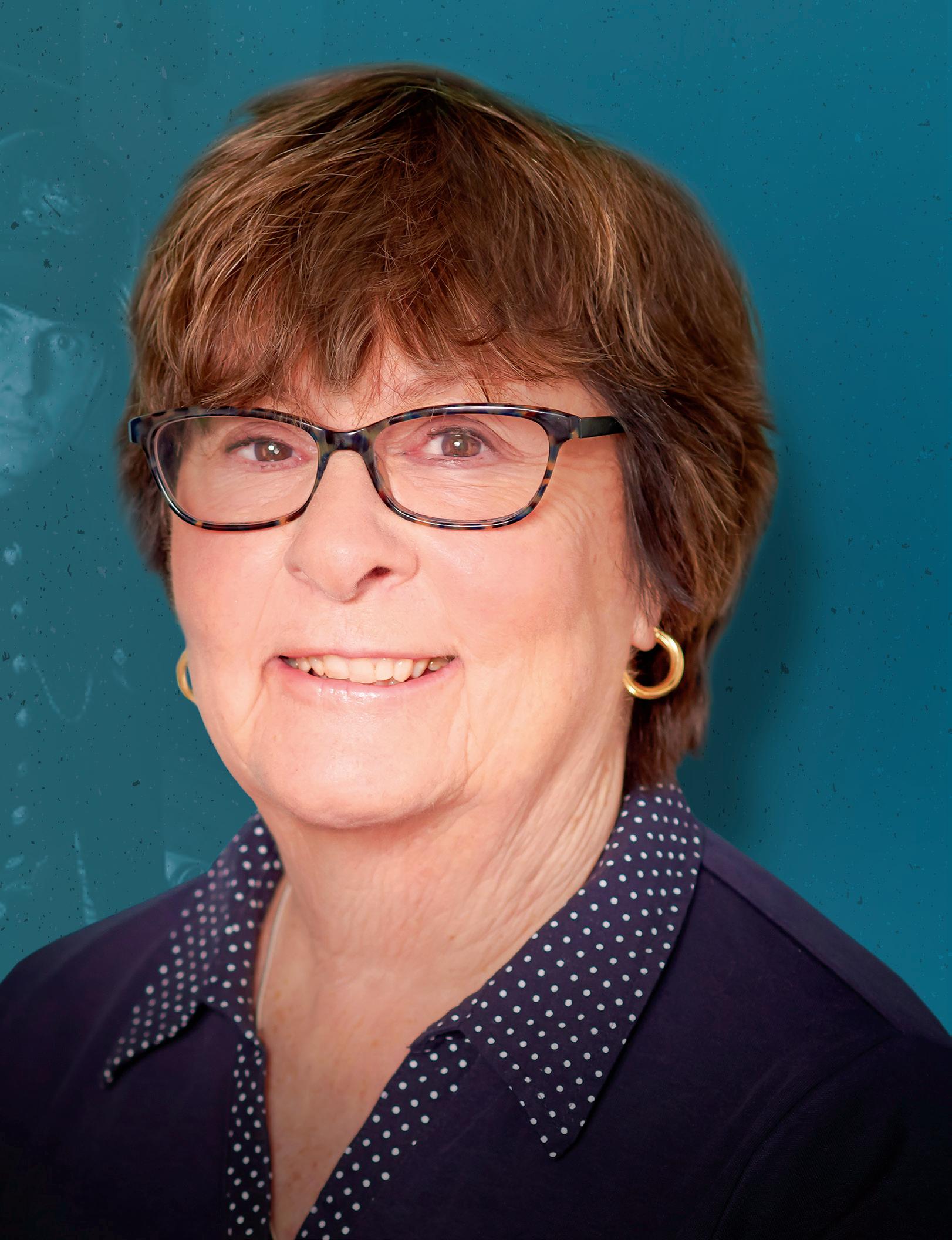
Canadian mystery series, there’s no detective better known—or more beloved—than William Murdoch. Played by Yannick Bisson on the TV show Murdoch Mysteries, he solves crimes in Victorian-era Toronto, supported by a charming cast of characters, including Inspector Thomas Brackenreid (Thomas Craig), Dr. Julia Ogden (Hélène Joy) and Constable George Crabtree (Jonny Harris).
And even after 16 seasons, Murdoch Mysteries is still the highest-rated Canadian show on TV and is broadcast in approximately 120 countries around the world.

It’s a level of popularity that
Maureen Jennings, author of the book series on which the show is based, never dreamed of.
“I’m not sure why it’s so popular,” she says with a laugh, then adds, “It’s a combination of an excellent production team, good writers and really compelling actors. You put that all together and it’s successful. I never expected it, but I’m very grateful.”
Maureen published the first Murdoch book, Except the Dying, in 1997, to great acclaim—it received a Heritage Toronto Certificate of Commendation and was shortlisted for both the Arthur Ellis and
Anthony Awards for best novel. In the books, as well as in the show, Murdoch is a police officer with the Toronto Constabulary who uses cutting-edge scientific methods—such as fingerprinting and ahead-of-its-time technology— to solve crimes. He’s also a devout Catholic, and his faith is the backbone of his character, particularly in how he approaches moral issues and treats those around him.
Making Murdoch Catholic was a deliberate choice for Maureen, giving him “outsider” status. “As a Catholic in 1894, he would have had very little chance of advancing up the ranks of the police,” she notes.
But Murdoch’s Catholicism also allows for the exploration of deeper questions about faith and life. “We’ve dealt with some of his dilemmas, the conflict between what’s going on and his faith,” she says. “I like the challenge of: This is what my faith is, but this is the world out there. Do they collide?
What do I do? How do I stay true to what I believe in a world that doesn’t believe very much?”
Since Except the Dying, seven further Murdoch novels have been published, as well as a novella, Shipwreck, a prequel that tells the story of Murdoch’s first mystery.
Set in 1873, Shipwreck takes place in the aftermath of a terrible storm in a Nova Scotia fishing village. A ship is wrecked on the rocky shores of the village, leading to many deaths. But all is not what it seems, and a young Murdoch, together with his mentor, the parish priest, must discover the truth.
The novella is the most personal of Maureen’s Murdoch books, reflecting her own formative experiences. Though she is baptized Church of England, she studied psychology and philosophy at Assumption University (now the University of Windsor), which was run by Basilian fathers.
“That was a huge influence on me,” she says. “I really admired them.”
The priest in Shipwreck, who teaches Murdoch deductive reasoning, is based on one of her own teachers. “I’d never met anybody like him before; it was the first time
“Truth is the rock upon which we all must stand. That is something I’ve tried to live my life by.”
MAUREEN JENNINGS
I met anyone who challenged my intellect,” she recalls. “Truth is the rock upon which we all must stand. It’s easy to fool ourselves, to want to believe something, but the truth is the rock. That is something I’ve tried to live my life by.”
Along with writing the Murdoch novels, Maureen has ongoing involvement in the show, acting as a creative consultant and writing one episode per season.
Across 16 seasons, Murdoch has solved hundreds of mysteries including one involving The Salvation Army. In 2016, Murdoch Mysteries partnered with the Army on a special two-hour Christmas episode, featuring a kettle worker who gets caught up in one of Murdoch’s cases. Fitting with the Army’s mission, the episode drives home the message that it is better to give
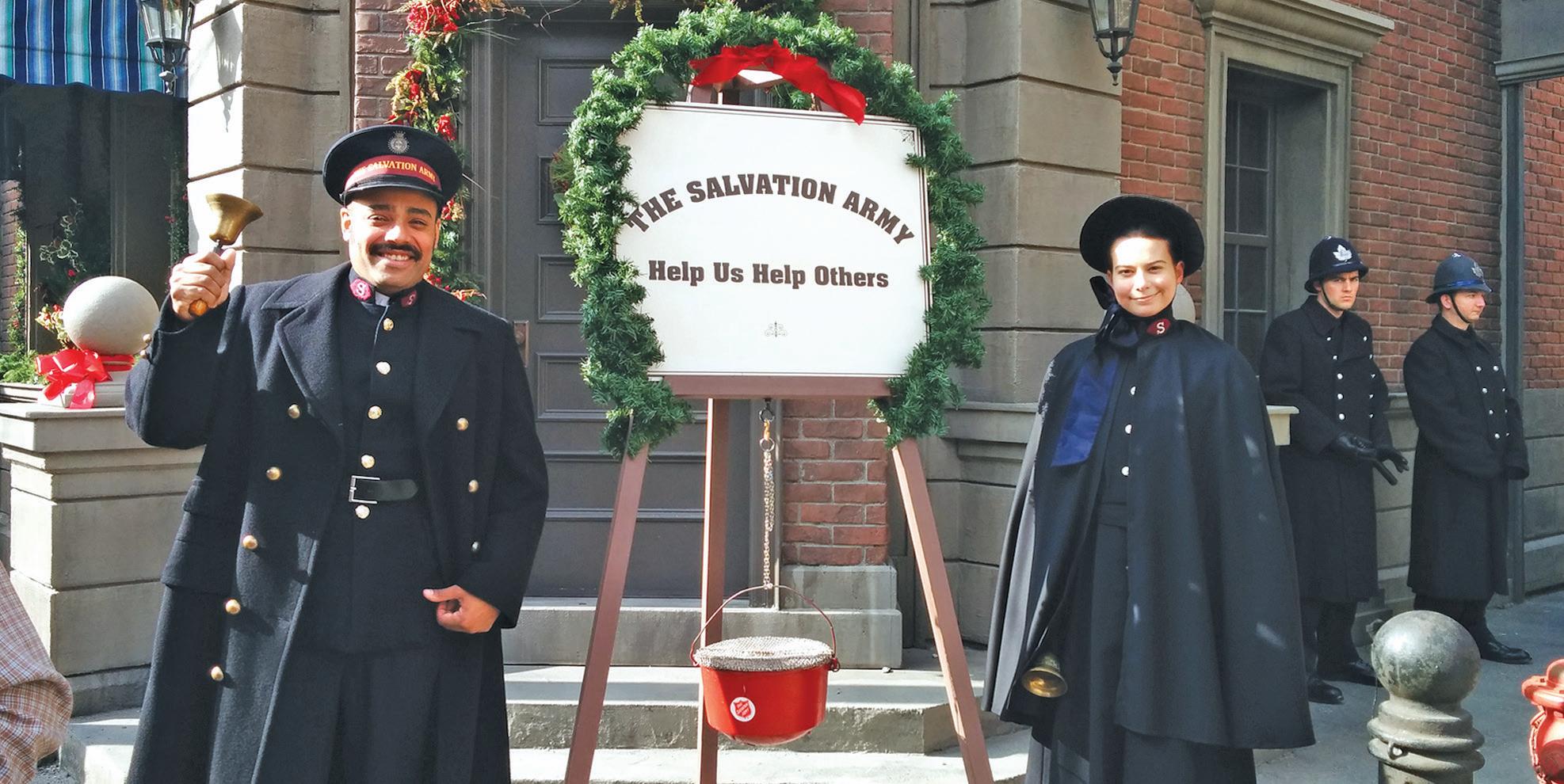
than receive.
Though Maureen didn’t write that particular episode, she remembers it fondly: “I went to visit the set and I loved it!
“I have a deep admiration for The Salvation Army,” she says. “I mean, talk about practising what you preach, which I also believe in.”
When Maureen was giving a talk in Oakville, Ont., a few years ago, she had the opportunity to donate her honorarium to a charitable organization and she chose The Salvation Army.
“There was no doubt, the decision was immediate,” she says, “because I know what you do—you work to help people.”
The local Army pastor came to accept the cheque, and Maureen had the chance to chat with her before the talk.
“I was very nervous,” Maureen recalls. “I told her I had a bit of stage
fright, and she said, ‘Well, think about God, and He will help you with that.’ She was wonderful.”
While Maureen is best known for Murdoch, she has written three other mystery series, the most recent of which follows Charlotte Frayne, a plucky private investigator living in 1930s Toronto. The interwar years were a volatile time for the world with the rise of Nazism, and Canada was no exception. The first book in the series, Heat Wave, sees Charlotte and her boss investigating a crime motivated by antisemitism. The most recent, Cold Snap, centres on a German refugee.
Though set in the past, the series tackles problems that are still relevant today, reflecting Maureen’s own passion for social justice issues.
“Are we ever going to be thoughtful, kind people?” she muses. “We are better than our history.”
At the moment, Maureen has taken a break from the Charlotte Frayne series to work on a new Murdoch book. Set in the 1920s, this one will follow William and his son, Jack, as they solve a mystery involving anarchists.
“I was always into fighting bully boys,” she says with a smile. “I think one of the pluses of writing mysteries, of course, is that my protagonists win.”
Maureen's most recent book series follows Charlotte Frayne, a private investigator who solves cases in 1930s Toronto

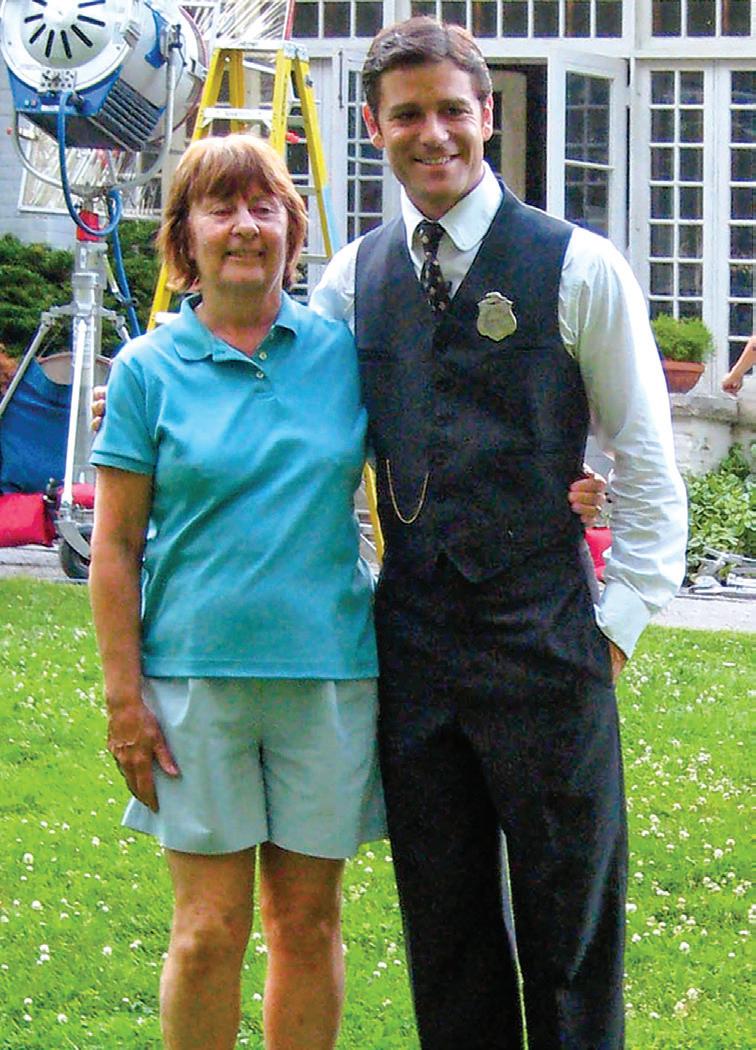
Recently, I had a very filling, rich and satisfying day of ministry, which included the first inperson service at a seniors’ home since the pandemic.
Their piano had been brought out of storage, where it had been put away during that time, and had been returned to the chapel area to be used.
Little did the residents or those leading the service know what was going through my head as we shared in worship.
My mind wandered back decades.
As I played the familiar tunes for the residents, I remembered spending time with my grandmother in her home in Grand Falls-Windsor, N.L., as a very young child. She had
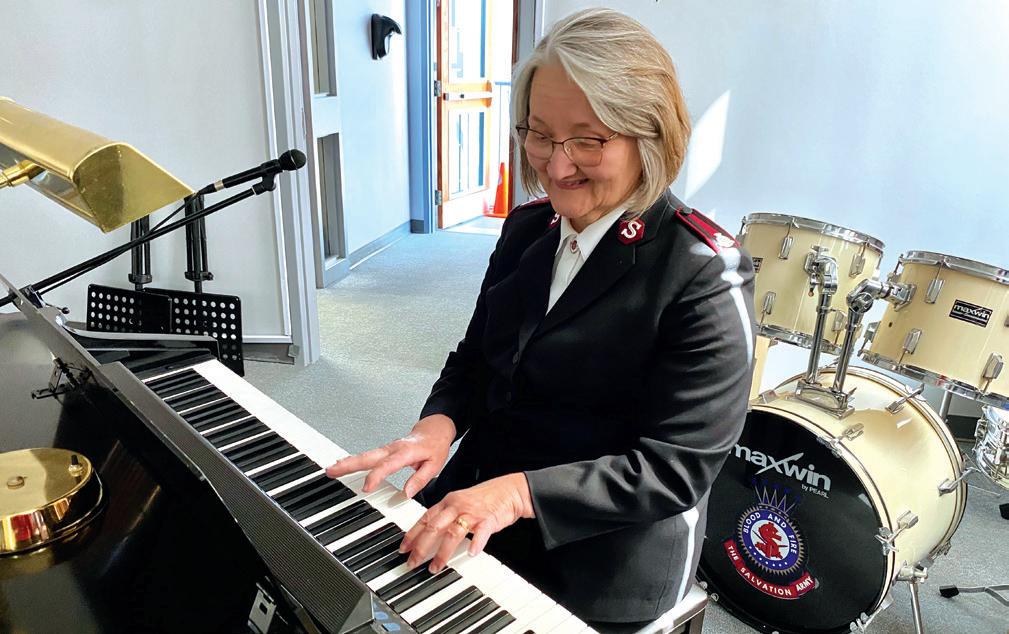
an upright Heintzman & Co. piano in her living room. I recall reading the letters on the piano and understood that the monstrosity originated in Toronto … a world away! My feet didn’t touch the floor when I sat at the piano bench.
I spent many hours practising on the piano—to the dismay of my Nan as she worked away in her kitchen and bellowed into the living room, “Who’s ‘tumping’ on that piano?” No doubt the six-year-old pounding out Three Blind Mice again and again must have done her in!

I value what I learned sitting at that piano. For it was in those times and other times like that when my spiritual journey began.
My Aunt Shirley would sit me down, hold my hands and teach me tunes.
Piano Woman
Major Shirley King at play. “I value what I learned,” she says. “For it was in those times and other times like that when my spiritual journey began”
One of the choruses I learned at that piano and sitting in the rocking chair next to the piano was a Sunday school song:
Little children, keep in the middle of the road.
If you want to go heaven when you die
And sing with the angels by and by.
Little children keep in the middle of the road.
I was so confused by that simple Sunday school chorus. What ridiculous advice, telling little children to walk in the middle of the road!
Of course, I understand now that the truth and the message of the chorus was an instruction to stay on the right track in life, as a Christian, and I have seen that lifestyle choice modelled by many I love and respect, from childhood to this very moment.
Long after the fact, I realized that my hours learning to play the piano were as much Sunday school as music lesson, and they played an important role in my spiritual formation.
As I “tumped” out a few hymn tunes today, I remembered the bevelled glass in the front door of Nan’s
Two Shirleys
Aunt Shirley holding a young Major Shirley. “Our family used to call us ’Big Shirley’ and ’Little Shirley’!” she says
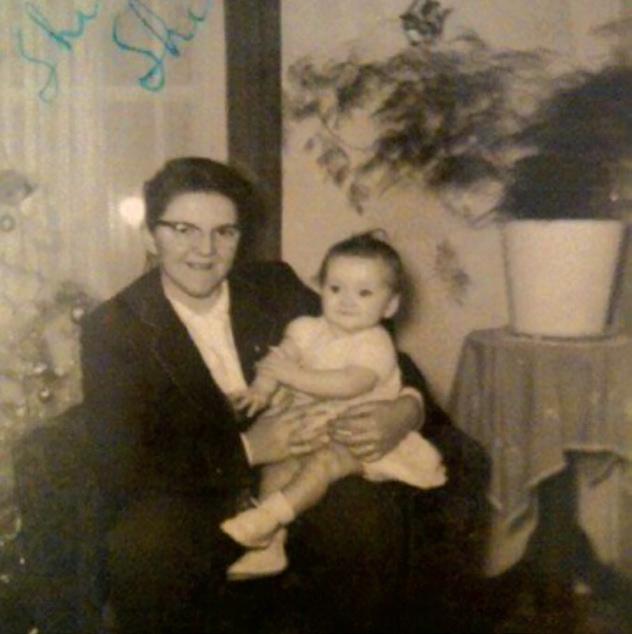
house. I could smell the freshly lit wood and oil stove on a cold Sunday evening, following the late dismissal from a church service.
I recalled sipping tea from a saucer and eating a slice of toast as a bedtime snack, or perhaps a lemon cream biscuit. I remembered hearing the familiar honk of a car horn as Dad would drive by his mother’s house, signalling he was passing by.
I was thankful for the privilege to be in that sacred space at the seniors’ home as I remembered those days.
Sometimes I smile at where my head takes me. That day, it brought me back to an old Heinztman & Co., upright, used up- (maybe), outdated, seasoned yet still purposeful piano. It was as though someone was holding my hands once again teaching me one more valuable life lesson.
Play it again, Shirley!
My time volunteering at a Salvation Army food pantry has humanized me in ways I never thought possible.
by Colin BeardallKaren and Colin Beardall. The real reason Colin donated time in the first place was not a very admirable one
Why do I volunteer at The Salvation Army Lakeshore Community Church’s food pantry in Toronto? I’ve been helping out there for several months, so it’s a good question.
I could trot out the standard responses—volunteer work gives some structure to my week, keeps me feeling useful, provides me some exercise, that sort of thing—and all of them would be partially true.

But the real reason for donating time in the first place was not a very admirable one. I followed my wife, Karen, into volunteerism because I was concerned for her safety, having been told that she worked alone in the church basement with another woman upstairs screening clients—clients who might be dangerous—and I wanted to keep an eye out for trouble.
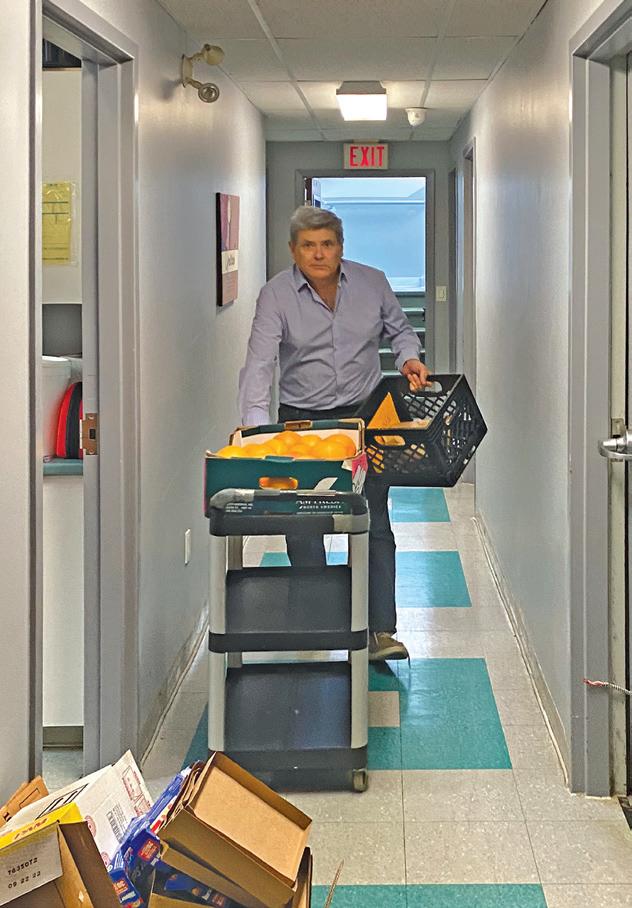
So I volunteered my time because of prejudice against people I had never seen, and was able to drape my uncharitable assumptions in a cloak of love and loyalty, turning vice into virtue.
My charity, if it can be called that, was a response to fear and guilt.
We fear people experiencing poverty and shun them, the people asking for money on the streets, the untreated mental illness screaming its profanities at no one and everyone, the faceless forms sleeping under dirty blankets on downtown sidewalks.
And there’s guilt, knowing that they are maybe just us being forced to play out a losing hand, instead of the handful of aces we hold, and we do not like to think about that very much. We deceive ourselves into thinking that the lives we live would never be like their lives, and that we could pull ourselves out of those degrading conditions if we did have to face them.
But it is magical thinking. We know it is not really true.
All of us need support. And most of us have supports in some adequate proportion. I have a wife and family. I have a circle of friends. I have my health and a family doctor.
Colin
“If anyone has been humanized by exposure to the food pantry, it’s me,” says Colin
I was raised by loving parents. I received a good education, which led me to a good and stable job. I have never been unemployed. I retired in my 50s with a secure pension, mortgage-free.
My supports have helped me avoid and overcome problems. The food pantry helps me to maintain my awareness of this, and to acknowledge that I have some responsibility to try to provide some support to help other people, too.
At the food pantry, the clients are introduced, and I get to know their names. I watch my wife listen to them talk about their worries: health, unemployment, the rising cost of food and rent, the lack of heat in their apartment or the lack of an apartment at all. People live without a mattress or a pot to heat the soup we supply.
The Salvation Army provides what they can.
People experiencing poverty are often an abstraction to most of us who do not associate with them. I seldom spoke to the people I gave money to on the streets, beyond a “You’re welcome” or an absurd “Have a nice day.” I never knew what they felt or what they thought, the circumstances of their misfortune, or anything else about them. In that way, they were not fully human to me. The food pantry has changed that for me.
We learn of the clients’ likes and dislikes; who has a sweet tooth, who wants to cook nutritious food for themselves and are searching for the ingredients for that cooking, who has a microwave and who does not, who prefers to eat out of cans and who lacks a can opener.
Some clients seem to crave conversation as much as food, and their appointment times can run overtime as a consequence. My wife does not rush them. She
People experiencing poverty are often an abstraction to most of us who do not associate with them.
The food pantry has changed that for me. COLIN BEARDALL
Karen
“My wife does not rush the clients,” says Colin. “She understands the importance of her acknowledgment of their obstacles and their distress”
understands the importance of her acknowledgment of their obstacles and their distress. They need to tell their stories. They want to connect. They want to explain.
I am proud to watch her work, and humbled at times by the decency of people in need who do not want to take more than their share or to waste what others would use. They are individuals. They are complex. They are happy and angry, sometimes grateful and sad, despairing and hopeful, strong and weak.
These people—as people they have become to me—are likable and dislikable, honest and dishonest, grateful and grasping, in the same proportion of those of us who are not clients.
They are us.
This is, I think, what I meant when I ridiculously told a Salvation Army pastor that the food pantry had “humanized” these people for me. Certainly, they have not become more human just because I got to know something of their personalities and of their circumstances.
If anyone has been humanized by exposure to the food pantry, it’s me. I give of my time, and my character takes what it can in return. I am reminded of our common humanity and of my own good fortune. I work with people whose altruism I admire. I enjoy the thanks of people I have helped to serve.
It has been more than a fair trade, and it is an exchange for which I have become grateful.
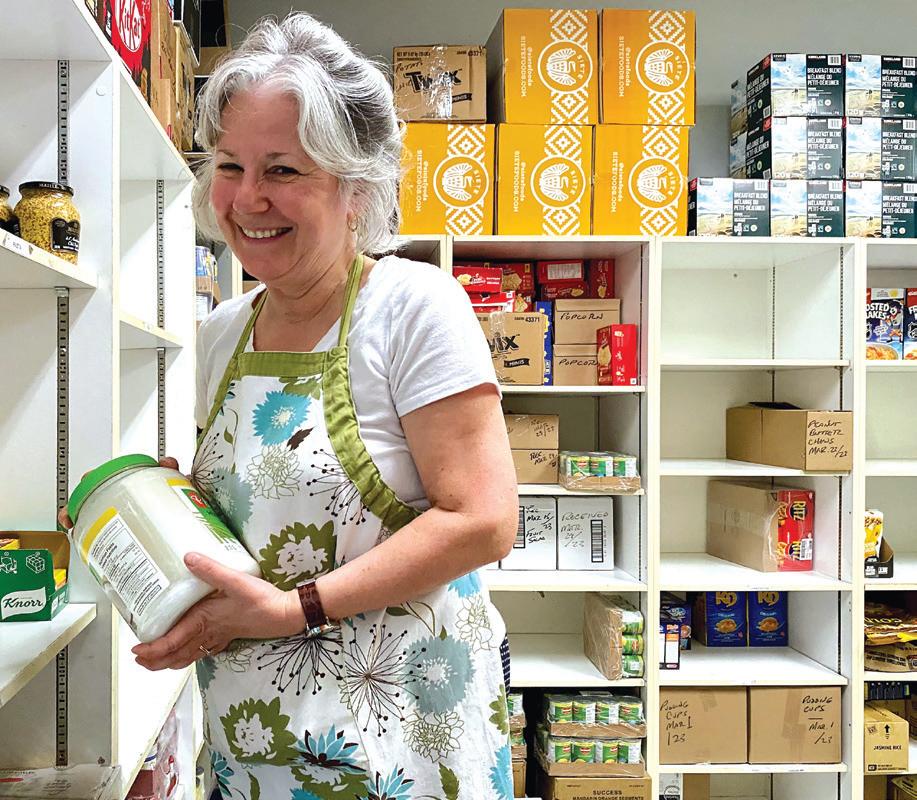


TIME 15 min MAKES 4 servings SERVE WITH pizza or grilled vegetables
60 ml (1/4 cup) raw pine nuts
1 clove garlic
175 ml (3/4 cup) fresh basil
60 ml (¼ cup) fresh cilantro
45 ml (3 tbsp)
Parmesan cheese
1 ml (1/4 tsp) salt
0.5 ml (1/8 tsp) black pepper
90 ml (6 tbsp) olive oil
225 g (8 oz) penne pasta
1. Heat dry pan over medium-high heat.
2. Cook pine nuts for 1-2 minutes on one side until slightly browned, then toss and cook for another 30 seconds. Set aside to cool.
3 Fry garlic clove in 7 ml (11/2 tsp) of olive oil until slightly browned.
4. Blend pine nuts, basil, cilantro, Parmesan, garlic, salt, pepper and rest of olive oil in food processor or blender.
5. Serve over cooked pasta.

TIME 1 hr 20 min MAKES 4 servings SERVE WITH tea or coffee
100 g (4 oz) chocolate (70% dark or higher)
15 ml (1 tbsp) coconut oil
25 ml (5 tsp) smooth natural peanut butter
1. Melt chocolate in pan over mediumlow heat, stirring with spatula.
2. Add coconut oil and mix for 20 seconds. Remove from heat. Pour three quarters of the melted chocolate into muffin tin liners. Chill in freezer for 10 minutes.
3. Remove from freezer and spoon 7 ml (1½ tsp) of peanut butter in each. Top with remaining chocolate and place back in freezer. Chill for 1 hour.
4. Remove from liner and allow to sit at room temperature for 10 minutes prior to eating.
Who

2. What is the
3. Where were the 2010 Winter Olympics held?
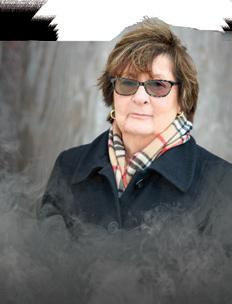

Who needs ho-hum, see-through glassware? Using acrylic paint and some crafty mojo—plus sourced glass containers from your local Salvation Army thrift store—you can create beautiful reusable packaging or maybe even one-of-a-kind art!

Supplies Needed: Thrifted glass containers, acrylic paint, paint brushes and/or sponges, Mod Podge, stencils or painter’s tape to create design, pencils.
Step 1 Gather your materials. Containers can be any shape or size. I would recommend your containers have an easy surface to work with—etched designs or too many curves may be challenging.
Step 2 Clean your containers. Using a mixture of white acrylic paint and a small amount of Mod Podge, prime the surface of the containers. Add 1-2 coats of white paint, allowing it to dry between coats.

Step 3 Sketch your design using stencils or painter’s tape. I used some old stencils for my painted bottles.



Step 4 Depending on your design and colour choice, you can either paint your base colour first or after you’ve added the design. And if you make a mistake, you can always start over.
Step 5 Once your design is complete and the paint is dry, seal the deal by adding 1-2 coats of Mod Podge. I like using glossy, not matte, Mod Podge for the finish.
Now that your DIY is done, you can use it for display or give it to family and friends. The possibilities are endless!
